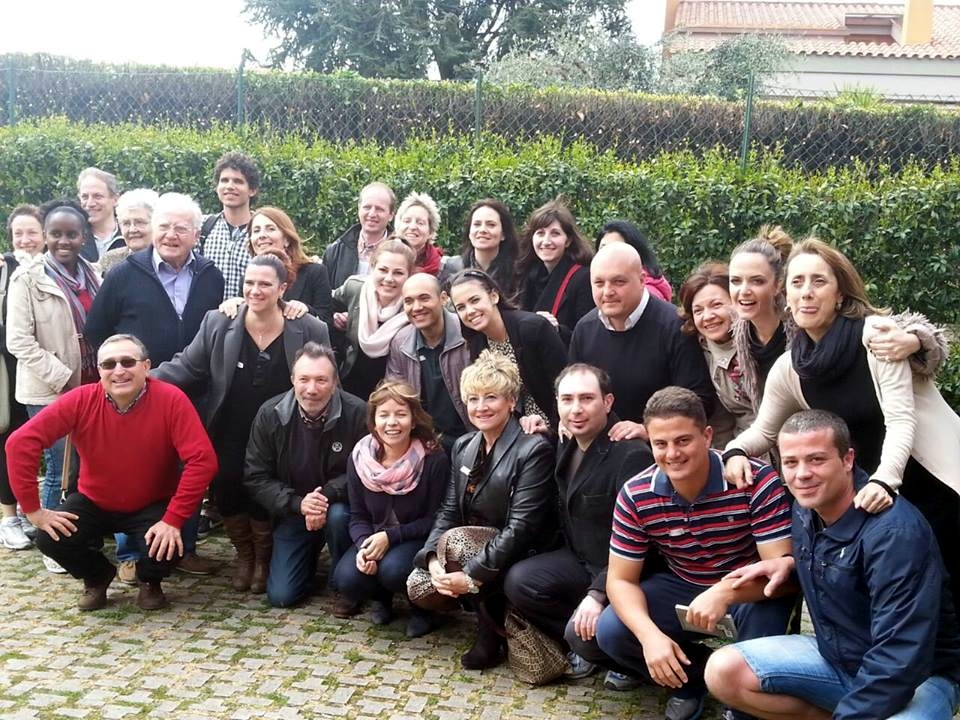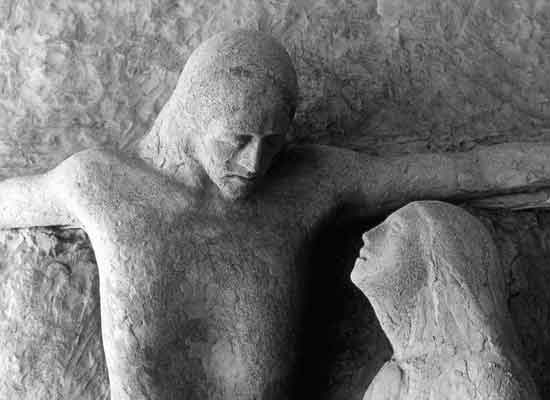

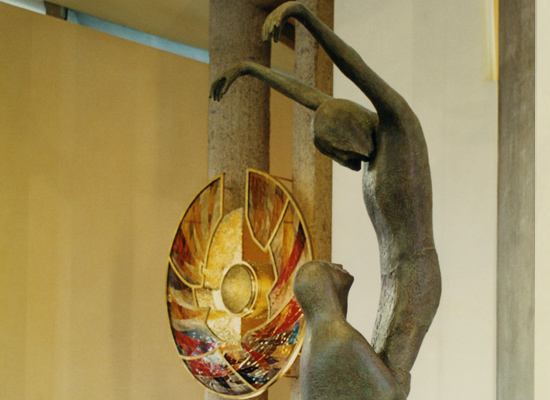
Jesus forsaken: the global person
At the beginning of the 1970s the world was already interconnected through “the irreversible encounters between peoples and civilisations the world over, that had been made possible through a veritable explosion of means of communication and massive technological development”. While highlighting the positive in all this, Chiara Lubich warned those young people that “today not everyone is well prepared for this encounter”, which was often destabilising because people realised their way of thinking was not the only one. She invited the young people not to confuse absolute values, those linked to what is Eternal, with their own mental structures. As people’s certainties were shattered, Chiara offered them a model to follow, a key that would open the doors to building a new world. “We may wonder how to live in this terrible present day when a mysterious earthquake seems to shake-up the noblest of values, like enormous skyscrapers that crumble and crash into one another. Is there a practical answer …, a sure means we can rely on so as to contribute to generating the world of the future? “Is there a type of global-person who has felt within them this terrible earthquake which threatens to destroy everything that was thought untouchable up to now? Is there someone who almost believed that absolute truth itself was leaving him to his own destiny, throwing him into the greatest confusion? Is there a global person who was able to overcome this terrible trial, paying for a new world which he found anew within himself and which he generated for others? Yes, such a person exists. But it is easy to understand this person couldn’t be merely a human being, but had to be the Human being: it’s Jesus forsaken. “His humanity, which was perfect, yet weak and subject to suffering and death, is the symbol of every human structure, which, within its limits has been able, throughout the centuries, to give humankind something unlimited, such as the truth. “On the cross, close to his physical death, and to his abandonment, which was his mystical death, Jesus experienced the destruction of all his humanity, of his being man; of his bodily structure, so to speak. At that moment, the Father mysteriously allowed that Jesus doubted even God’s presence within him, as though it had vanished. This is why he cried out, “My God, my God why have you forsaken me?” (Mt 27:46). “But since he is God, precisely in this cry, Jesus had the strength to overcome this infinite suffering. By so doing He gave his weak, mortal flesh the power of immortality, bringing his risen body into the heart of the immortal Trinity. Moreover, with this extraordinary act of accepting the most frightening destruction ever known to heaven or on earth, Jesus gave humankind the possibility of rising again in the next life, with the resurrection of the body, and rising again in this life with a spiritual resurrection – when we love Jesus Forsaken – from any death or destruction in which people might find themselves. “Jesus Forsaken … is the reliable leader for all young people in this century. When he is loved he offers those who follow him the spirit of truth, in the same way as he made the Holy Spirit descend upon the apostles after his death.” Chiara affirmed that “by following him they will find the strength not to fear any situation, but to face it with confidence. It is a confidence which knows that every human truth and the Truth itself, which is the Kingdom of Heaven, can find, also with their help, new mental structures on a worldwide level.” And she ended: “It is up to you to welcome him into your hearts like the most precious pearl that you can receive; for your spiritual life, for the peoples you represent here; but above all for that new world which must see all people united; for the new world which will be home not only to many peoples, but to the people of God”. Source: Chiara Lubich, Colloqui con i gen 1970-74, Citta’ Nuova, ed, 1999, pp 73-83.
I was there on that Tuesday morning in Brussels
 “I’ve never been so close to the site of a terrorist attack. Nowadays we are somewhat accustomed to seeing such catastrophes everyday on the news but passing in front of the metro station only a few minutes before and thinking that it was so close by and not knowing exactly what to do is quite another thing. I’m a firm believer that a united world is possible. Through my commitment in New Humanity, but mostly through the small daily actions, I try to live and act in a spirit of fraternity that is also expressed in the Universal Declaration of Human Rights. But, as the news came and the howling of sirens intensified outside my window, I was blown away. Okay, it was all so close by, but still what could I do? Stay put and respond to all the messages from friends and relatives who were asking for news? Should I take to the streets and go to help who knows who and how? Should I keep working as if nothing had occurred? It was surreal, and I found myself disoriented and helpless. It also made me question the meaning of it all. What could have moved them to push some young people like me to hate to the point of being ready to sacrifice their lives in order to kill so many defenseless passengers, chosen at random and pressed into a packed metro car? I wondered what crime I would had committed that I should have to die with them. I could not find any satisfactory answers in any of the theories I had learned at university in political science class. What did give me some light was the memory of the previous evening spent with several youth who are engaged in living the same commitment as me, and during that evening we had promised another time to be instruments of brotherhood and dialogue for the people around us. Trying to put aside my confusion, I realized that, in those moments, it was (almost) as if I was experiencing the war in my own skin, all the more reason to be a peacemaker beginning with the people who were with me at the moment. Colleagues, friends and acquaintances… in spite of the terror and shock, I slowly began to realize that I was not the only one to think so. Everybody – each in their own way we’re dealing with their emotions – none of them found words of hate for what had happened, but everyone was convinced that dialogue was the only way possible to respond to such insane acts. The words spoken by Chiara Lubich, founder of New Humanity and the Focolare Movement, when she was awarded the UNESCO Peace Education Prize in December 1996, seemed truer to me than ever. “Anybody who would like to clear today’s mountains of hatred and violence finds themselves in front of an immense and weighty task. But what is impossible to millions of isolated and divided individuals, seems possible once they make mutual love, mutual understanding and unity the essential activity of their life.”
“I’ve never been so close to the site of a terrorist attack. Nowadays we are somewhat accustomed to seeing such catastrophes everyday on the news but passing in front of the metro station only a few minutes before and thinking that it was so close by and not knowing exactly what to do is quite another thing. I’m a firm believer that a united world is possible. Through my commitment in New Humanity, but mostly through the small daily actions, I try to live and act in a spirit of fraternity that is also expressed in the Universal Declaration of Human Rights. But, as the news came and the howling of sirens intensified outside my window, I was blown away. Okay, it was all so close by, but still what could I do? Stay put and respond to all the messages from friends and relatives who were asking for news? Should I take to the streets and go to help who knows who and how? Should I keep working as if nothing had occurred? It was surreal, and I found myself disoriented and helpless. It also made me question the meaning of it all. What could have moved them to push some young people like me to hate to the point of being ready to sacrifice their lives in order to kill so many defenseless passengers, chosen at random and pressed into a packed metro car? I wondered what crime I would had committed that I should have to die with them. I could not find any satisfactory answers in any of the theories I had learned at university in political science class. What did give me some light was the memory of the previous evening spent with several youth who are engaged in living the same commitment as me, and during that evening we had promised another time to be instruments of brotherhood and dialogue for the people around us. Trying to put aside my confusion, I realized that, in those moments, it was (almost) as if I was experiencing the war in my own skin, all the more reason to be a peacemaker beginning with the people who were with me at the moment. Colleagues, friends and acquaintances… in spite of the terror and shock, I slowly began to realize that I was not the only one to think so. Everybody – each in their own way we’re dealing with their emotions – none of them found words of hate for what had happened, but everyone was convinced that dialogue was the only way possible to respond to such insane acts. The words spoken by Chiara Lubich, founder of New Humanity and the Focolare Movement, when she was awarded the UNESCO Peace Education Prize in December 1996, seemed truer to me than ever. “Anybody who would like to clear today’s mountains of hatred and violence finds themselves in front of an immense and weighty task. But what is impossible to millions of isolated and divided individuals, seems possible once they make mutual love, mutual understanding and unity the essential activity of their life.”
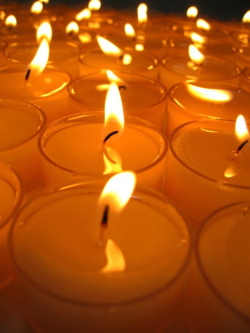
That all may be one
 “The orientation of the Gospel of St. John, and also the others, converge in the phrase which has lately taken on a deep and infinite meaning for me: “That they all be one, as you Father are in me and I in you, so that the world may believe.” (John 17,21). This is how we should live. […] These are the coordinates of the unity that is particularly dear to me: unity in our parishes, unity in the various services and ministries, unity between the clergy and the laity, and between presbyteries. Unity becomes credible only if it demonstrates that we are not the patrons, but that only He is the Lord. This unity in the context of priestly ministry is something I particularly hold dear. Likewise I must mention unity of the Church, unity with those who are outside the confines of our Roman-Catholic Church, unity among all those who identify themselves with faith in the only God, the Living God and, therefore, with the Jews and Muslims. That unity between the Church and society is where one does not run parallel to or contrast with the other, but where the Church and society enter into a mutual relationship, bringing to light that unity which God gives for leavening society, with that leaven which makes man free. It is unity that makes man fully man, since he can become man in the full sense only where God has the right to be fully God, and thus can endow us with all He wishes to give us. And He wants to give us nothing less than His intimate mystery: Trinitarian unity. But this is not a simple plan, since we do not progress much only with plans. Instead it has to become life […]. Also I have to start living this unity. It is due to this that I trust the fact that all of you dear brothers and sisters can help me, and that we can do so mutually.” Bishop Klaus Hemmerle Cited from: W. Hagemann, Klaus Hemmerle. Innamorato della Parola di Dio. (In love with the Word of God), Città Nuova ed., Roma 2013, pp. 337-338
“The orientation of the Gospel of St. John, and also the others, converge in the phrase which has lately taken on a deep and infinite meaning for me: “That they all be one, as you Father are in me and I in you, so that the world may believe.” (John 17,21). This is how we should live. […] These are the coordinates of the unity that is particularly dear to me: unity in our parishes, unity in the various services and ministries, unity between the clergy and the laity, and between presbyteries. Unity becomes credible only if it demonstrates that we are not the patrons, but that only He is the Lord. This unity in the context of priestly ministry is something I particularly hold dear. Likewise I must mention unity of the Church, unity with those who are outside the confines of our Roman-Catholic Church, unity among all those who identify themselves with faith in the only God, the Living God and, therefore, with the Jews and Muslims. That unity between the Church and society is where one does not run parallel to or contrast with the other, but where the Church and society enter into a mutual relationship, bringing to light that unity which God gives for leavening society, with that leaven which makes man free. It is unity that makes man fully man, since he can become man in the full sense only where God has the right to be fully God, and thus can endow us with all He wishes to give us. And He wants to give us nothing less than His intimate mystery: Trinitarian unity. But this is not a simple plan, since we do not progress much only with plans. Instead it has to become life […]. Also I have to start living this unity. It is due to this that I trust the fact that all of you dear brothers and sisters can help me, and that we can do so mutually.” Bishop Klaus Hemmerle Cited from: W. Hagemann, Klaus Hemmerle. Innamorato della Parola di Dio. (In love with the Word of God), Città Nuova ed., Roma 2013, pp. 337-338

Peace, not just a dream
 |
“Looking at this profoundly wounded world, unity and peace might seem just a dream.May the power of the Risen Lord, who overcame death, every death, forever, strengthen in us the boldness to believe, hope and act so that fraternity may become the norm for shared living between different cultures and peoples.I wish you all a Happy Easter, with the Risen Jesus in our midst!”Maria Voce (Emmaus) |
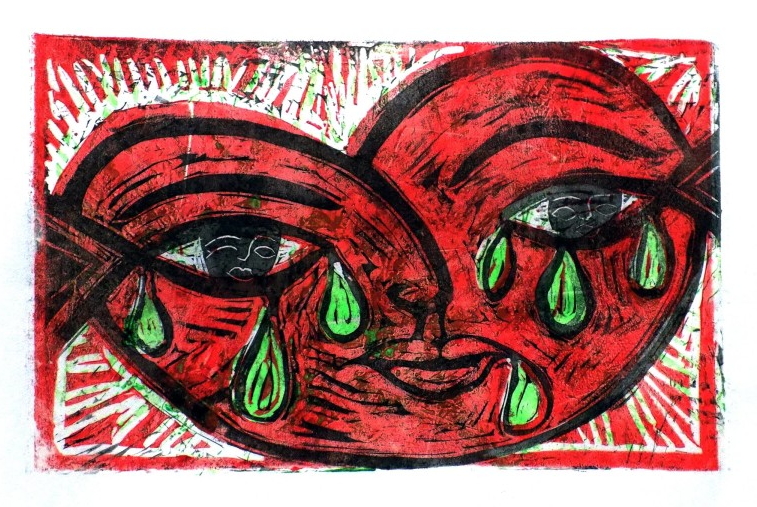
God weeps with us in Brussels
In a statement titled “God weeps with us in Brussels” the Focolare Movement states: “The terrible attacks on the morning of Tuesday, March 22, 2016 at the Zaventem airport and the Maelbeck metro station in the heart of the European district of Brussels have caused deep dismay. We share in the pain of all those families who have lost loved ones and we support them with our prayers. We also offer prayers for all who suffer violence in so many parts of the world, and for those who commit such insane acts that are incompatible with peace.” In the face of such absurdity a question can rise in our hearts: “My God, have you abandoned us?” May Christ’s Passion, which we will commemorate on Good Friday, help us to believe that every suffering is an echo of Jesus’s cry of abandonment on the Cross. May the Resurrection give us cause to hope for the dawning of a better world. The March 22nd attacks are an eloquent signal that invite us to double our efforts for the triumph of peace which is a fruit of solidarity and fraternity. We propose meeting daily at midday for a TIME-OUT: a moment of silence or of prayer for peace. Source: Focolari Belgio online Read more: I was there on that Tuesday morning in Brussels

Brussels
 God weeps with us in Brussels I was there on that Tuesday morning in Brussels
God weeps with us in Brussels I was there on that Tuesday morning in Brussels
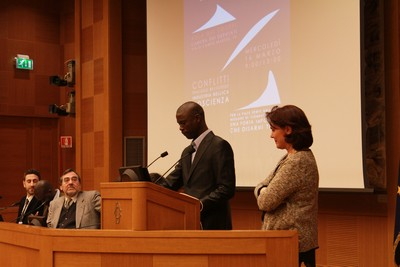
Arms? No, thank you.
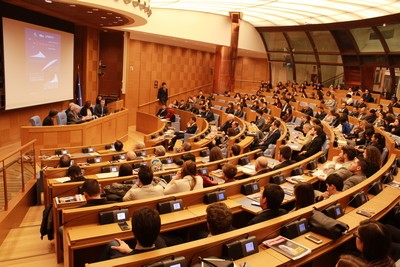 Faced with the increasingly untenable situation of widespread armed conflict, large fringes of civil society continue to make noise in an effort to curb the actions of governments that with their choices support arms trafficking, which is identified as one of the causes that prevents resolutions to the conflicts. The Political Movement for Unity has long been engaged on this issue. Through its Città Nuova, the Political Movement for Unity and especially its schools on participation in politics, it continues to expose the involvement of Italy in the production of war. The country, in fact home to strategic military bases, continues to produce high-tech weapons that also arrive in Middle Eastern countries, as reported by Città Nuova. Bombs are transited from the ports of Sardegna destined for Saudi Arabia, a country interested in the Syrian conflict and driving a coalition committed to the war in Yemen, with thousands of victims and condemned by the UN.
Faced with the increasingly untenable situation of widespread armed conflict, large fringes of civil society continue to make noise in an effort to curb the actions of governments that with their choices support arms trafficking, which is identified as one of the causes that prevents resolutions to the conflicts. The Political Movement for Unity has long been engaged on this issue. Through its Città Nuova, the Political Movement for Unity and especially its schools on participation in politics, it continues to expose the involvement of Italy in the production of war. The country, in fact home to strategic military bases, continues to produce high-tech weapons that also arrive in Middle Eastern countries, as reported by Città Nuova. Bombs are transited from the ports of Sardegna destined for Saudi Arabia, a country interested in the Syrian conflict and driving a coalition committed to the war in Yemen, with thousands of victims and condemned by the UN. 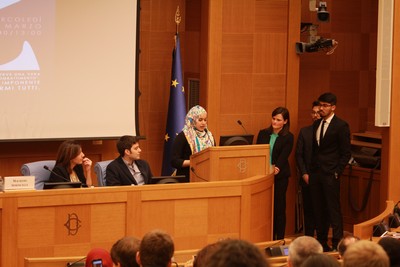 What to do then? A year of work accompanied by experts of international geopolitics, led to the drafting of an appeal made of concrete demands, presented to the deputies and senators available: • Respect for 185/90 Law, concerning the “export control, import and transit of military goods.” In particular, it asks for the termination of exportation and transiting on the national territory to direct weapons to countries in conflict or who are committing serious human rights violations. • The allocation of funds for the conversion of the military industry into civil purposes, with reference to the provisions in Art.1 paragraph 3 of the 185/90 Law. • Transparency and control of banking transactions related to imports, exports and the transit of arms. To these were also added the request for the insertion of the themes of integration and welcome in the political agenda, and the investment of more resources in international cooperation. The youth promoters of the March 16th Meeting are well aware of the powers that be and the apparent judgment, even benevolent, of naivety that accompanies their concerns, but, as they say: “We believe we have a responsibility, due precisely to the ideals that motivate us, and therefore we cannot be silent or passive as we look at the world around us. We work in our daily lives to build fraternity and that is where we begin from in engaging governors.” The reflection in Parliament was enriched by the contributions of Pasquale Ferrara, diplomat and university professor Interrnational Relations; Shahrzad Houshmand, Islamic theologian who teaches at the Pontifical Gregorian University; Michele Zanzucchi, director of Città Nuova; and Professor Maurizio Simoncelli, co-founder of the Institute of International Disarmament Archival Research.
What to do then? A year of work accompanied by experts of international geopolitics, led to the drafting of an appeal made of concrete demands, presented to the deputies and senators available: • Respect for 185/90 Law, concerning the “export control, import and transit of military goods.” In particular, it asks for the termination of exportation and transiting on the national territory to direct weapons to countries in conflict or who are committing serious human rights violations. • The allocation of funds for the conversion of the military industry into civil purposes, with reference to the provisions in Art.1 paragraph 3 of the 185/90 Law. • Transparency and control of banking transactions related to imports, exports and the transit of arms. To these were also added the request for the insertion of the themes of integration and welcome in the political agenda, and the investment of more resources in international cooperation. The youth promoters of the March 16th Meeting are well aware of the powers that be and the apparent judgment, even benevolent, of naivety that accompanies their concerns, but, as they say: “We believe we have a responsibility, due precisely to the ideals that motivate us, and therefore we cannot be silent or passive as we look at the world around us. We work in our daily lives to build fraternity and that is where we begin from in engaging governors.” The reflection in Parliament was enriched by the contributions of Pasquale Ferrara, diplomat and university professor Interrnational Relations; Shahrzad Houshmand, Islamic theologian who teaches at the Pontifical Gregorian University; Michele Zanzucchi, director of Città Nuova; and Professor Maurizio Simoncelli, co-founder of the Institute of International Disarmament Archival Research.  At the root is the spirituality of Chiara Lubich, who saw the horrors of World War II in her own city of Trent, Italy, and throughout her life, through dialogue with people of different faiths and cultures, sowed seeds of peaceful coexistence. Chiara, just 28 year old, had also set foot in the Italian Parliament when she met Igino Giordani in 1948. “The hope is that young people can have an impact on the political agenda, as citizens of the present and the future”, says Silvio Minnetti, chairman of the Political Movement for Unity in Italy (MPPU). “Young people are asking us questions, challenging, demanding, and and those of us where are in political field want to welcome them, becoming directly engaged in their voting choices, but also by initiating a serious reflection in order to give substance to the answers.” In an attempt To affect the political agenda even more, the Political Movement for Unity in Italy is planning to organize a mutual listening and sharing workshop to be held in the Seat of the Italian Chamber of Deputies in the coming months, to discuss the young people’s Appeal. It will include the participation of parliamentarians, experts, young people and representatives of the Italian government. See also: Build peace each day (Full text of the Appeal in Italian)
At the root is the spirituality of Chiara Lubich, who saw the horrors of World War II in her own city of Trent, Italy, and throughout her life, through dialogue with people of different faiths and cultures, sowed seeds of peaceful coexistence. Chiara, just 28 year old, had also set foot in the Italian Parliament when she met Igino Giordani in 1948. “The hope is that young people can have an impact on the political agenda, as citizens of the present and the future”, says Silvio Minnetti, chairman of the Political Movement for Unity in Italy (MPPU). “Young people are asking us questions, challenging, demanding, and and those of us where are in political field want to welcome them, becoming directly engaged in their voting choices, but also by initiating a serious reflection in order to give substance to the answers.” In an attempt To affect the political agenda even more, the Political Movement for Unity in Italy is planning to organize a mutual listening and sharing workshop to be held in the Seat of the Italian Chamber of Deputies in the coming months, to discuss the young people’s Appeal. It will include the participation of parliamentarians, experts, young people and representatives of the Italian government. See also: Build peace each day (Full text of the Appeal in Italian)
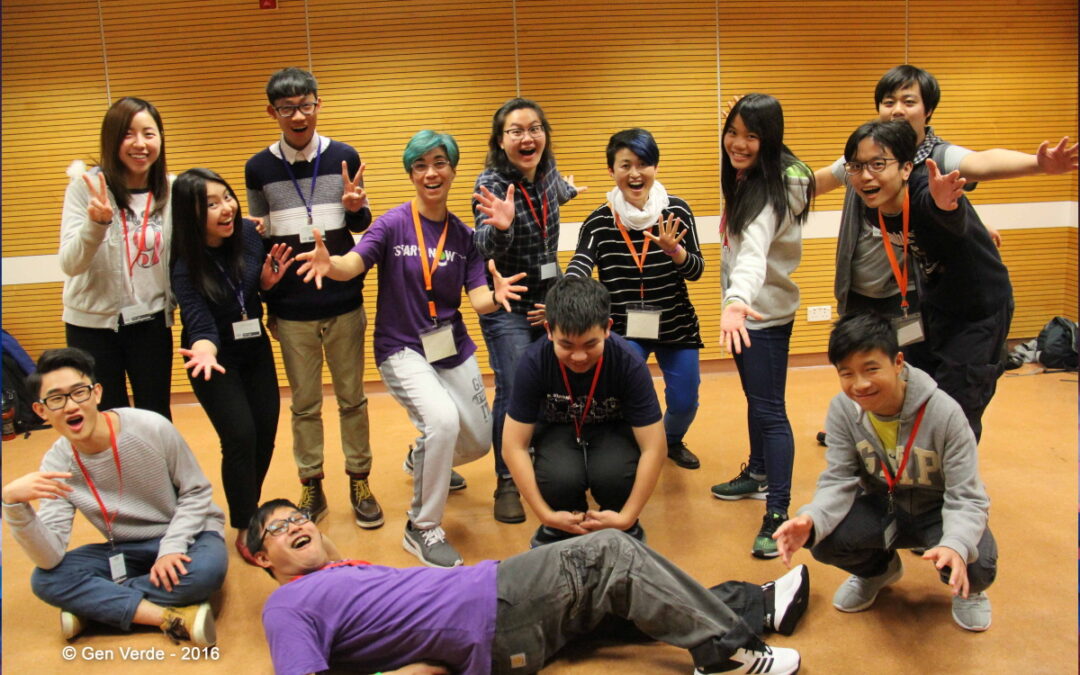
Gen Verde: Asian tour
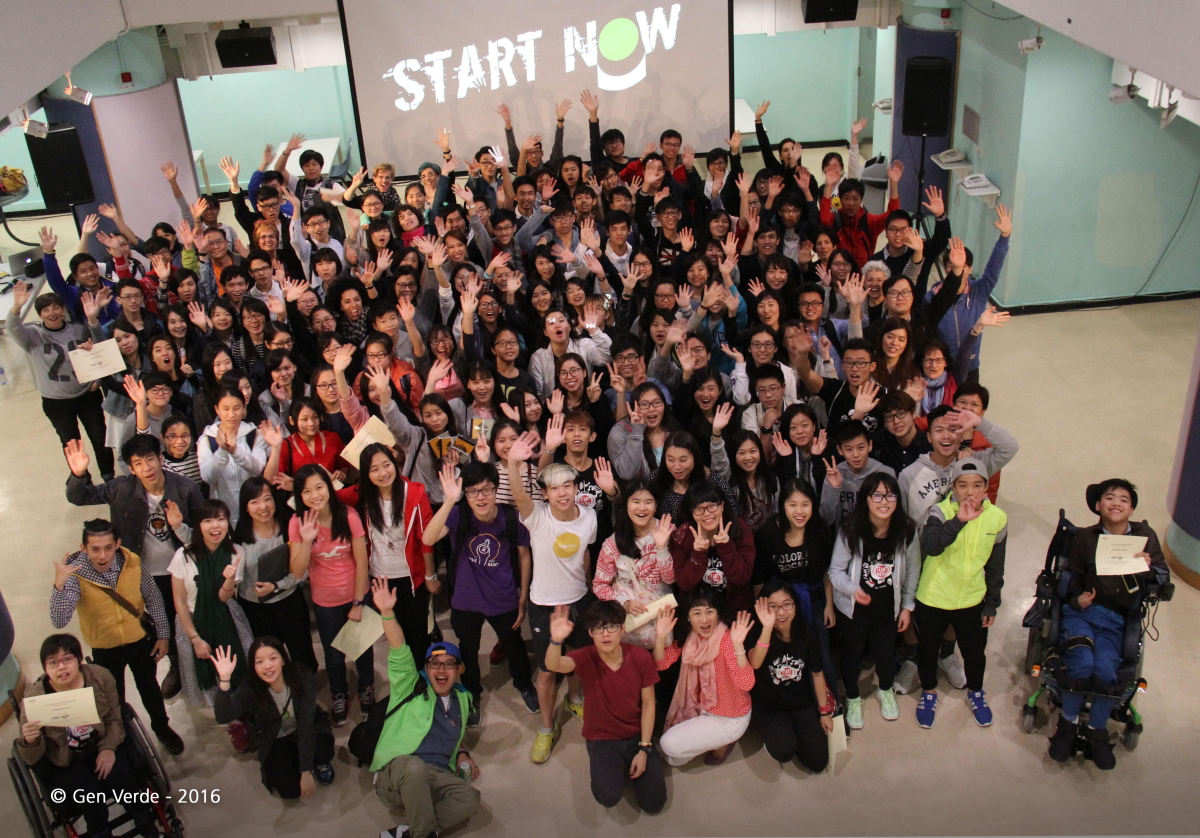 “It is the most beautiful and moving concert I have ever attended.” “Your music soothes the soul.” “I can no longer be indifferent to the world around me: I have to do something.” These are some of the impressions with which the audience expressed their enthusiasm for “On the other side,” the latest concert of the international band Gen Verde, given in Hong Kong, Macao and four cities of Taiwan (Haulien, Taipei, Kaoshiung and Taichung). Gen Verde is an international all-women band with members from 14 countries and four continents. They cover all the roles: authors, composers, musicians, dancers, lighting, video and sound technicians, management, etc. In theatres and stadiums filled to the brim with enthusiastic audiences, these women offer a programme interwoven with their own life stories, portrayed through music and drama, through which they give voice to their ideal of unity, presented as the key elements urging humanity to move towards universal brotherhood. Various pieces, complete with choreographies, unfolded to the rhythm of an engaging style of pop-rock music of various shades which all went to underpin this theme, while the backdrop projected significant key words, graphics and images of great historical impact.
“It is the most beautiful and moving concert I have ever attended.” “Your music soothes the soul.” “I can no longer be indifferent to the world around me: I have to do something.” These are some of the impressions with which the audience expressed their enthusiasm for “On the other side,” the latest concert of the international band Gen Verde, given in Hong Kong, Macao and four cities of Taiwan (Haulien, Taipei, Kaoshiung and Taichung). Gen Verde is an international all-women band with members from 14 countries and four continents. They cover all the roles: authors, composers, musicians, dancers, lighting, video and sound technicians, management, etc. In theatres and stadiums filled to the brim with enthusiastic audiences, these women offer a programme interwoven with their own life stories, portrayed through music and drama, through which they give voice to their ideal of unity, presented as the key elements urging humanity to move towards universal brotherhood. Various pieces, complete with choreographies, unfolded to the rhythm of an engaging style of pop-rock music of various shades which all went to underpin this theme, while the backdrop projected significant key words, graphics and images of great historical impact. 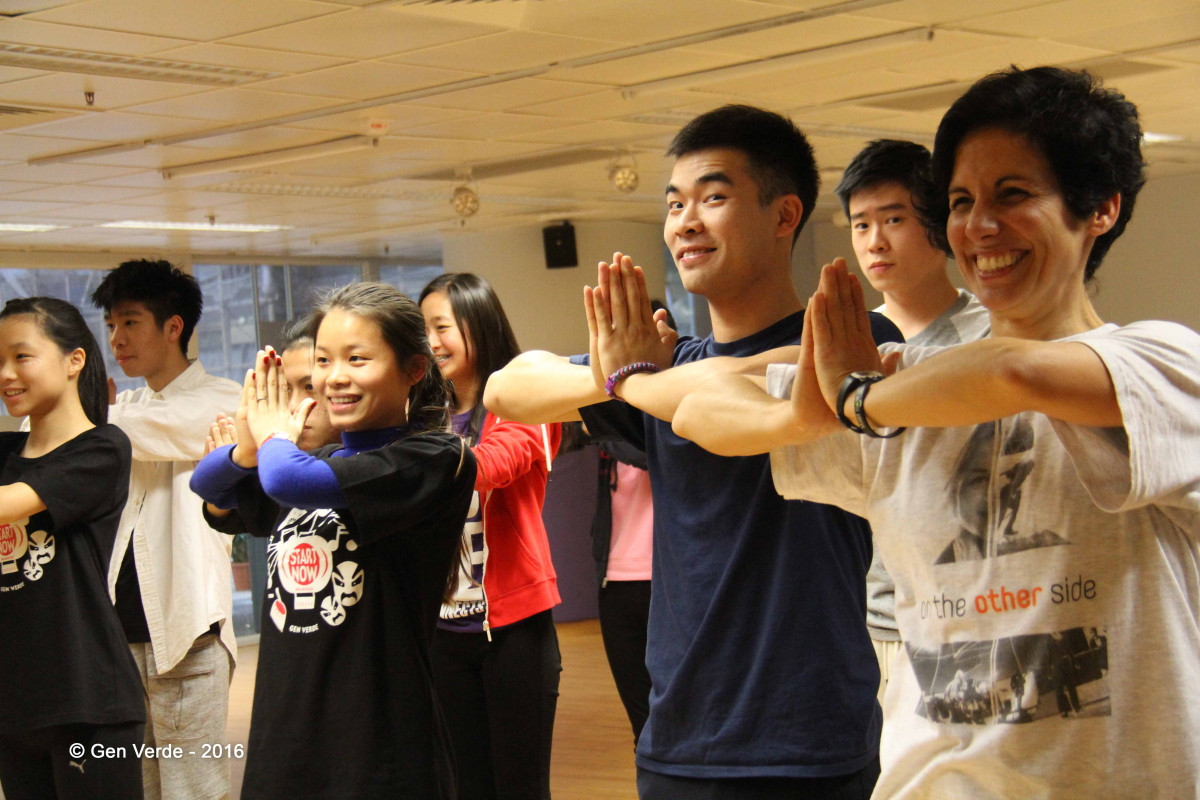 Since some pieces were presented in the local languages, the message came through loud and clear. In addition, in the days preceding the concerts, in three of these cities, the band involved the high school and university students in the “Start Now” project with the support of the local Focolare community. The universal language of music and the arts led the youth to undertake a dialogue beyond their differences, to build the show “together.” The fact was that, in every piece, participation and enthusiasm were so vital, that the workshop participants gave the same commitment as the artists in launching their message.
Since some pieces were presented in the local languages, the message came through loud and clear. In addition, in the days preceding the concerts, in three of these cities, the band involved the high school and university students in the “Start Now” project with the support of the local Focolare community. The universal language of music and the arts led the youth to undertake a dialogue beyond their differences, to build the show “together.” The fact was that, in every piece, participation and enthusiasm were so vital, that the workshop participants gave the same commitment as the artists in launching their message. 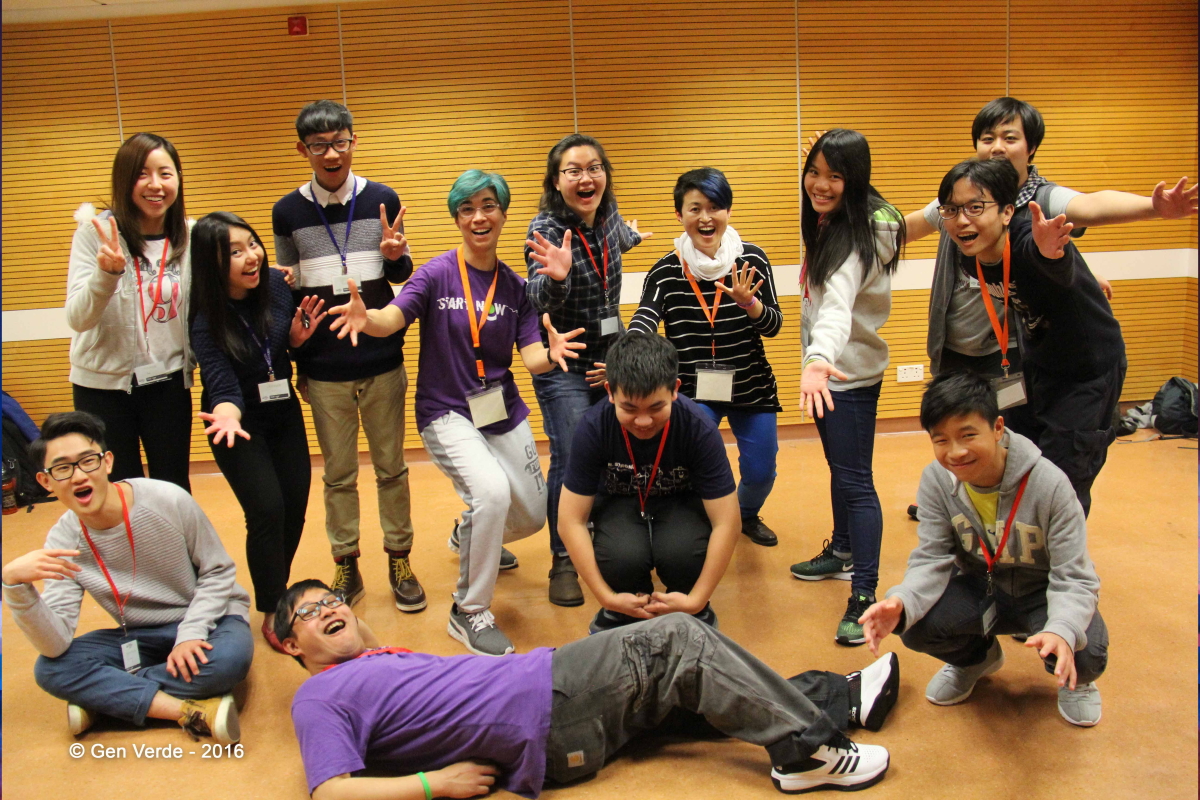 For Gen Verde, meeting the Asian youth was important, to see that also at this latitude, the expectations of the new generations are to share their experiences and move away from stereotyped images and give a mark of trust and altruism to their lives. “Many of them – a member of the group said – confided their difficulty in living in an extremely competitive society where they are always under pressure to excel. At the same time they demonstrated great sensitivity to the themes of the environment, peace and universal brotherhood, and dialogue with all.” “You have given us hope, courage, energy and enthusiasm,” one of them wrote to Gen Verde. And a girl said: “In all sectors we are pushed to be top of the class: instead we learned from you that we must follow our conscience and be true to ourselves.” A businessman said: “Looking at the young people this evening I would say, with youth like this, Hong Kong is saved!” After the rioting that a few days earlier had traumatized the city, the concert re-lit the fire of hope in him. To live for a united world wherever we are. This is the message that remains in the hearts of those who meet Gen Verde, whatever culture or creed they profess, because in each of them is imbued the conviction that together comes the strength to make the world a better place. See Photo gallery Hong Kong and Photo gallery Taipei
For Gen Verde, meeting the Asian youth was important, to see that also at this latitude, the expectations of the new generations are to share their experiences and move away from stereotyped images and give a mark of trust and altruism to their lives. “Many of them – a member of the group said – confided their difficulty in living in an extremely competitive society where they are always under pressure to excel. At the same time they demonstrated great sensitivity to the themes of the environment, peace and universal brotherhood, and dialogue with all.” “You have given us hope, courage, energy and enthusiasm,” one of them wrote to Gen Verde. And a girl said: “In all sectors we are pushed to be top of the class: instead we learned from you that we must follow our conscience and be true to ourselves.” A businessman said: “Looking at the young people this evening I would say, with youth like this, Hong Kong is saved!” After the rioting that a few days earlier had traumatized the city, the concert re-lit the fire of hope in him. To live for a united world wherever we are. This is the message that remains in the hearts of those who meet Gen Verde, whatever culture or creed they profess, because in each of them is imbued the conviction that together comes the strength to make the world a better place. See Photo gallery Hong Kong and Photo gallery Taipei
Events around the world celebrating the 8th anniversary of the death of Chiara Lubich on March 14, 2008
March 5, 2016, Brescia, Italy At the Catholic University: “Paul VI And Chiara Lubich, The Prophecy Of A Church That Makes Itself Dialogue Conference,” organised in collaboration with Paul VI Institute in continuation of the “Make Dialogue Days” held in Castel Gandolfo during November 2014. Among the presenters: Archbishop Vincenzo Zani, Secretary of the Congregation for Catholic Education; Lucia Albignente, who is in charge of the historical sector of the Chiara Lubich Centre; Father Angelo Maffeis, president of Paul VI Institute; Franco Monaco, politician and journalist; Alberto Lo Presti, professor of Political Theory at Sophia University Institute. March 6, 2016, Vicenza, Italy “Beyond The Borders Interreligious Conference” at Centro A. Onisto – Borgo S. Lucia, 51. Speakers: Emeritus Bishop of Aleppo, Armando Bortolaso; Imam of the Islamich community of Veneto, Dr Kamel Layachi and Rita Moussallem from the Focolare’s Centre for Interreligious Dialogue. The event will conclude with a flashmob in Piazza dei Signori. March 6, 2016, Olomouc, Czech Republic At the Catholic Chancery, a Cultural programme on the figure of Chiara Lubich as a sower of peace, followed by the celebration of the Mass by Archbishop Jan Graubner in cathedral. March 8, 2016, Ischia, Italy At the island’s Multi-Purpose Auditorium, 19:30, an evening programme on Work & Neigborhood. Civil engineer, Patience Mollè Lobè and business owner, Antonio Diana will be among the presenters. The moderator will be Carlo Cefaloni, Città Nuova journalist and expert on workplace dynamics. March 11, 2016, Caserta, Italy Music, testimonies and theater, at the Reggia di Caserta, 19:30, a reflection on the life and thought of Chiara Lubich titled: “The great attraction of the modern time”. Through the collaboration of the Diocese and the Directors of the Reggia. March 11, 2016, Rosario, Argentina A meeting at the Catholic University of Argentina (UCA) will reflect on the influence of the charism of unity on education. Presenters include: Dr Nieves Tapia, Coordinator of the Latin American Centre for Service Learning (CLAYSS). March 11-12, 2016, Fontem, Cameroon Workshop with music, drawing, poetry and theatre on “Chiara and Peace” for the students of 20 schools that belong to the Peace Education Project. Awards for the best pieces and for significant gestures of peace by the students themselves. The event will also be attended by civil authorities, traditional and religious authorities. March 12, 2016, Garden Grove, USA At Christ Cathedral, Garden Grove, holy Mass celebrated by Bishop Kevin William Vann, from the Diocese of Orange. In the afternoon, at the Academy Gym, a meeting on multiculturalism with representatives from various religions and ethnicities. March 12, 2016, Caracas, Venezuela Presentation of Chiara Lubich as a builder of dialogue and peace, who was awarded the 1996 UNESCO Peace Prize. The event will take place at the Institute For Religious Education (ITER) with people from different Churches. March 12, 2016, Brasilia, Brazil At the Paulist University (UNIP), at 15:30, 1996 UNESCO Peace Prize to Chiara Lubich. Followed by three moments of reflection: building peace in our personal relationships; in the dialogue amongst churches and religions and, in collaboration with the Institute of Immigration and Human Rights (IMDH), with mirgrants and refugees. Entrance fee: 1 kg of food for Haitian immigrants. March 12, 2016, Todi, Italy Tenth anniversary of the conferment of honorary citizenship on Chiara Lubich, at 15:30, in the Council Hall: “A Humanised Economy”, which will reflect on the Economy of Communion Project that was conceived by Chiara Lubich. Besides the Mayor of the city, interventions will be made by the President of the Region of Umbria, Cardinal Ennio Antonelli, Dr Giuseppe Argiolas and two business owners: Andrea Cruciani and Antonio Baldaccini. March 12, 2016, Castel Gandolfo, Italy At the Mariapolis Centre (Via de La Salle), 17:30, a programme of reflection on “The Culture Of Dialogue As A Means Of Peace.” The invitation is extended to ecclesiastical and civil leaders, and to the general public. Besides numerous testimonies, the keynote address will be given by Focolare president, Maria Voce. March 12, 2016, Manfredonia, Italy The 7th Edition of the Manfrodian Chiara Lubich Brotherhood Prize. In attendance: Vera Baboun, Mayor of Bethlehem and Pasquale Ferrara, diplomat and Secretary General of the European University Institute of Florence. Info March 12, 2016, Milan, Italy “Me Through You” Event, highlighting how the search for peace brings us closer to others and to our true self. The event will take place in three half-hour sections, each in a different location and at different times so that everyone can attend all the sections: at the Basilica of Saint Ambrose; Daughters of Mary Help of Christians Institute; Gonzaga Institute. Info March 12, 2016, Sarajevo, Bosnia Herzergovina An Open Day at the School of Theology dedicated to Chiara Lubich: “The Message of Dialogue and Peace.” Participants include people of Christian confessions, other faiths and people with no religious affiliation. Archbishop of Sarajevo, Cardinal Vinko Pujic, will celebrate Mass in cathedral. March 12, 2016, Genoa, Italy In the Minor Council Hall of the Piazza Ducale, a discussion on the Encyclical Letter Laudato si’ during a programme titled: “Religions Dialogue For Peace And the Environment.” Presenters will include: President of the Islamic Community of Genoa, Huseim salah; Chief Rabbi of Genoa, Giuseppe Momigliano; Buddhist monk, Gnanathilaka Mahauswewe; environmental engineer, Andrea Ponta; from the Focolare’s Centre for Interreligious Dialogue, Roberto Catalano March 12, 2016, Milan, Italy “Me Through You” Event, highlighting how the search for peace brings us closer to others and to our true self. The event will take place in three half-hour sections, each in a different location and at different times so that everyone can attend all the sections: at the Basilica of Saint Ambrose; Daughters of Mary Help of Christians Institute; Gonzaga Institute. Info March 12, 1016, Solingen, Germany At Zentrum Frieden Mariapolis Centre, “Living together in diversity”. The German Movement for Unity in Politics invites everyone to a roundtable with politicians and city administrators. It will be followed by a discussion on the integration of refugees. March 13, 2016, Kikwit, Democratic Republic of the Congo The city Mayor will the event at the Jesuit School where, in the presence of civil and religious authorities, a reflection on Peace and the Light of the Charism of Unity will be held. An event under the same title will be held the same day in Goma, Lubumbashi and in 16 cities of the Democratic Republic of the Congo March 13, 2016, Kinshasa, Democratic Republic of the Congo In the Great Hall of the Catholic University, in the presence of religious leaders from different Churches and religions, the academic and diplomatic world, a discussion on Chiara as Woman of Peace. An intervention will be given by the UNESCO representative in the Democratic Republic of the Congo. March 13, 2016, San Salvador, El Salvador Roundtable on “Peace that is born from dialogue” at the Università F. Gavidia, in the auditorium of Edificio E, 9:00 – 12:00 March 13, 2016, Lisbon, Portugal At the Franciscan Cultural Centre, a roundtable on ‘Chiara and Peace’ with members of the National Peace and Justice Commission, Dr Pedro Vaz Patto, President, Dr Graça Franco and António Marujo, journalists. March 13, 2016, Melbourne, Australia At the Mariapolis Centre, a celebration titled “Build peace in your own environment” , including testimonies on welcoming refugees. Presentation of Mark Ruse’s documentary film: “Politics for unity: making a world of difference”. Those in attendance include: Vicar General of the Diocese, Msgr Greg Bennet and leaders of ecclesial movements operating in Australia. March 13, 2016, Bujumbura, Burundi At Scheppen High School of Nyakabiga : “Merciful Like The Heavenly Father, Building Peace.” Presenters include: the Archbishop of Bujumbura, Evariste Ngoyagoye. March 13, 2016, Vung Tau, Vietnam Annual Mariapolis in Vietnam, in the presence of the Bishop, Joseph Tran Văn Toan, who will celebrate the Mass. The programme will also include the presentation of a documentary film on Chiara Lubich: Story, Charism, Culture. March 14, 2016, Houston, USA “Unity In Diversity” Interreligious Conference at 19:00 in the St. Thomas University, preceeded by the celebration of Catholic Mass in St. Basil Chapel by the Archbishop of Galveston-Houston, Cardinal Joseph Anthony Fiorenza. Presenters include: Cardinal Fiorenza; Imam Qasim Ahmed from the Islamic Institute; Rabbi Steve Morgen from the Beth Yeshurun Congregation; Therese Lee from the Focolare Movement. Info March 14, 2016, Manila, Philippines During the 50th anniversary celebration of the arrival of the Focolare in Asia, at De La Salle University, a symposium title: “The Charism Of Unity, A Timeless Legacy.” Numerous religious and civil leaders will present the reflections on Chiara Lubich’s contribution to the unity among Churches, religions, in society, an on Gospel reciprocity as a lifestyle that creates brotherhood. March 14, 2016, Rome, Italy At the Shrine of Our Lady of the Divine Love, at 18:30, Mass celebrated by Cardinal João Braz de Aviz, Prefect of the Congregation for Consecrated Life. Info March 14, 2016, Trent, Italy At the Demarchi Foundation, presenation of the book by I. Pedrini: “L’altro Novecento: nella testimonianza di Duccia Calderari.” Duccia’s biography, one of the first witness who followed Lubich in the birth of the Focolare, gives the opportunity to: Monica Ronchini, researcher; Giuseppe Ferrandi, Director of the History Museum of Trent; and Lucia Fronza Crepaz, ex-parliamentarian – to reflect on Chiara as a builder of peace. March 14, 2016, Havana, Cuba At Fray Bartolomé de las Casas Cultural Centre, a presentation of the figure of Chiara and peace, in the presence of Apostolic Nunzio, Archbishop Giorgio Lingua. Follwed by a concert by the Ars Longa Ancient Music Group. March 14, 2016, Verona, Italy At the Palazzo Gran Guardia: presentation of the “Chiara Lubich For A Culture Of Peace Brotherhood Prize, in the presence of Muslim theologian, Sharharzad Houshmand; Professor at the University of Padua, Giuseppe Milan; journalist Aurora Niosia March 16, 2016, Rome, Italy At the Chamber of Deputies, presentation of a manifesto with concrete proposals for peace, disarmament and industrial conversion.To receive it in Parliament, Youth for a United World who, with the Movement for Unity in Politics and participating schools, promoted the project, along with several deputies, the President of the Chamber, Boldrini and Exterior Minister, Gentiloni. March 16, 2016, Seville, Spain At the Metropolitan Seminary, Dr Manual Palma, vice director of the Theological Union of Seville, will speak on Jesus, Prince of Peace in the Spirituality of Chiara Lubich. Followed by a discussion on peace in Islam to be held by Imam Allah Bashar from the King Abdul Aziz Al Saud Mosque of Marbella, Malaga). He will also talk about his relationship with Chiara Lubich. March 18-20, 2016, Milan, Italy At the Fieramilanocity, during the international fair, an exposition on the Economy of Communion, presenting Lubich’s message of peace that continues to reach today’s world. Info March 19, 2016, Perth, Australia At Northbridge Square, screening of a video clip on “Peace” produced by young people, and a signature campaign appealing for peace #Signup4peace.
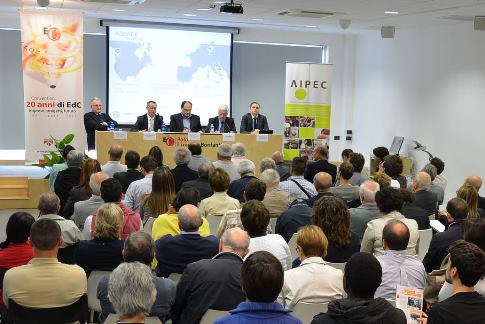
Two businesses, one story of communion
 “I’ve been running the family business for more than 40 years,” says Livio from the Italian Province of Cuneo (Italy). “Along with me there is my wife, our 4 children and my sister. Along with our 28 employees we deal in galvanic treatment of dumbells, tanks, motorcycles, mufflers, automobile parts, fitness equipment, and so on. The chrome coating is good for appearance, but most of all for preventing rust. For several years now our business has been applying the values of the Economy of Communion, a project which joins the need to generate profit with the aspiration to help the needy and put people at the centre of things. This goes for employees, between shareholders, with clients, providers and competitors. Following a long period of almost constant growth, we were unexpectedly hit by the serious crisis that still affects many companies like ours. Of course, we’re not going to give up, and we continue to do all we can to find new clientele – and we never stop believing in this new way of understanding the economy.
“I’ve been running the family business for more than 40 years,” says Livio from the Italian Province of Cuneo (Italy). “Along with me there is my wife, our 4 children and my sister. Along with our 28 employees we deal in galvanic treatment of dumbells, tanks, motorcycles, mufflers, automobile parts, fitness equipment, and so on. The chrome coating is good for appearance, but most of all for preventing rust. For several years now our business has been applying the values of the Economy of Communion, a project which joins the need to generate profit with the aspiration to help the needy and put people at the centre of things. This goes for employees, between shareholders, with clients, providers and competitors. Following a long period of almost constant growth, we were unexpectedly hit by the serious crisis that still affects many companies like ours. Of course, we’re not going to give up, and we continue to do all we can to find new clientele – and we never stop believing in this new way of understanding the economy. 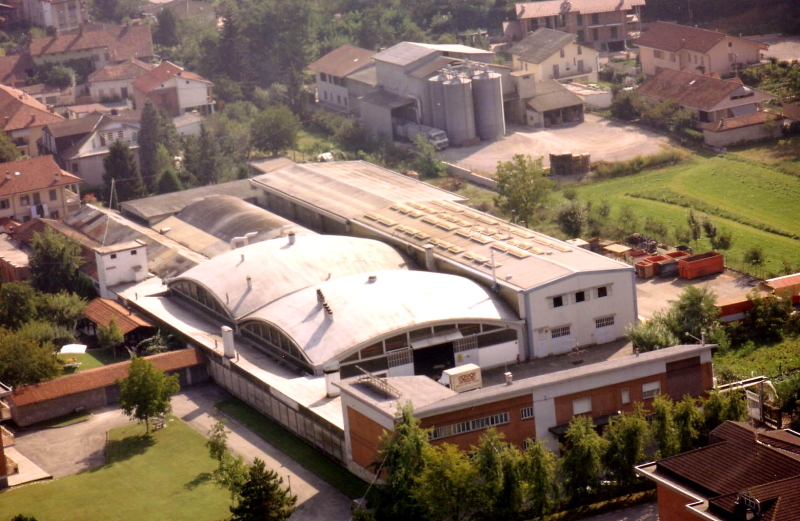 In 2014 we welcomed three members of an important German automotive group who were potential customers. After the technical presentation of the company by our children and other collaborators, seeing that the visitors were so impressed and so curious we spoke to them about the Economy of Communion and its growth throughout the world. We also told them about the AIEC in Europe and AIPEC in Italy (of which I’m the president): two business owners associations whose members run their businesses inspired by the “culture of giving”. Eventually, while proposing an interesting job offer they remarked: ‘We’re surprised that despite the fact that your production company has such limited forces, you were able to create a galvanic process which is actually quite complex’. The processing systems and many years of hard work certainly had something to do with it, but also the stories of some of our experiences during the lull periods when we didn’t have much business and hired several migrants and two young people who were in the midst of serious problems, and of everyone’s commitment to live in a relationship of brotherhood also outside working hours. We think that another factor was our way of giving priority to relationships in a healthy detachment from wanting to do business at any cost.”
In 2014 we welcomed three members of an important German automotive group who were potential customers. After the technical presentation of the company by our children and other collaborators, seeing that the visitors were so impressed and so curious we spoke to them about the Economy of Communion and its growth throughout the world. We also told them about the AIEC in Europe and AIPEC in Italy (of which I’m the president): two business owners associations whose members run their businesses inspired by the “culture of giving”. Eventually, while proposing an interesting job offer they remarked: ‘We’re surprised that despite the fact that your production company has such limited forces, you were able to create a galvanic process which is actually quite complex’. The processing systems and many years of hard work certainly had something to do with it, but also the stories of some of our experiences during the lull periods when we didn’t have much business and hired several migrants and two young people who were in the midst of serious problems, and of everyone’s commitment to live in a relationship of brotherhood also outside working hours. We think that another factor was our way of giving priority to relationships in a healthy detachment from wanting to do business at any cost.” 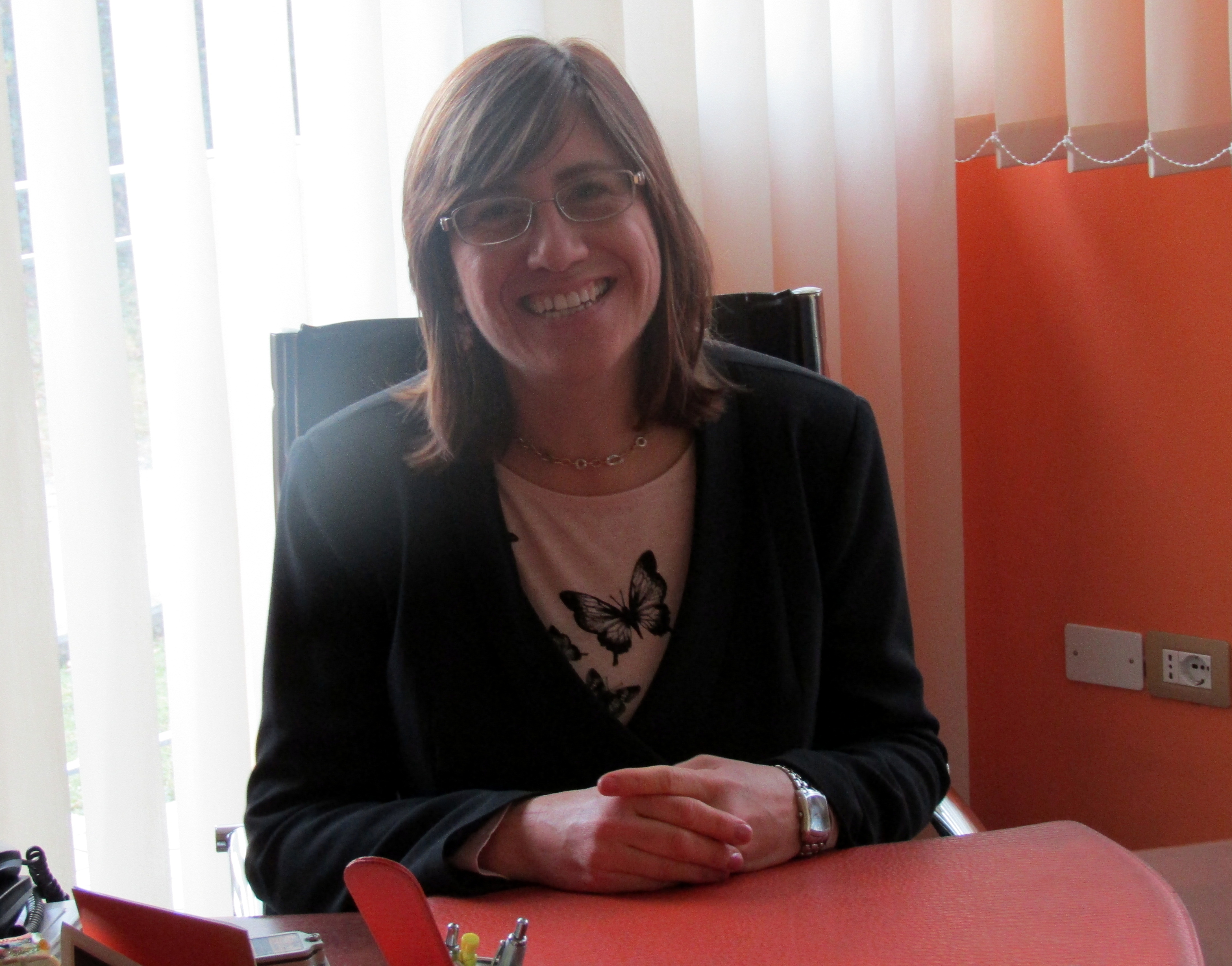 “I’m director of a mechanical manufacturing company,” says Enrica from Turin, Italy. “We also have 28 employees. My father, whom I soon began to work for, conveyed to me the values of sharing, the spirit of sacrifce and the commitment to always improve. In the year 2000 orders were reduced to a minimum, but no one was fired and, at Christmas, because of the lack of liquidity it was decided that we would pay the Christmas Bonuses from our own pockets. In 2003 we got a foreign job offer. My father and I jumped on it, involving and empowering all the employees. We worked very much to gain the trust of banks, suppliers, clientele and establishing compactness. Three months later, we were overwhelmed by the crisis and by my father’s sudden illness. Thanks be to God, I was able to count on the support of many people and, after a year and a half of temporary layoffs, all the employees returned to the business. But I was tired and opressed by it all.
“I’m director of a mechanical manufacturing company,” says Enrica from Turin, Italy. “We also have 28 employees. My father, whom I soon began to work for, conveyed to me the values of sharing, the spirit of sacrifce and the commitment to always improve. In the year 2000 orders were reduced to a minimum, but no one was fired and, at Christmas, because of the lack of liquidity it was decided that we would pay the Christmas Bonuses from our own pockets. In 2003 we got a foreign job offer. My father and I jumped on it, involving and empowering all the employees. We worked very much to gain the trust of banks, suppliers, clientele and establishing compactness. Three months later, we were overwhelmed by the crisis and by my father’s sudden illness. Thanks be to God, I was able to count on the support of many people and, after a year and a half of temporary layoffs, all the employees returned to the business. But I was tired and opressed by it all.  At that point I came to know about AIPEC, which was established in 2012, and about these business owners who I felt close to because of their working style and their ‘culture of giving’. That’s how I began to attend their meetings, comparing myself to them and to various social categories. I felt welcomed, encouraged, instructed – to the point that I recently accepted a position in directing AIPEC. Together with the others who were elected, I continue to discover the beauty and the responsibility involved in run a business in which you do your best to maintain a stable economy and at the same time share in relationships, take a listening position and offer concrete support. Because a gift given bears fruit, and it is fruit that lasts.”
At that point I came to know about AIPEC, which was established in 2012, and about these business owners who I felt close to because of their working style and their ‘culture of giving’. That’s how I began to attend their meetings, comparing myself to them and to various social categories. I felt welcomed, encouraged, instructed – to the point that I recently accepted a position in directing AIPEC. Together with the others who were elected, I continue to discover the beauty and the responsibility involved in run a business in which you do your best to maintain a stable economy and at the same time share in relationships, take a listening position and offer concrete support. Because a gift given bears fruit, and it is fruit that lasts.”
Maria Voce: the culture of dialogue that enables peace
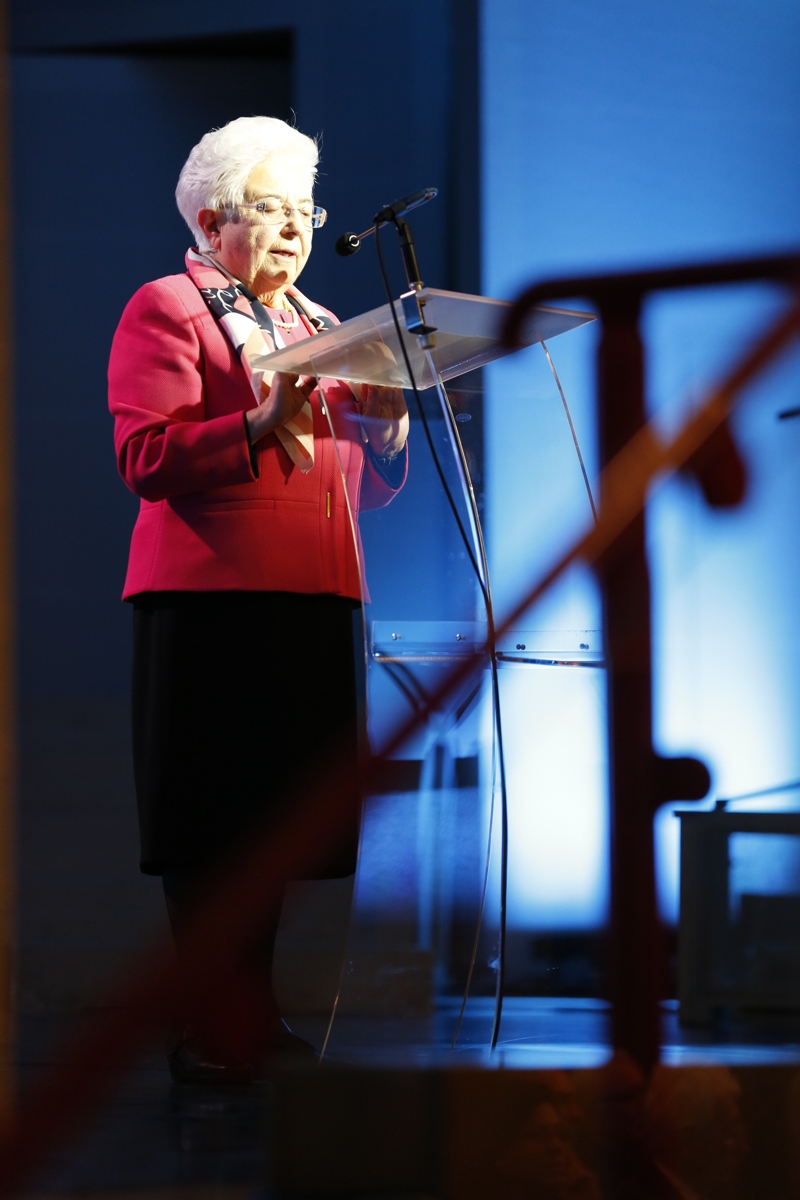 “What we wish to do today is not so much remember as to review together, after 20 years, the content and method which Chiara outlined at UNESCO on the 17th December 1996 on a subject which is more than ever relevant to international relations, education for peace. On that occasion UNESCO conferred on the founder of the Focolare Movement a special prize awarded to those whose work contributes to creating pathways and conditions whereby peace may become something real.” Maria Voce, the President of the Focolare, recalled that event in her talk given on 12th March at Castel Gandolfo, during the afternoon dedicated to Chiara Lubich and peace, in the presence of ambassadors and leading figures in the worlds of culture and Christian unity. “Looking at that occasion again today, it seems more than ever relevant: what could be more important than education to reach this kind of goal? Current affairs, what we see before us day after day, portray images of a peace that has been violated and often scorned. It seems almost as though, from the daily life of individuals right up to international level, “living in peace” is not part of what the generations living in the Third Millennium do. Yet how often do we appeal for peace or try to reconnect the broken strands of relationships among individuals, peoples and states? We cannot deny that we find it easier to put up barriers, perhaps thinking we are defending ourselves, instead of working to build unity in relations, among ideas, in politics, in economics and between religious viewpoints. Hence peace escapes us and is ever more distant. At UNESCO Headquarters, Chiara Lubich put forward a method for education to peace, the spirituality of unity, which is a new lifestyle that can overcome divisions among individuals, communities and peoples and so can help restore or consolidate peace.
“What we wish to do today is not so much remember as to review together, after 20 years, the content and method which Chiara outlined at UNESCO on the 17th December 1996 on a subject which is more than ever relevant to international relations, education for peace. On that occasion UNESCO conferred on the founder of the Focolare Movement a special prize awarded to those whose work contributes to creating pathways and conditions whereby peace may become something real.” Maria Voce, the President of the Focolare, recalled that event in her talk given on 12th March at Castel Gandolfo, during the afternoon dedicated to Chiara Lubich and peace, in the presence of ambassadors and leading figures in the worlds of culture and Christian unity. “Looking at that occasion again today, it seems more than ever relevant: what could be more important than education to reach this kind of goal? Current affairs, what we see before us day after day, portray images of a peace that has been violated and often scorned. It seems almost as though, from the daily life of individuals right up to international level, “living in peace” is not part of what the generations living in the Third Millennium do. Yet how often do we appeal for peace or try to reconnect the broken strands of relationships among individuals, peoples and states? We cannot deny that we find it easier to put up barriers, perhaps thinking we are defending ourselves, instead of working to build unity in relations, among ideas, in politics, in economics and between religious viewpoints. Hence peace escapes us and is ever more distant. At UNESCO Headquarters, Chiara Lubich put forward a method for education to peace, the spirituality of unity, which is a new lifestyle that can overcome divisions among individuals, communities and peoples and so can help restore or consolidate peace. This spirituality is lived by people from very different backgrounds and experiences: Christians of different Churches, believers of different religions and people of different cultures. All of them are motivated by wanting to enable humankind become one single family; all know they must face problems and situations that arise daily at every level and in every field; all are directed towards being – at least wherever they are – and I quote Chiara “seeds of a new people, of a world at peace, with greater solidarity especially towards the least and the poorest; to be seeds of a more united world” (Chiara Lubich’s talk at UNESCO, 17.12.1996) in which it will be possible not only to call one another brothers and sisters but truly be so. If this is the method, what is the secret of its success? It is a secret which Chiara herself defined as the art of loving, which is “It means being the first to love, without expecting the other person to love us in return. It means knowing how to ‘make ourselves one’ with others, that is, to identify with their burdens, their thoughts, their sufferings, their joys. But, if this love of neighbour is lived out by more than one person, it becomes mutual. (Ibid.). Reciprocity: it is a word which carries much weight in international relations but is often limited to ensuring a truce in conflicts, not in preventing them or resolving them. Those who have responsibility and key roles in the international community know very well how difficult negotiations can be and how many obstacles are encountered before reaching agreements that satisfy all parties. To consider love as a negotiating tool in regard to the great objective of peace would allow us to feel part of one family, to live an authentic dimension of fraternity without restricting it merely to coexistence or forced shared living, but enabling fraternity to be open to the needs of the weakest and the poorest, of those who are excluded from political engagement or from a type of economics whose only law is profit. We need to love, then, and work for others and with others; so as to help overcome the barriers posed by conflicting interests, by a show of power, by inequality in levels of development, or lack of access to the market or technology. When speaking about peace education we find ourselves facing the great challenge of applying a method, that of unity as the fruit of mutual love, in the fragmented context currently enveloping almost all spheres of our daily life. Chiara Lubich was aware of this and for this reason offered the Representatives of Member States at UNESCO almost the key for a step change, a good practice, in the language used in international relations. In fact she said: «Nothing good, useful, or fruitful can be accomplished in the world without accepting troubles, suffering, in a word, without the cross.” (Ibid.). Commitment to peace is difficult to achieve if we are not ready to set aside our certainties and our comfort, so as to set out on new and unexplored paths; becoming creative without improvising; hearing to the voices of those who call for peace and identifying places where it can actually be achieved. … Twenty years ago, speaking at UNESCO, Chiara pointed out that love was “the most powerful instrument that can give humanity its highest dignity: that of feeling not so much that we are a collection of peoples, alongside one another and often in conflict with one another, but instead that we are one single people.” Today too even though we face many recurring difficulties, this is the ideal we wish to achieve through everyone’s contribution.”
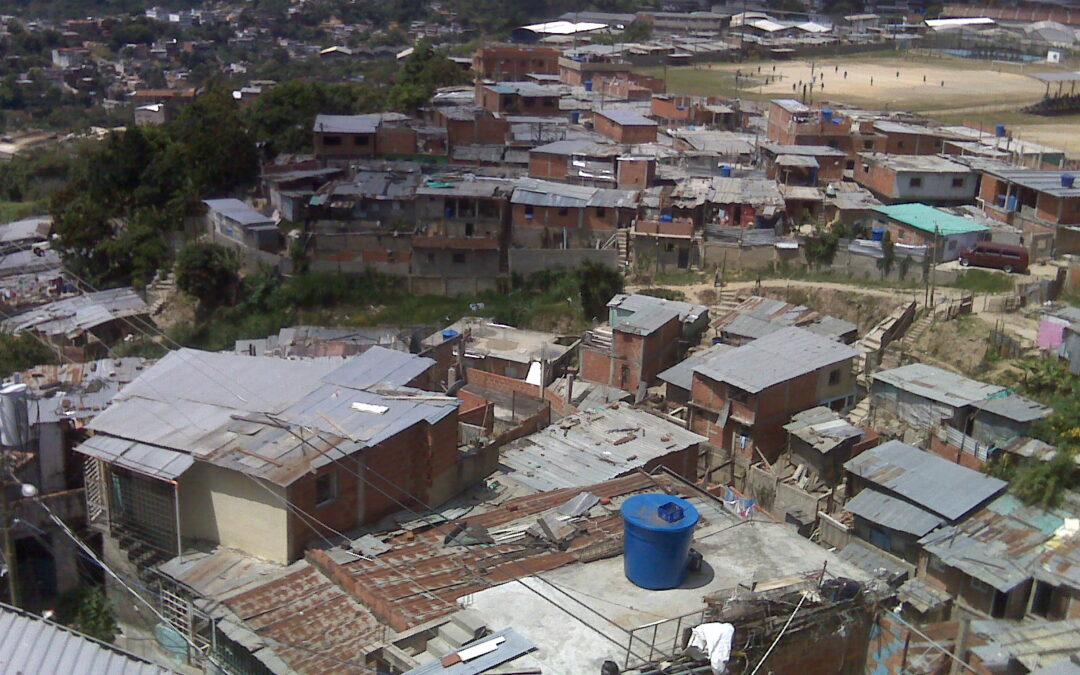
Venezuela, a country at risk
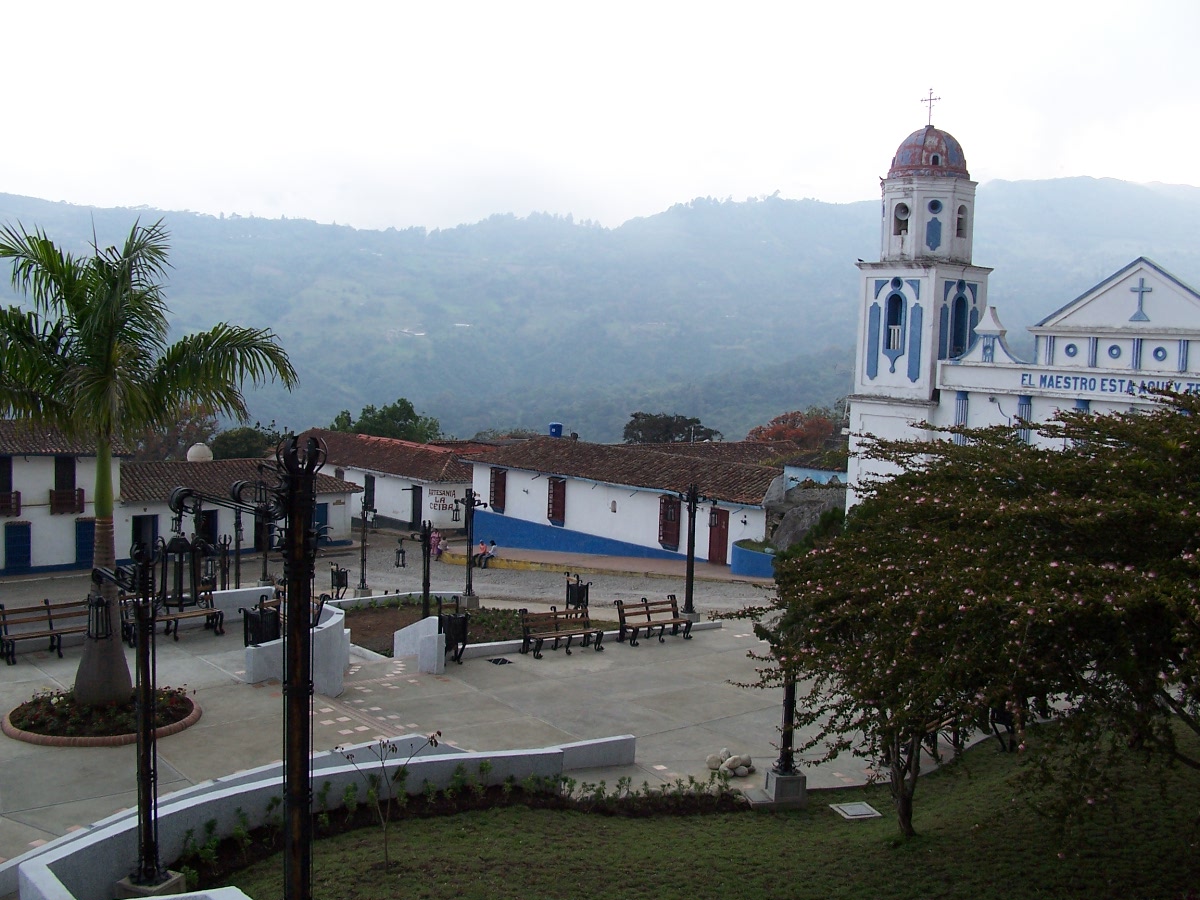 “In such a fractured and divided Venezuela we want to live the Gospel radically, wherever we work, or study, to build bridges of unity and peace. In the town council for example, there are 3 people who live the spirituality of unity, one belonging to the Government’s party and 2 in the opposing parties, and yet they respect and help one another.” One of them Ophelia, of the Focolare community speaks about a marginal district of the city of Valencia called Colinas de Guacamaya “A friend of mine asked me to accompany her to the doctor’s – she said and so the long waiting line started for the medicine: an old man in search of his treatment for diabetes, another asking for headache pills, a boy at the drug store asking for a painkiller. Just one pill, but he didn’t have enough money to pay for it.” But Ofelia had a bag of medicine in her car which she always brings along with her, with medicines that arrived from “Divine Providence”, as she herself recounts, and could offer them for free to all those who were there. The looks on their faces were of incredulity and gratitude. Betty and Orlando have 4 kids and they transferred to the “Little Cloud” Mariapolis Centre,in the district of Junquito, close to Caracas. “To serve those in need– Betty recounts –, we had lost touch with some members of the community so we organized the social pastoral. We wanted to respond to the need of food, clothing and homes for some families of the parish. So with the help of the town council, we managed to build a house fit to host a poor elderly man.” “The current social crisis, with the high in security indices the country is beset with, opened our hearts even more to the needs of the families in our community who live in fear of even losing their lives. We found out about a boy’s father who was in serious conditions due to a gunshot wound. in his head. We rushed to the hospital where he was admitted at the intensive care and died a few days later. We are now continuing to give our concrete love, with care and attention to protect the mother and son, whom we took in with us.”
“In such a fractured and divided Venezuela we want to live the Gospel radically, wherever we work, or study, to build bridges of unity and peace. In the town council for example, there are 3 people who live the spirituality of unity, one belonging to the Government’s party and 2 in the opposing parties, and yet they respect and help one another.” One of them Ophelia, of the Focolare community speaks about a marginal district of the city of Valencia called Colinas de Guacamaya “A friend of mine asked me to accompany her to the doctor’s – she said and so the long waiting line started for the medicine: an old man in search of his treatment for diabetes, another asking for headache pills, a boy at the drug store asking for a painkiller. Just one pill, but he didn’t have enough money to pay for it.” But Ofelia had a bag of medicine in her car which she always brings along with her, with medicines that arrived from “Divine Providence”, as she herself recounts, and could offer them for free to all those who were there. The looks on their faces were of incredulity and gratitude. Betty and Orlando have 4 kids and they transferred to the “Little Cloud” Mariapolis Centre,in the district of Junquito, close to Caracas. “To serve those in need– Betty recounts –, we had lost touch with some members of the community so we organized the social pastoral. We wanted to respond to the need of food, clothing and homes for some families of the parish. So with the help of the town council, we managed to build a house fit to host a poor elderly man.” “The current social crisis, with the high in security indices the country is beset with, opened our hearts even more to the needs of the families in our community who live in fear of even losing their lives. We found out about a boy’s father who was in serious conditions due to a gunshot wound. in his head. We rushed to the hospital where he was admitted at the intensive care and died a few days later. We are now continuing to give our concrete love, with care and attention to protect the mother and son, whom we took in with us.”  “Upon the request of the parish priest – María Carolina of the Junquito community recounts – we went to a rural zone that can be reached only by jeep. The Florida community were waiting for us, and in need of so many material things, and up to a few months earlier did not even have electricity. A community of sacrificed people, dedicated to farming and who walk kilometres to go to Mass once a month. An experience that involved all of us and which started up a communion of goods: from all over clothes, medicine, toys, shoes, food arrived… with trucks filled to the brim with goods but above all, hope, and love for this community. Even if difficulties are not missing, upon our arrival the people came out of their homes, running to meet us with applause, immediately imbuing a family atmosphere!.” The community of Puerto Ayacucho, in the State of Amazzona, is a border zone, inhabited by aborigine communities. They were beset with serious problems: the presence of guerillas, the exploitation of gold, a high rate of single mothers. It had just undergone a painful experience with the death of a boy, Felipe, a member of the Focolare, who had been killed two months earlier by gunshots. This is a frequent event in Venezuela, especially in this region. He had died to save the life of his brother who was wanted by the guerilla. Juan,his best friend, told us that «Felipe had set an appointment to enrol in the catechism class, but he died the day before… Together we had planned a lot for the future.» Felipe’s death had left a mark in this community: a new commitment to live to build peace, give new horizons and hope especially to the youth.
“Upon the request of the parish priest – María Carolina of the Junquito community recounts – we went to a rural zone that can be reached only by jeep. The Florida community were waiting for us, and in need of so many material things, and up to a few months earlier did not even have electricity. A community of sacrificed people, dedicated to farming and who walk kilometres to go to Mass once a month. An experience that involved all of us and which started up a communion of goods: from all over clothes, medicine, toys, shoes, food arrived… with trucks filled to the brim with goods but above all, hope, and love for this community. Even if difficulties are not missing, upon our arrival the people came out of their homes, running to meet us with applause, immediately imbuing a family atmosphere!.” The community of Puerto Ayacucho, in the State of Amazzona, is a border zone, inhabited by aborigine communities. They were beset with serious problems: the presence of guerillas, the exploitation of gold, a high rate of single mothers. It had just undergone a painful experience with the death of a boy, Felipe, a member of the Focolare, who had been killed two months earlier by gunshots. This is a frequent event in Venezuela, especially in this region. He had died to save the life of his brother who was wanted by the guerilla. Juan,his best friend, told us that «Felipe had set an appointment to enrol in the catechism class, but he died the day before… Together we had planned a lot for the future.» Felipe’s death had left a mark in this community: a new commitment to live to build peace, give new horizons and hope especially to the youth.
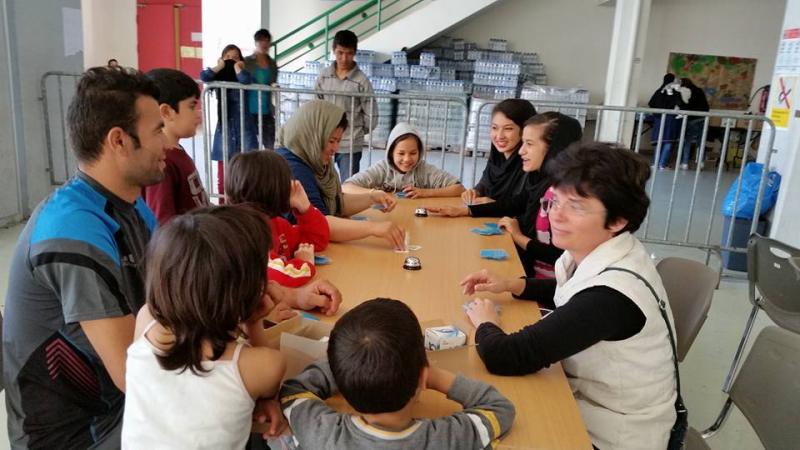
From the Focolare Community in Athens
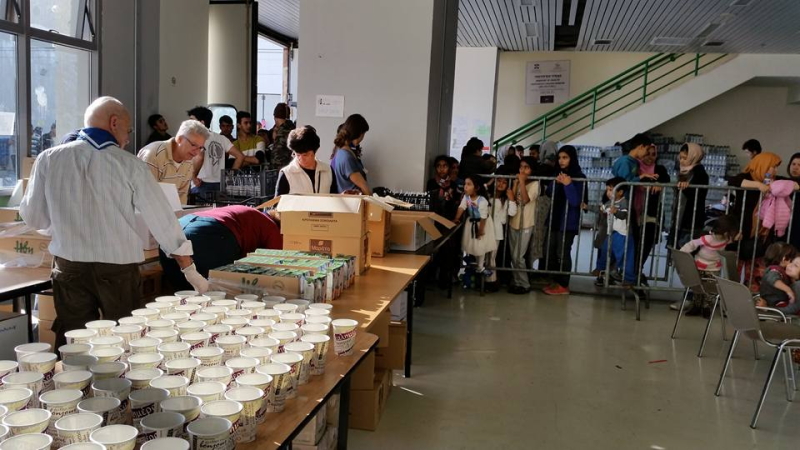 The flow of refugees has not stopped for months. They are living in a state of emergency on the islands of Lesbo, Kos, in Athens and in Idomeni. There are many secular and religious associations – Orthodox, Catholic, Protestant – and the NGOs that have never ceased to be there with help and assistance for these suffering people. The local community of the Focolare Movement, although small, both in Athens and in Salonica (Greece) has opened its arms and heart collaborating with several associations, including Caritas, The Pope John XXIII Community and others.
The flow of refugees has not stopped for months. They are living in a state of emergency on the islands of Lesbo, Kos, in Athens and in Idomeni. There are many secular and religious associations – Orthodox, Catholic, Protestant – and the NGOs that have never ceased to be there with help and assistance for these suffering people. The local community of the Focolare Movement, although small, both in Athens and in Salonica (Greece) has opened its arms and heart collaborating with several associations, including Caritas, The Pope John XXIII Community and others. 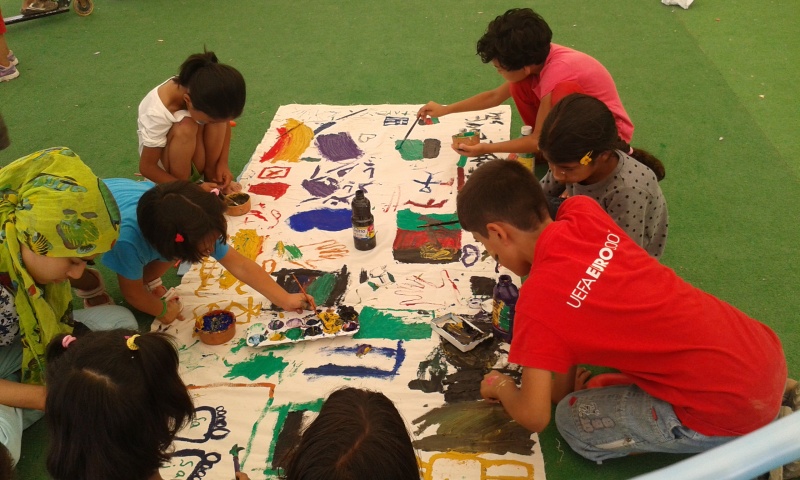 “Particularly in Athens,” they write, “we went to several refugee camps that are opened and closed according to the influx of arrivals. We have involved friends and colleagues in a food and clothing collection campaign to distribute to the different welcoming centres. From Salonica every week a group from the Focolare community in collaboration with Caritas, travels to the outskirts of Macedonia with relief and emergency aid.” “I went with some of my friends and colleagues from work to one camp where between 500 and 1000 people arrive each day,’ writes Mariangela from the focolare in Athens. “We help with the distribution of the meals, the sorting and mending clothing and play with the many, many children. We’d want to be able to say something to them, to share their burdens, but the language prevents us. The only way for us to communicate is with a smile, a caress and concrete deeds. In the end you feel like you’re able break through. It all seems so little in this sea of desperation, but we try to give at least one drop of love.”
“Particularly in Athens,” they write, “we went to several refugee camps that are opened and closed according to the influx of arrivals. We have involved friends and colleagues in a food and clothing collection campaign to distribute to the different welcoming centres. From Salonica every week a group from the Focolare community in collaboration with Caritas, travels to the outskirts of Macedonia with relief and emergency aid.” “I went with some of my friends and colleagues from work to one camp where between 500 and 1000 people arrive each day,’ writes Mariangela from the focolare in Athens. “We help with the distribution of the meals, the sorting and mending clothing and play with the many, many children. We’d want to be able to say something to them, to share their burdens, but the language prevents us. The only way for us to communicate is with a smile, a caress and concrete deeds. In the end you feel like you’re able break through. It all seems so little in this sea of desperation, but we try to give at least one drop of love.”  Maristella Tsamatropoulou, works on the National Greek Caritas Team: “The current refugee crisis doesn’t but expand the landscape of assistance that Caritas already began, to alleviate the Greek socio-economic crisis.” She explains, “It’s a matter of humanitarian aid that sees to the distribution of meals, of basic needs, both on the islands where the mass gatherings require it. . . but then the hospitality in hotels where there are the very important child care workers with their programmes for children, psychologists and the possibility to bathe. The different programmes that are structured and supported through foreign financing would never be able to carry out their work without the chain of solidarity that involves the efforts of so many volunteers on the front lines and on the back lines (the ones who make the appeals and collect the items).” At a pastry shop bar in Syros, the owners have involved their customers in gestures of solidarity such as collecting medicines, clothing and food, along with “A coffee waiting. . .” deal that allows you to leave a coffee for someone who is unable to pay. At Christmas, 235 people arrived! Some bread shops have begun “a loaf of bread waiting” in their businesses. “We’re so struck by the generosity and solidarity of the people,” they write from the Focolare community. “In spite of the serious financial crisis, the Greek people are pulling out all of their fraternal power, towards the poorest, finding unexpected energy and crativity to lift up so many people. It’s a true lesson in being human!”
Maristella Tsamatropoulou, works on the National Greek Caritas Team: “The current refugee crisis doesn’t but expand the landscape of assistance that Caritas already began, to alleviate the Greek socio-economic crisis.” She explains, “It’s a matter of humanitarian aid that sees to the distribution of meals, of basic needs, both on the islands where the mass gatherings require it. . . but then the hospitality in hotels where there are the very important child care workers with their programmes for children, psychologists and the possibility to bathe. The different programmes that are structured and supported through foreign financing would never be able to carry out their work without the chain of solidarity that involves the efforts of so many volunteers on the front lines and on the back lines (the ones who make the appeals and collect the items).” At a pastry shop bar in Syros, the owners have involved their customers in gestures of solidarity such as collecting medicines, clothing and food, along with “A coffee waiting. . .” deal that allows you to leave a coffee for someone who is unable to pay. At Christmas, 235 people arrived! Some bread shops have begun “a loaf of bread waiting” in their businesses. “We’re so struck by the generosity and solidarity of the people,” they write from the Focolare community. “In spite of the serious financial crisis, the Greek people are pulling out all of their fraternal power, towards the poorest, finding unexpected energy and crativity to lift up so many people. It’s a true lesson in being human!”
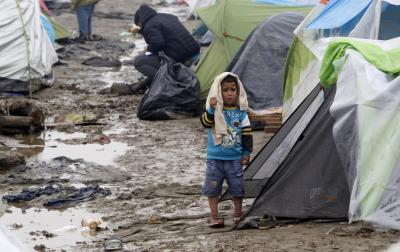
A story from the Macedonian border
 Thousands of refugees with hopes of crossing the Greek border live under tents in mud. The “mirage” is to reach Europe. Dolores Poletto is Croation. She works twice a week with Caritas Macedonia and lives in the focolare community in Skopje. She reports what she saw along the border. “I was at the refugee camp in Gevgelija, Macedonia with some colleagues from Caritas. It was an informal visit. On the other side of the border was a sea of people. We also crossed the border between Greece and Macedonia.” Closed Borders. The humanitarian crisis that refugees are enduring in Greece, Macedonia and Serbia is the result of the closing of border crossings along the Balkans migration route. On March 9, Slovenian authorities closed the border. Croatia has also announced that it will close its border and Serbia immediately announced the same. According to the most recent data – but the numbers are estimates – there are now some 14 thousand refugees at the Macedonian border. In Greece there are more than 34 thousand. Idomeni is like a funnel. The same thing is happening here that we have seen happening for months in Calais at the French border on the English Channel. The migrants arrive after having crossed through Greece and the Aegean on overloaded boats. “A multitude of people,” Dolores says. “They arrive in very poor condition . . . We’re on the border where before they crossed into Macedonia. People want to be as close as possible, so curtains have been put up behind the railway station.” Along with the mud, there is also the cold. “The daytime temperature is comfortable, rising as high as 18 degrees (C), but in the evening it drops to 2-3 degrees.” Living conditions in the camp deteriorate daily. Along with the cold, food is scarce and hygienic conditions are appalling. Many stand in line waiting for food,” Dolores says. “It’s hard to describe what their psychological state is like under such conditions. Many say that they’re from Syria. All of them would like to go to Germany, Austria . . . They have only one question for us: “When will the border open?” They’re prepared to do anything, so long as they reach their goal . . . ready even to die. “You know, I just heard news of 3 refugees who starved to death trying to cross illegally between Macedonia and Greece. This is so sad.” Caritas has been on the scene since the beginning, along with many other NGOs. “They’re waiting, hoping to cross the border,” Dolores explains. “That’s why they don’t want to move to more suitable camps. It’s difficult to help them.” The border police are here ensuring that no one crosses the border, in accordance with agreements made with Europe. When faced with this “impasse . . . you feel completely helpless.” Dolores has been deeply affected by this experience on the border. “We can stay with them on the Cross; I’m not able to forget those images. There are quite a few journalists there. I spoke with several of them and returned home to watch the news reports on TV. I said that if I had watched them without having visited that place, they would only have only been another series of daily news reports, but now after having touched it with my own hands, it feels more like a live wound on humanity’s body.” Source: SIR
Thousands of refugees with hopes of crossing the Greek border live under tents in mud. The “mirage” is to reach Europe. Dolores Poletto is Croation. She works twice a week with Caritas Macedonia and lives in the focolare community in Skopje. She reports what she saw along the border. “I was at the refugee camp in Gevgelija, Macedonia with some colleagues from Caritas. It was an informal visit. On the other side of the border was a sea of people. We also crossed the border between Greece and Macedonia.” Closed Borders. The humanitarian crisis that refugees are enduring in Greece, Macedonia and Serbia is the result of the closing of border crossings along the Balkans migration route. On March 9, Slovenian authorities closed the border. Croatia has also announced that it will close its border and Serbia immediately announced the same. According to the most recent data – but the numbers are estimates – there are now some 14 thousand refugees at the Macedonian border. In Greece there are more than 34 thousand. Idomeni is like a funnel. The same thing is happening here that we have seen happening for months in Calais at the French border on the English Channel. The migrants arrive after having crossed through Greece and the Aegean on overloaded boats. “A multitude of people,” Dolores says. “They arrive in very poor condition . . . We’re on the border where before they crossed into Macedonia. People want to be as close as possible, so curtains have been put up behind the railway station.” Along with the mud, there is also the cold. “The daytime temperature is comfortable, rising as high as 18 degrees (C), but in the evening it drops to 2-3 degrees.” Living conditions in the camp deteriorate daily. Along with the cold, food is scarce and hygienic conditions are appalling. Many stand in line waiting for food,” Dolores says. “It’s hard to describe what their psychological state is like under such conditions. Many say that they’re from Syria. All of them would like to go to Germany, Austria . . . They have only one question for us: “When will the border open?” They’re prepared to do anything, so long as they reach their goal . . . ready even to die. “You know, I just heard news of 3 refugees who starved to death trying to cross illegally between Macedonia and Greece. This is so sad.” Caritas has been on the scene since the beginning, along with many other NGOs. “They’re waiting, hoping to cross the border,” Dolores explains. “That’s why they don’t want to move to more suitable camps. It’s difficult to help them.” The border police are here ensuring that no one crosses the border, in accordance with agreements made with Europe. When faced with this “impasse . . . you feel completely helpless.” Dolores has been deeply affected by this experience on the border. “We can stay with them on the Cross; I’m not able to forget those images. There are quite a few journalists there. I spoke with several of them and returned home to watch the news reports on TV. I said that if I had watched them without having visited that place, they would only have only been another series of daily news reports, but now after having touched it with my own hands, it feels more like a live wound on humanity’s body.” Source: SIR
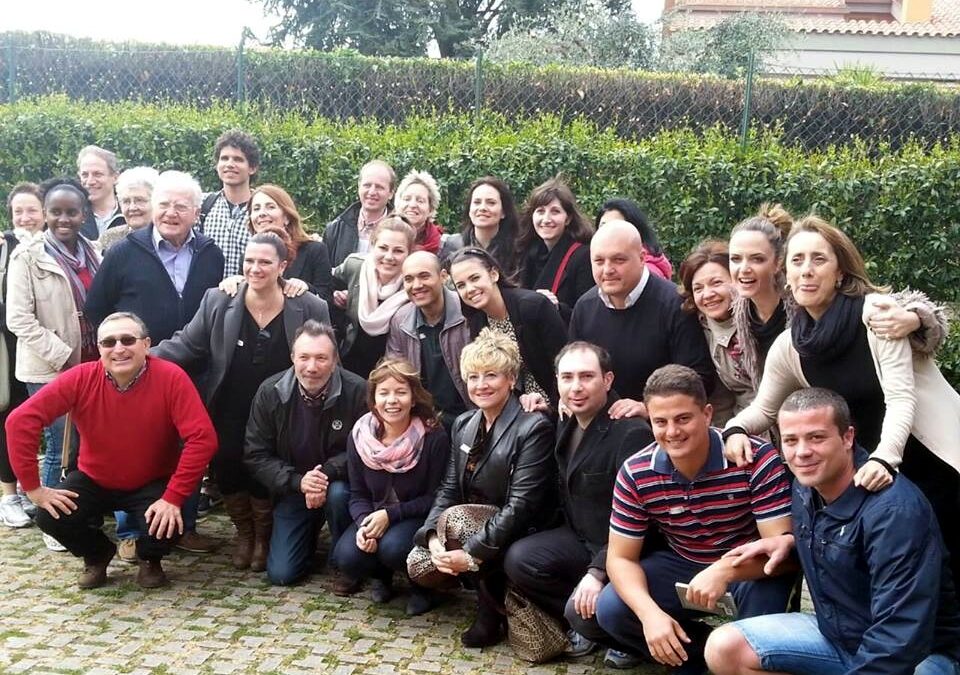
Tending to the homeless at the railway station in Rome
 “I started to give a hand, Annette, a German Focolarina recounts, “in December 2014. The cold had already set in and there was urgent need for blankets. In trying to find out more, a member of the RomAmoR ONLUS proposed: “More than blankets we need you to come and give us a hand.” The week after I was already at the Ostia station. It was a really moving experience. On approaching those people I discovered that oddly enough, they were the ones to welcome me! I realised that this is not an uncomfortable category of people to avoid, but persons who wish to relate with others, and are capable of imbuing human warmth. After a while also the volunteers came with a hot dinner and the anonymous, cold and bleak station, warmed up. ” Annette has changed since then. The first nights she couldn’t sleep thinking of Giovanni, Stefan, Mohamed who did not have a warm bed like hers. She started to review her wardrobe, to see if there was still something else she could share, despite the fact that in the Focolare community already tries to live only with the essentials. But above all, she continued going to the station every Monday. One evening, looking at the notebook that listed the requests of the homeless, she saw that a man needed a pair of shoes. Since there were none in the house she remembered Chiara Lubich’s experience during the war, when she asked Jesus present in the poor, for a pair of shoes. “So I did the same thing and in two weeks ten pairs of shoes arrived!”
“I started to give a hand, Annette, a German Focolarina recounts, “in December 2014. The cold had already set in and there was urgent need for blankets. In trying to find out more, a member of the RomAmoR ONLUS proposed: “More than blankets we need you to come and give us a hand.” The week after I was already at the Ostia station. It was a really moving experience. On approaching those people I discovered that oddly enough, they were the ones to welcome me! I realised that this is not an uncomfortable category of people to avoid, but persons who wish to relate with others, and are capable of imbuing human warmth. After a while also the volunteers came with a hot dinner and the anonymous, cold and bleak station, warmed up. ” Annette has changed since then. The first nights she couldn’t sleep thinking of Giovanni, Stefan, Mohamed who did not have a warm bed like hers. She started to review her wardrobe, to see if there was still something else she could share, despite the fact that in the Focolare community already tries to live only with the essentials. But above all, she continued going to the station every Monday. One evening, looking at the notebook that listed the requests of the homeless, she saw that a man needed a pair of shoes. Since there were none in the house she remembered Chiara Lubich’s experience during the war, when she asked Jesus present in the poor, for a pair of shoes. “So I did the same thing and in two weeks ten pairs of shoes arrived!”
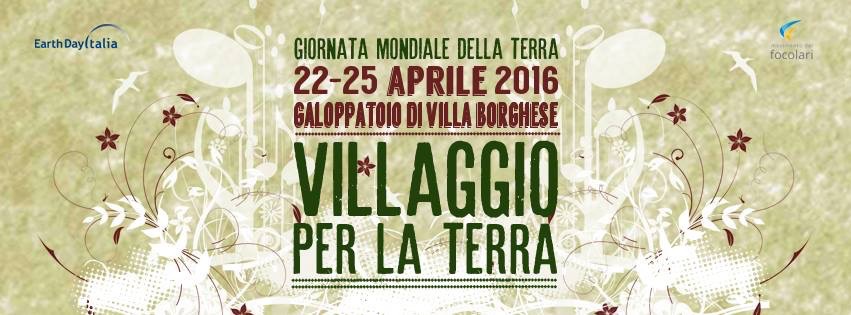
Rome: Earth Village—Living the City Together
 An event entitled, “Earth Village. Living the City Together. Rome in Mariapolis,” will take place in the heart of Italy’s capital in the parks and gardens of Villa Borghese. The event is sponsored by Earth Day Italia and the Focolare Movement of Rome. The celebration of the 46th edition of the international Earth Day will inaugurate the event, which this year assumes greater relevance as UN Secretary General Ban Ki-Moon has chosen April 22nd as the date on which the historic Paris Agreement on climate, COP21, officially opens for signing, with the participation of nations worldwide. In light of the Encyclical Laudato Si’, in which Pope Francis invites everyone to care for our common home, and in the context of the Jubilee of Mercy, “Earth Village – Rome in Mariapolis” aims to rediscover Rome’s unique vocation of universal brotherhood. The idea is to create a temporary village within the city, with the involvement of numerous initiatives which daily work to make the capital a better place in which to live, where each citizen or tourist, no matter their age, social class or culture, can experience their own irreplaceable contribution to the life of the city. The goal of the event is to create bridges of dialogue among diversities—center and periphery, young people and adults, Romans and citizens “in transit”— to demonstrate the innumerable social initiatives in favour of the human person present in Rome, because finding common ground amidst diversity is possible, and solidarity is a universal value. Living the City Together will unfold throughout four days of activities—workshops, laboratories, seminars, exchanges of good practice, artistic performances, debates, games, reflections or simply sharing of time and experiences—all geared towards increasing mutual respect, knowledge, and acceptance. For more information about the event: www.villaggioperlaterra.it
An event entitled, “Earth Village. Living the City Together. Rome in Mariapolis,” will take place in the heart of Italy’s capital in the parks and gardens of Villa Borghese. The event is sponsored by Earth Day Italia and the Focolare Movement of Rome. The celebration of the 46th edition of the international Earth Day will inaugurate the event, which this year assumes greater relevance as UN Secretary General Ban Ki-Moon has chosen April 22nd as the date on which the historic Paris Agreement on climate, COP21, officially opens for signing, with the participation of nations worldwide. In light of the Encyclical Laudato Si’, in which Pope Francis invites everyone to care for our common home, and in the context of the Jubilee of Mercy, “Earth Village – Rome in Mariapolis” aims to rediscover Rome’s unique vocation of universal brotherhood. The idea is to create a temporary village within the city, with the involvement of numerous initiatives which daily work to make the capital a better place in which to live, where each citizen or tourist, no matter their age, social class or culture, can experience their own irreplaceable contribution to the life of the city. The goal of the event is to create bridges of dialogue among diversities—center and periphery, young people and adults, Romans and citizens “in transit”— to demonstrate the innumerable social initiatives in favour of the human person present in Rome, because finding common ground amidst diversity is possible, and solidarity is a universal value. Living the City Together will unfold throughout four days of activities—workshops, laboratories, seminars, exchanges of good practice, artistic performances, debates, games, reflections or simply sharing of time and experiences—all geared towards increasing mutual respect, knowledge, and acceptance. For more information about the event: www.villaggioperlaterra.it
Brussels: “A fraternity choir” among Muslims and Christians
“This soiree should have been held here three months ago. Instead, the folly of men changed our direction.” These were the opening words of Noufissa Boulif, Muslim, organiser of the event: after the attack in Paris on 13 November 2015, Brussels lost its identity. This is where some of the terrorists involved were based, and for security reasons the concert had been cancelled and moved to 20 February 2016. The encounter between music, and Muslim and Christian cultures, became a platform for the encounter between Muslims, Christians and also agnostics who believe in dialogue and who, knowing they were welcome, were able to receive the others and discover their hidden qualities and values. But wasn’t it highly risky, for an Islamic-Christian event right in the heart of Brussels? We asked Noufissa.”If the concert was able to go through, it was thanks to the incredible solidarity between Muslims and Christians, and certainly due to divine protection. Luckily the entire programme came about without accidents or tensions.” The concert was dedicated to all the children who suffer, giving the soiree the theme «of children and the youth, but also under the auspices of diversity which characterises our country.» For more than 20 years, Noufissa has known and lived Chiara Lubich’s spirituality of unity. She wants to testify before all that fraternity between Christians and Muslims, often antagonists, is possible. In this perspective she organized the first Islam-Christina concert in October 2014. https://vimeo.com/114676421 “I have been working on it for a long time”, Noufissa recounted. “Together with my husband and children, we are involved in interreligious dialogue, which has by now become part of my life. For me, as a Muslim wearing a veil, living in harmony with others is not to be taken for granted, because I feel that people look at you with curiosity or evident signs of diffidence. But every time, I try to approach them without prejudice, and with a smile. The Golden Rule which all great religions advocate, helps me a lot. “None of you really believes if you do not wish for your neighbor what you wish for yourself” (Mohammed, Hadith 13 de al-Nawawi). The islamophobic reactions and influence of the mass media are not always constructive or comprehensible, but the essential thing is to overcome them. The prophet, Mohammed, in a hadith stresses that “A smile is an alm” (meaning, a free gift for the other).” Going back to 20 February this year. Various choirs appeared on stage: children, youth, Christians and Muslims, blacks and whites. Speaking Neerlandish or French – also this is one of Belgium’s challenges, the participants were Rissala, the small choir singers, the voices of the dei 4 Horizons, and the ‘TOUCH,’ a group of disabled Muslim girls. Towards the end, also the rappers – Mc ‘Youns, and Antis et Mamz-I – with their incisive words, invited everyone not to give up, but to continue believing in life. The “light of the heart” association was formed after 25 years of Noufissa’s interreligious dialogues, and 10 years of the service of one of her Muslim friends involved in palliative treatments: together they visit the sick at their homes, trying to meet the thirst for relationships in their particular phases of life. With this association, after a year of hard work to prepare “Fraternity choir,” they are already working on a next Islam-Christian event to be held on 23 April entitled, “Together with Mary,” in the Saint Michel Cathedral in Brussels.
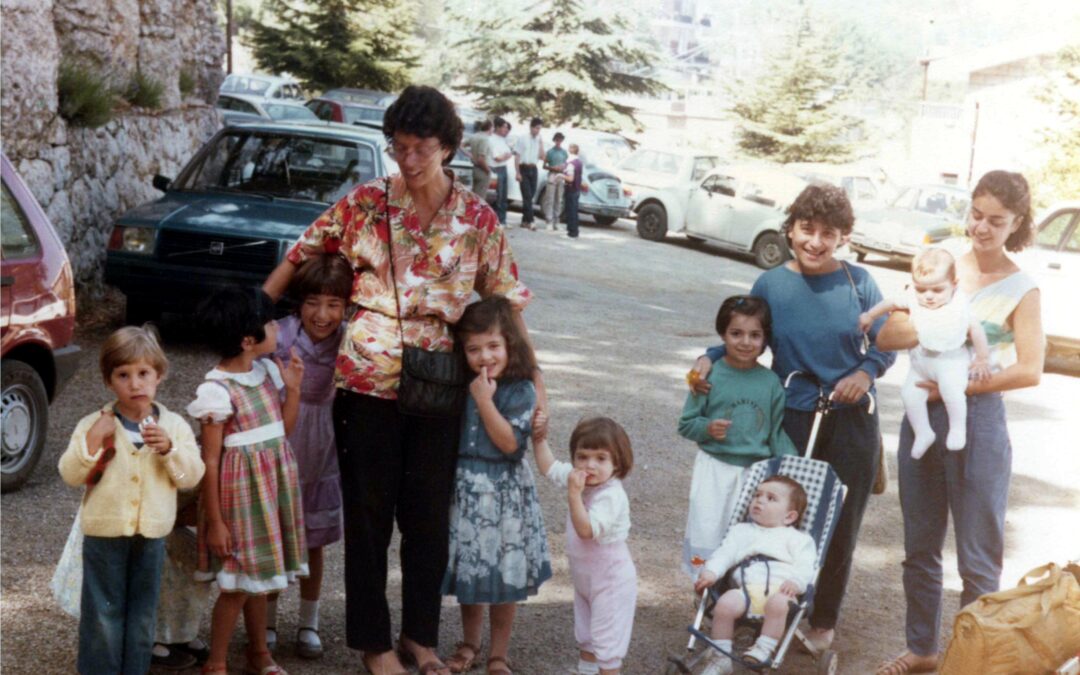
Lebanon. Chiara got us to live the Gospel
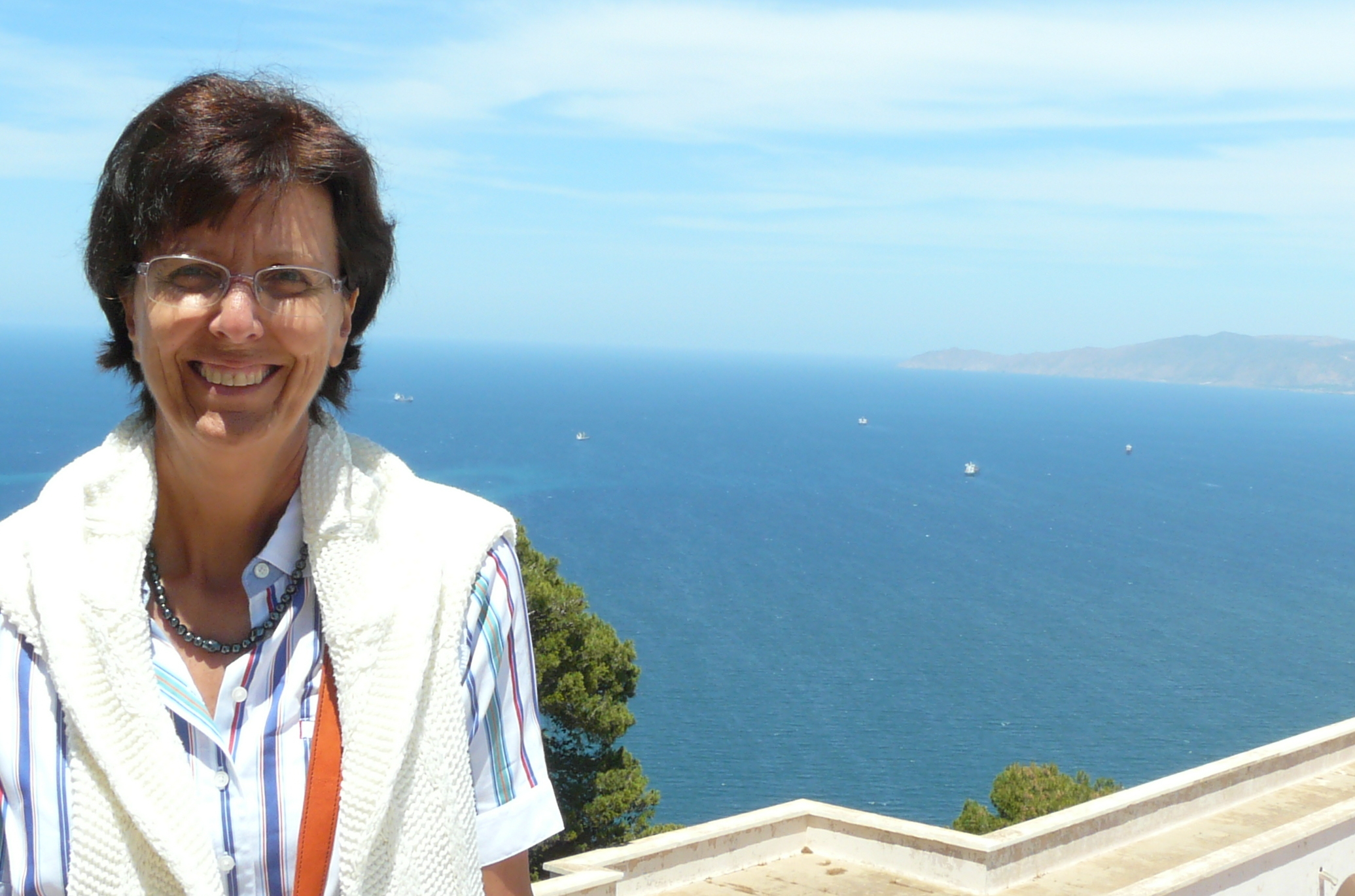 “I was 17 years old,” says Lebanese focolarina Nadine, “when the war broke out in Lebanon: schools closed, roads mined, bombings day and night, snipers, the dead and wounded. . . In the midst of the tragedies that had begun to enrage our country, me and some other young people that had been fascinated by the spirituality of Chiara Lubich heard those words from the early days of the Focolare echoing again: “Everything crumbles, only God remains.” Like Chiara and the first focolarine, we could have been dead from one moment to the next, and like them we wanted to present ourselves before God ‘having loved to the end’. We had learned that loving means being attentive to the needs of the people around us. It wasn’t so easy under such circumstances, but when we were able to do it our hearts were cleared of fear and we hardly noticed the storm of hatred and violence that surrounded us. Therefore we were able to help many people carry on. We often wrote to Chiara, to tell her how we were living and every time she wrote back personally” “I still remember the acts of violence and kidnappings when the religious discrimination began. My own father was kidnapped twice. Chiara spoke to us of the first Christians and their courage in giving witness to the faith even in the face of Roman persecution. One of our friends, Fouad, was able to attend a Gen convention Italy. During his return trip to Lebanon, while he was travelling on the road from the airport, Fouad was stopped by some armed men. It was a Muslim region and his documents showed that he was a Maronite Christian. “Yes, I’m Christian,” Fouad admitted. “I’m on my way home.” “You’re coming with us,” they told him. A long interrogation followed and the final sentence: “Do you understand what awaits you?” The boy understood that it was all over for him. One of the militiamen took him and led him towards a bridge where many other Christians had been killed. While they walked, he tried to calm himself and wondered what God might want of him in that moment. ‘Love this neighbour,’ came to his mind. So he tried to make that militiaman feel all his love: ‘It must be hard,’ Fouad said to him, ‘it must be hard to do this job, to make war.’ When they came within eyeshot of the bridge the militiaman stopped, looked at him and exclaimed: ‘Let’s go back’. I recall how moved Chiara was by the witness of this young man, so moved that she wanted this episode to be shared for the edification of the whole Movement.”
“I was 17 years old,” says Lebanese focolarina Nadine, “when the war broke out in Lebanon: schools closed, roads mined, bombings day and night, snipers, the dead and wounded. . . In the midst of the tragedies that had begun to enrage our country, me and some other young people that had been fascinated by the spirituality of Chiara Lubich heard those words from the early days of the Focolare echoing again: “Everything crumbles, only God remains.” Like Chiara and the first focolarine, we could have been dead from one moment to the next, and like them we wanted to present ourselves before God ‘having loved to the end’. We had learned that loving means being attentive to the needs of the people around us. It wasn’t so easy under such circumstances, but when we were able to do it our hearts were cleared of fear and we hardly noticed the storm of hatred and violence that surrounded us. Therefore we were able to help many people carry on. We often wrote to Chiara, to tell her how we were living and every time she wrote back personally” “I still remember the acts of violence and kidnappings when the religious discrimination began. My own father was kidnapped twice. Chiara spoke to us of the first Christians and their courage in giving witness to the faith even in the face of Roman persecution. One of our friends, Fouad, was able to attend a Gen convention Italy. During his return trip to Lebanon, while he was travelling on the road from the airport, Fouad was stopped by some armed men. It was a Muslim region and his documents showed that he was a Maronite Christian. “Yes, I’m Christian,” Fouad admitted. “I’m on my way home.” “You’re coming with us,” they told him. A long interrogation followed and the final sentence: “Do you understand what awaits you?” The boy understood that it was all over for him. One of the militiamen took him and led him towards a bridge where many other Christians had been killed. While they walked, he tried to calm himself and wondered what God might want of him in that moment. ‘Love this neighbour,’ came to his mind. So he tried to make that militiaman feel all his love: ‘It must be hard,’ Fouad said to him, ‘it must be hard to do this job, to make war.’ When they came within eyeshot of the bridge the militiaman stopped, looked at him and exclaimed: ‘Let’s go back’. I recall how moved Chiara was by the witness of this young man, so moved that she wanted this episode to be shared for the edification of the whole Movement.” 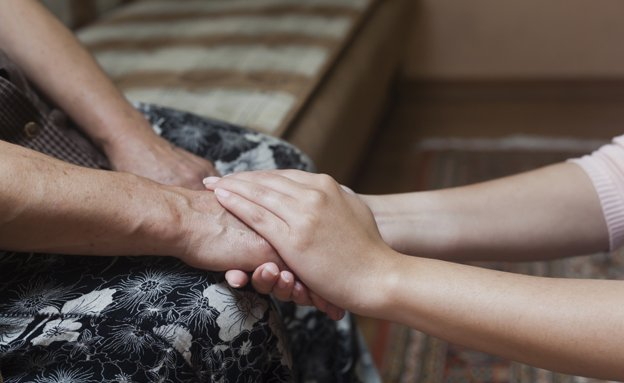 “At every ceasefire we’d gather together to visit the focolare. . . Our parents were fearful for us, but we couldn’t stop ourselves. Forging unity with one another was the life force that sent us forth to love everyone. It was precisely during those years of war that many of us felt the call to consecrate our lives to God. Chiara supported us with her example, with her words. With love, she kept track of the families that were being sorely tried by the restricitons and tiredness. . . Several had lost their jobs, their houses. Others had been living in air-raid shelters for years and wanted to leave the country so that their children could have a future, several of whom were wounded. . . For each one of these families, Chiara opened the homes of the Movement to provide them a place to go and recover or to settle down permanently. She also launched a fundraising campaign to cover the costs of the journey. Since the airport of Beirut had been closed for years, she sent us focolarine to open a focolare in Cyprus – the only way out by sea – to assist those who were leaving the country.”
“At every ceasefire we’d gather together to visit the focolare. . . Our parents were fearful for us, but we couldn’t stop ourselves. Forging unity with one another was the life force that sent us forth to love everyone. It was precisely during those years of war that many of us felt the call to consecrate our lives to God. Chiara supported us with her example, with her words. With love, she kept track of the families that were being sorely tried by the restricitons and tiredness. . . Several had lost their jobs, their houses. Others had been living in air-raid shelters for years and wanted to leave the country so that their children could have a future, several of whom were wounded. . . For each one of these families, Chiara opened the homes of the Movement to provide them a place to go and recover or to settle down permanently. She also launched a fundraising campaign to cover the costs of the journey. Since the airport of Beirut had been closed for years, she sent us focolarine to open a focolare in Cyprus – the only way out by sea – to assist those who were leaving the country.” 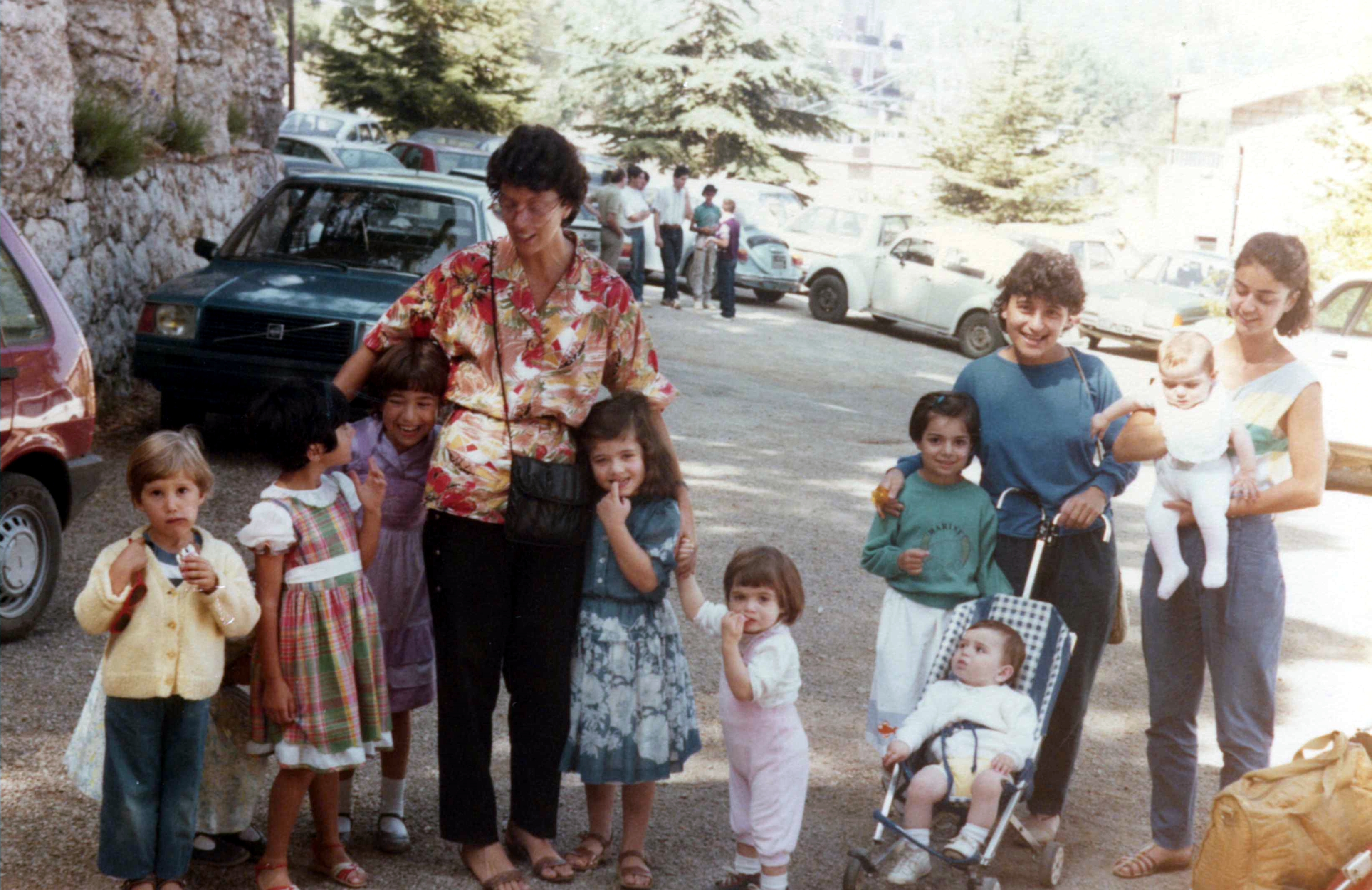 “Chiara’s concrete love was always accompanied by her powerful spiritual encouragements. After years of living life to the extreme we often felt weak, tired and helpless. So Chiara reminded us of that ‘little cloud’ a new sign with which God had made himself present to the Jewish people in the desert when they were suffering through an absurd war, and she suggested that we go ahead in living the Word in a totally new way. And from that ‘little cloud’,” she went on to tell us, “not only will you draw many others into living the Gospel, but you’ll draw out the strength you need to continue loving. . .all the way to the end.”
“Chiara’s concrete love was always accompanied by her powerful spiritual encouragements. After years of living life to the extreme we often felt weak, tired and helpless. So Chiara reminded us of that ‘little cloud’ a new sign with which God had made himself present to the Jewish people in the desert when they were suffering through an absurd war, and she suggested that we go ahead in living the Word in a totally new way. And from that ‘little cloud’,” she went on to tell us, “not only will you draw many others into living the Gospel, but you’ll draw out the strength you need to continue loving. . .all the way to the end.”
Lombardy
Lazio
Lazio
Sicily
Sicily
Lombardy
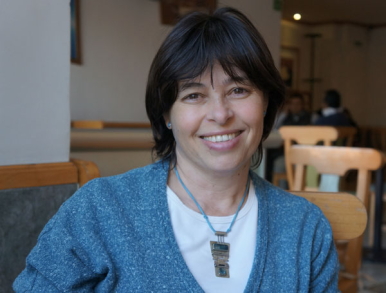
Colombia: people capable of peace

Cristina Montoya
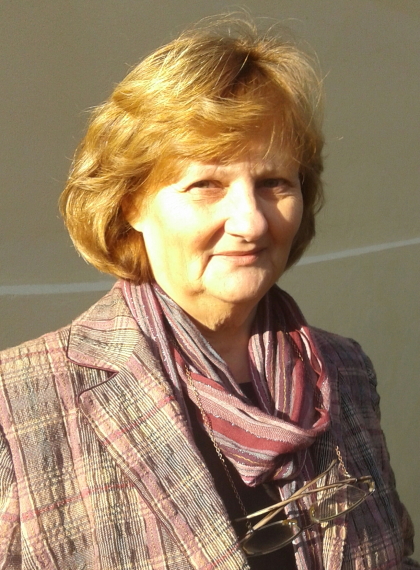
The Balkan War: Chiara was at our side
With the fall of the Berlin Wall everything seemed resolved. No one imagined that the walls of mistrust, hatred and prejudice stood on in the former Yugoslavia, impeding what for so many years the Focolare communities had been trying to build: unity among all, differences of differences ethnicity, language and religion. They saw the diversity as enrichment. The announcement of the conflict was a real shock to them, but also an incentive to continue believing that despite the absurdity of fratricidal war, God’s love had not diminshed.  Minka Fabjan, expert in administration and active in the field of the Economy of Communion, reports on behalf of the community in Zagabria: “It was August 1991 and, amidst a thousand hardships, a group of us went to Katowice, Poland, because we learned that Chiara Lubich was going to be there. She invited us to testify to the Gospel in every possible way, to ‘shout it from the rooftops’. There were already the first rumblings of war in Croatia: closed schools, blocked highways . . . Amidst winds of war, it was striking to hear our messages of peace which, at the urging of Chiara, we sent to various public broadcasters. Nevertheless, her messages became more intense: “Demonstrate with your life that love conquers all.” She had been the one to suggest that we collect signatures for peace: “in schools, in front of churches, on public squares, in Slovenia, Serbia and everywhere. Because of the air raids, in Croatia we even gathered signatures in the air raid shelters. Within a few days we sent them off to several Heads of State, 65,000 signatures.” “Meanwhile our houses filled up with refugees: they were relatives and friends, but also strangers. Therefore, Chiara invited the Movement around the world to become involved in sending help. The first truckload arrived in autumn. It contained foodstuffs and basic necessities, and that continued for years. Red Cross centres, conference halls, houses in the middle of construction and cellars were transformed into storerooms, so that the goods could be shared with neighbours and refugees both Serbian, Muslim and Christian. We prepared up to 300 packages a day. With this humanitarian aid we managed to provide relgular help to 7000 people.” “We were already feeling tired when, in 1993, Pope John Paul II asked us to open our hearts and homes to the Bosnian women who were arriving from Zagabria, following the unspeakable cruelties suffered in the camps. We felt like Chiara was beside us and so we all got to work. During the 1993 Familyfest, we launched a fundraising campaign that allowed us to give homes to 50 refugee families and to help more than 150 women. Through adoption at a distance, thousands of children were provided for. Several rape victims found the heroic strength to carry the pregnancy to term. In Serbia 700 men – including members of the Movement – were drafted into the federal army. When Chiara heard of it she invited all of us to pray for them, that they would find the courage to oppose violence and not fire their weapons. And those prayers were quickly answered because all of our men were given civil service duties.” The war had also involved Kosovo and Belgrade. Nevertheless, Chiara wanted to visit an area near Croatia. When Večernji list journalist, Ottone Novosel, asked her if she had any words for the people, Chiara didn’t hesitate: “Show that the miracle of unity is possible even among different ways of thinking, different ethnic groups, and different religions. This war could provoke another reaction, a great flowing of love that could become a model for many other populations. God is the one who guides history ” (April 12, 1999). Her words continue to be timely as we consider the many conflicts that still plague our planet and dishonour our common humanity.
Minka Fabjan, expert in administration and active in the field of the Economy of Communion, reports on behalf of the community in Zagabria: “It was August 1991 and, amidst a thousand hardships, a group of us went to Katowice, Poland, because we learned that Chiara Lubich was going to be there. She invited us to testify to the Gospel in every possible way, to ‘shout it from the rooftops’. There were already the first rumblings of war in Croatia: closed schools, blocked highways . . . Amidst winds of war, it was striking to hear our messages of peace which, at the urging of Chiara, we sent to various public broadcasters. Nevertheless, her messages became more intense: “Demonstrate with your life that love conquers all.” She had been the one to suggest that we collect signatures for peace: “in schools, in front of churches, on public squares, in Slovenia, Serbia and everywhere. Because of the air raids, in Croatia we even gathered signatures in the air raid shelters. Within a few days we sent them off to several Heads of State, 65,000 signatures.” “Meanwhile our houses filled up with refugees: they were relatives and friends, but also strangers. Therefore, Chiara invited the Movement around the world to become involved in sending help. The first truckload arrived in autumn. It contained foodstuffs and basic necessities, and that continued for years. Red Cross centres, conference halls, houses in the middle of construction and cellars were transformed into storerooms, so that the goods could be shared with neighbours and refugees both Serbian, Muslim and Christian. We prepared up to 300 packages a day. With this humanitarian aid we managed to provide relgular help to 7000 people.” “We were already feeling tired when, in 1993, Pope John Paul II asked us to open our hearts and homes to the Bosnian women who were arriving from Zagabria, following the unspeakable cruelties suffered in the camps. We felt like Chiara was beside us and so we all got to work. During the 1993 Familyfest, we launched a fundraising campaign that allowed us to give homes to 50 refugee families and to help more than 150 women. Through adoption at a distance, thousands of children were provided for. Several rape victims found the heroic strength to carry the pregnancy to term. In Serbia 700 men – including members of the Movement – were drafted into the federal army. When Chiara heard of it she invited all of us to pray for them, that they would find the courage to oppose violence and not fire their weapons. And those prayers were quickly answered because all of our men were given civil service duties.” The war had also involved Kosovo and Belgrade. Nevertheless, Chiara wanted to visit an area near Croatia. When Večernji list journalist, Ottone Novosel, asked her if she had any words for the people, Chiara didn’t hesitate: “Show that the miracle of unity is possible even among different ways of thinking, different ethnic groups, and different religions. This war could provoke another reaction, a great flowing of love that could become a model for many other populations. God is the one who guides history ” (April 12, 1999). Her words continue to be timely as we consider the many conflicts that still plague our planet and dishonour our common humanity.
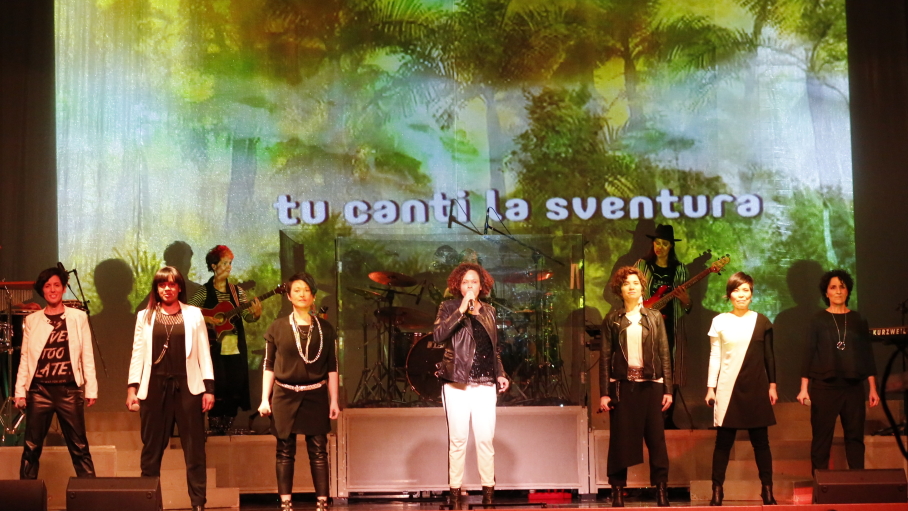
Voices Joining For Peace
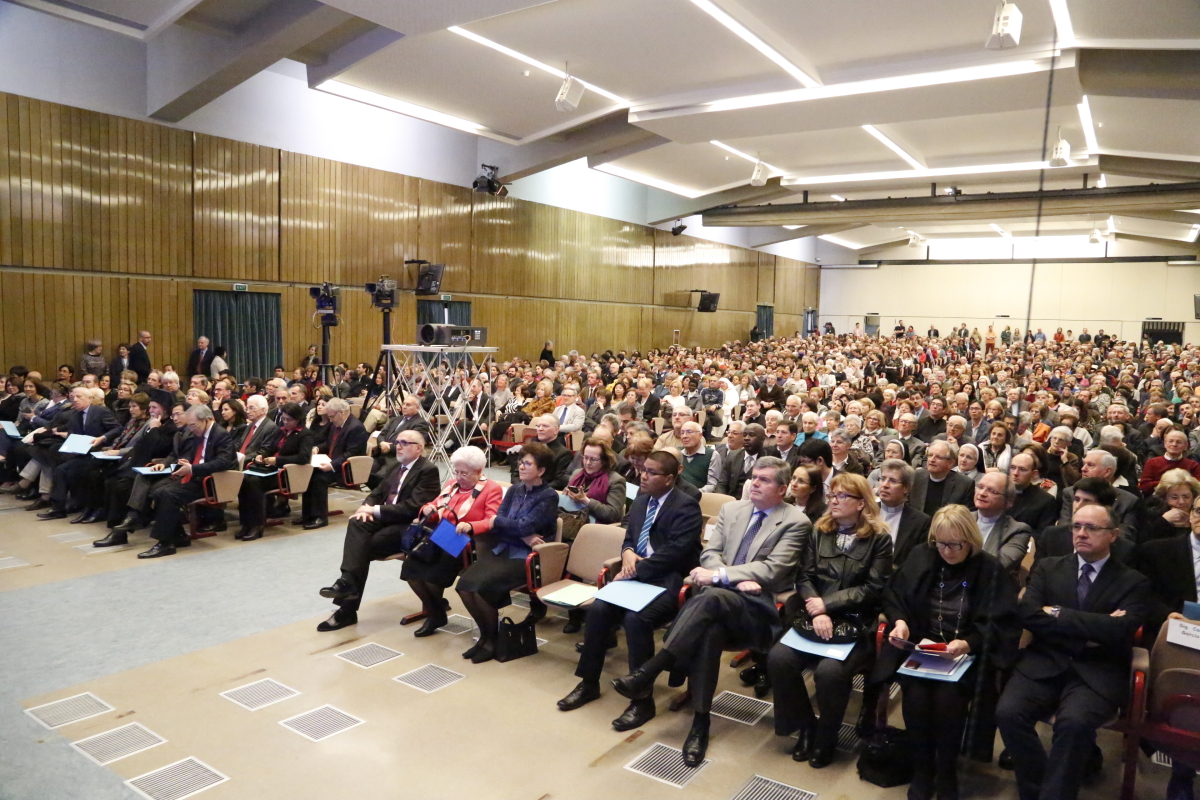 The spirituality of unity born of Chiara Lubich holds a strong relevance for peace. This was the main message of an event at Castel Gandolfo, Italy, on March 12, 2016 at which people came together to reconsider the heritage of Chiara Lubich in the field of peace building. In attendance were ambassadors and representatives of the diplomatic corps to the Holy See and to the Italian State from 20 countries: Morocco, Libya, Benin, Gabon Turkey, Taiwan, Argentina, Venezuela, Cuba, Uruguay, Paraguay, USA, Guatemala, and several European nations like Ukraine, Lithuania, Albania, Slovenia, Portugal and Malta.
The spirituality of unity born of Chiara Lubich holds a strong relevance for peace. This was the main message of an event at Castel Gandolfo, Italy, on March 12, 2016 at which people came together to reconsider the heritage of Chiara Lubich in the field of peace building. In attendance were ambassadors and representatives of the diplomatic corps to the Holy See and to the Italian State from 20 countries: Morocco, Libya, Benin, Gabon Turkey, Taiwan, Argentina, Venezuela, Cuba, Uruguay, Paraguay, USA, Guatemala, and several European nations like Ukraine, Lithuania, Albania, Slovenia, Portugal and Malta.  Yet, the current picture which imposes itself on our gaze offers images of a “a peace that is violated and often derided” leading us to believe that “the generations of the Third Millennium will never have an experience of life together in peace.” These were the words of Focolare president, Maria Voce in her welcoming remarks. How can we retie the broken thread of human relationships among peoples and States? “At the UNESCO headquarters, Chiara Lubich had presented a method of Peace Education,” Maria Voce recalled. It was the spirituality of unity, which lays the foundations for a culture of dialogue. This was demonstrated by 4 experiences: the simplicity of the Cube of Peace which became the basis for the development of Living Peace, a project in Cairo schools that has reached 300 schools in 110 countries involving an additional 1000 children and teenagers; dialogue between Christians and Muslims in Italy against the backdrop of tension that spreads across the continent; the “miraculous” story of Fontem, Cameroon, in which Chiara Lubich foresaw the future unity amongst the peoples foreshadowed in a pact that was sealed between the chiefs of the two tribes; and then her grand dream of influencing society through culture and thought, which has led to the founding of the Sophia University Institute, Loppiano, Italy.
Yet, the current picture which imposes itself on our gaze offers images of a “a peace that is violated and often derided” leading us to believe that “the generations of the Third Millennium will never have an experience of life together in peace.” These were the words of Focolare president, Maria Voce in her welcoming remarks. How can we retie the broken thread of human relationships among peoples and States? “At the UNESCO headquarters, Chiara Lubich had presented a method of Peace Education,” Maria Voce recalled. It was the spirituality of unity, which lays the foundations for a culture of dialogue. This was demonstrated by 4 experiences: the simplicity of the Cube of Peace which became the basis for the development of Living Peace, a project in Cairo schools that has reached 300 schools in 110 countries involving an additional 1000 children and teenagers; dialogue between Christians and Muslims in Italy against the backdrop of tension that spreads across the continent; the “miraculous” story of Fontem, Cameroon, in which Chiara Lubich foresaw the future unity amongst the peoples foreshadowed in a pact that was sealed between the chiefs of the two tribes; and then her grand dream of influencing society through culture and thought, which has led to the founding of the Sophia University Institute, Loppiano, Italy.  Gen Verde also spoke from the stage of the Mariapolis Centre in Castel Gandolfo. Their songs from the new On the Other Side Show sing the same stories: the sacrifice of the monks in Tibhirine, Algeria, the lullaby for the nameless child who drowned during one of many voyages of hope, Salvadoran bishop Oscar Romero’s voice for truth, now Blessed, murdered at the hand of a criminal, the cry of the Amazon forest that impoverishes us all. Gen Verde works to build peace in its many workshops for thousands of young people. Those young people choose to be the first sprouts of a new people wherever they find themselves, the sprouts of a more supportive world for the smallest and poorest. This is what Chiara had said at UNESCO when she spoke of a “united world” and she also told how to do it: having courage to suffer, accepting the suffering and fatigue that it requires. “If more people accepted suffering out of love, the suffering demanded by love,” Chiara said, “that would be the most powerful arm for giving back humanity its true dignity: not that of a collection of peoples, one next to the other, often at war – but one people.”
Gen Verde also spoke from the stage of the Mariapolis Centre in Castel Gandolfo. Their songs from the new On the Other Side Show sing the same stories: the sacrifice of the monks in Tibhirine, Algeria, the lullaby for the nameless child who drowned during one of many voyages of hope, Salvadoran bishop Oscar Romero’s voice for truth, now Blessed, murdered at the hand of a criminal, the cry of the Amazon forest that impoverishes us all. Gen Verde works to build peace in its many workshops for thousands of young people. Those young people choose to be the first sprouts of a new people wherever they find themselves, the sprouts of a more supportive world for the smallest and poorest. This is what Chiara had said at UNESCO when she spoke of a “united world” and she also told how to do it: having courage to suffer, accepting the suffering and fatigue that it requires. “If more people accepted suffering out of love, the suffering demanded by love,” Chiara said, “that would be the most powerful arm for giving back humanity its true dignity: not that of a collection of peoples, one next to the other, often at war – but one people.”
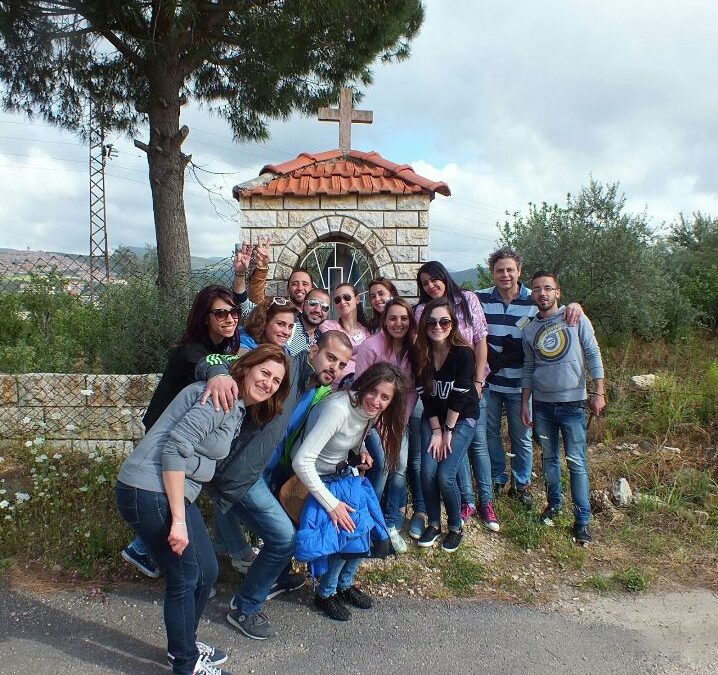
Syria. God overcomes Evil
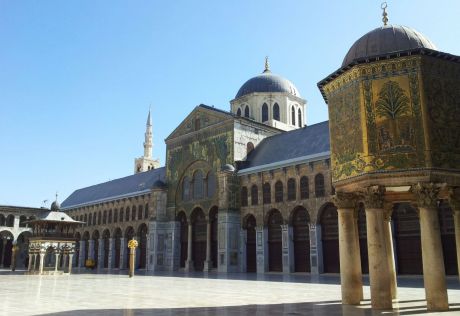 Aleppo, March 8, 2016. I woke up at four in the morning to the sound of bombs and wasn’t able to go back to sleep. I tried not to believe my ears. No, it can’t be true, Lord! More bombings! Just as we were beginning to hope things would get better, that the electricity had returned after 5 months and the water after 45 days! Why? This ceasefire was supposed to last and become permanent! My pleadings rose from the depths of my soul to the Lord of History, asking that this truce which was announced a week ago for all Syria would become permanent. But the sound of fighting on the frontlines that divide the city of Aleppo in two only increased, with the sound of loud explosions that are easily heard at night. While waiting for the sun to rise and for calm to return, as I continued praying I thought: “Of course, we all want Peace, but do we really believe or think that it is achieved at such a high price? There are people who think that war is the path to follow! They’re prepared to sacrifice not only their own lives, but also those of others because they believe this. And there are powers that make a profit on everything that’s happening, so they don’t want the war to end and; indeed, they continue to pour gas on the fire.
Aleppo, March 8, 2016. I woke up at four in the morning to the sound of bombs and wasn’t able to go back to sleep. I tried not to believe my ears. No, it can’t be true, Lord! More bombings! Just as we were beginning to hope things would get better, that the electricity had returned after 5 months and the water after 45 days! Why? This ceasefire was supposed to last and become permanent! My pleadings rose from the depths of my soul to the Lord of History, asking that this truce which was announced a week ago for all Syria would become permanent. But the sound of fighting on the frontlines that divide the city of Aleppo in two only increased, with the sound of loud explosions that are easily heard at night. While waiting for the sun to rise and for calm to return, as I continued praying I thought: “Of course, we all want Peace, but do we really believe or think that it is achieved at such a high price? There are people who think that war is the path to follow! They’re prepared to sacrifice not only their own lives, but also those of others because they believe this. And there are powers that make a profit on everything that’s happening, so they don’t want the war to end and; indeed, they continue to pour gas on the fire. 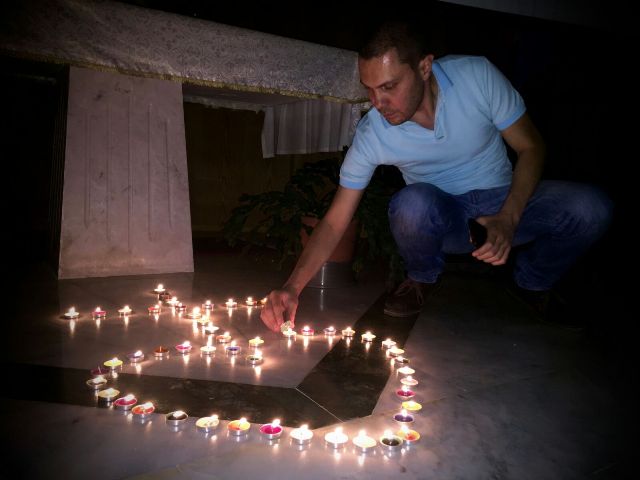 And we, the ones who believe in great ideals, in living peaceful and civil lives with respect for other cultures – do we truly believe it? And what price are we ready to pay? Frankly, the war in Syria is not a small matter. Who would have the courage to destroy a country that 6 years ago was growing with life and hope, where Muslims and Christians of different confessions and many other ethnic groups lived at peace with each other? Surely these destroyers are not single individuals. An answer by Chiara Lubich to some of our Muslim friends in 2002 came to mind. They had asked her about the hope that love and peace would win out over the war. She answered by citing the September 11th attacks: “Terrorism is a fruit of Evil (with a capital E) against which human strength will not suffice [. . .]. The forces of Good (with a capital G” are required [. . .] the forces of God’s Love. And so, what do we have to do? Prayer! We have to unite . . . all of us who are for universal brotherhood . . . unite to pray that terrorism will be overcome. And we can do it, because Jesus says that wherever two or more are gathered in His name, in His love, whatever they ask, will be done for them. And we are far more than two or three [. . .] Let us leave here with one idea: We are together, let us unite to pray. But that’s not enough. The main cause of terrorism is this indifference in front of a world that is half rich and half poor. They would like – and they’re not wrong in this – for there to be some communion of goods [. . .] some solidarity. We have to change hearts. Only if we carry out the work of universal brotherhood will we be able to convince ourselves and others that we should also put together our goods. We’ll begin amongst ourselves, but then the ideas begin to rise all the way to the Heads of State. We need to have this certainty: that with God, impossible things become possible; that with God – beginning with the brotherhood amongst us – we’ll reach the great goal: to make humanity one family [. . .]. This is our objective.”
And we, the ones who believe in great ideals, in living peaceful and civil lives with respect for other cultures – do we truly believe it? And what price are we ready to pay? Frankly, the war in Syria is not a small matter. Who would have the courage to destroy a country that 6 years ago was growing with life and hope, where Muslims and Christians of different confessions and many other ethnic groups lived at peace with each other? Surely these destroyers are not single individuals. An answer by Chiara Lubich to some of our Muslim friends in 2002 came to mind. They had asked her about the hope that love and peace would win out over the war. She answered by citing the September 11th attacks: “Terrorism is a fruit of Evil (with a capital E) against which human strength will not suffice [. . .]. The forces of Good (with a capital G” are required [. . .] the forces of God’s Love. And so, what do we have to do? Prayer! We have to unite . . . all of us who are for universal brotherhood . . . unite to pray that terrorism will be overcome. And we can do it, because Jesus says that wherever two or more are gathered in His name, in His love, whatever they ask, will be done for them. And we are far more than two or three [. . .] Let us leave here with one idea: We are together, let us unite to pray. But that’s not enough. The main cause of terrorism is this indifference in front of a world that is half rich and half poor. They would like – and they’re not wrong in this – for there to be some communion of goods [. . .] some solidarity. We have to change hearts. Only if we carry out the work of universal brotherhood will we be able to convince ourselves and others that we should also put together our goods. We’ll begin amongst ourselves, but then the ideas begin to rise all the way to the Heads of State. We need to have this certainty: that with God, impossible things become possible; that with God – beginning with the brotherhood amongst us – we’ll reach the great goal: to make humanity one family [. . .]. This is our objective.” 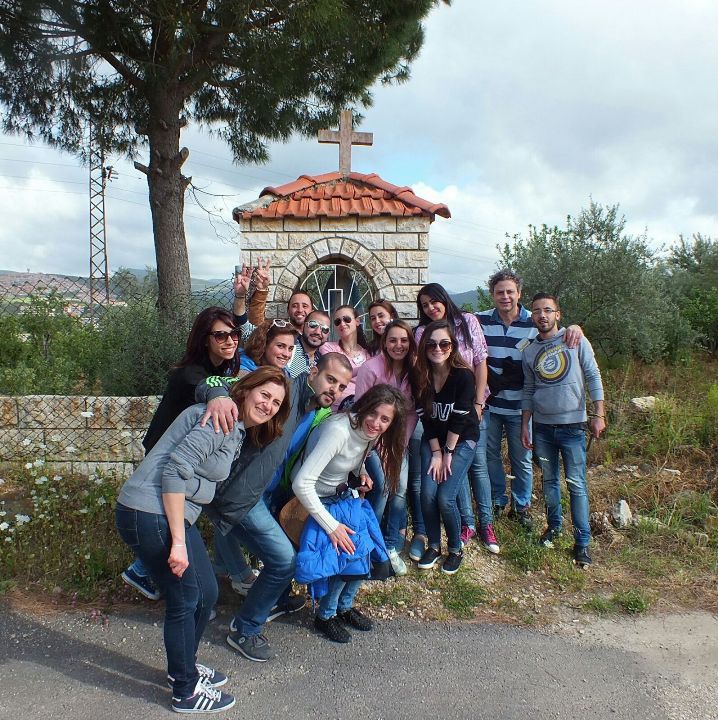 We shouldn’t delude ourselves. We shouldn’t wait for others to do something. We’re also responsible! If we truly believe that God can overcome Evil and that He listens to us, then we have to pray to the Father without ceasing, with the faith that He will help us; otherwise, we commit a sin of omission. Everybody remembers the time the bombings stopped over Syria, thanks to the influence of the prayer and fasting of the Pope and many others. And God heard us! And so He can hear us again. Let’s do it then – and always – until the reign of Peace comes not only in Syria, but in the whole world. See: Chiara Lubich, Castel Gandolfo, Italy, November 3, 2002, questions and answers with Muslim friends of the Focolare.
We shouldn’t delude ourselves. We shouldn’t wait for others to do something. We’re also responsible! If we truly believe that God can overcome Evil and that He listens to us, then we have to pray to the Father without ceasing, with the faith that He will help us; otherwise, we commit a sin of omission. Everybody remembers the time the bombings stopped over Syria, thanks to the influence of the prayer and fasting of the Pope and many others. And God heard us! And so He can hear us again. Let’s do it then – and always – until the reign of Peace comes not only in Syria, but in the whole world. See: Chiara Lubich, Castel Gandolfo, Italy, November 3, 2002, questions and answers with Muslim friends of the Focolare.
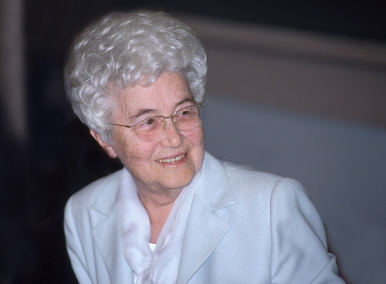
Chiara Lubich and her message of peace
 “A woman of dauntless faith, a meek messenger of hope and peace” – this is how Pope Benedict XVI described Chiara Lubich in his message at her funeral eight years ago. In January 2015, on the occasion of the official opening of the cause of her beatification, Pope Francis urged “to make known to the people of God the life and work of one who welcomed Our Lord’s invitation and enkindled a new light for the church on the journey towards unity”. Hundreds of initiatives held around the world remember her message of peace. The Focolare Community in Europe is promoting more than 200 events. “We live for Unity” is the title of the meeting in Minsk, Belarus. Meetings will held in the six cities where Focolare Communities are present in Sweden. In Munich, there will be the first “Chiaratag”. Journalists and qualified members of the Justice and Peace Commission will take part in the round table conference “Chiara and peace” held in Lisbon, Portugal. In Seville, Spain the theme will be “Chiara Lubich, educator for peace”. Allal Baschar, Imam of the Mosque of King Abdul Aziz al Saud of Marbella and Fr. Manuel Palma Ramírez, deputy director of the Seville Theological Studies Centre will be two speakers during this meeting. “A message of dialogue and peace” is the title of the meeting organized by the Focolare community in Sarajevo, Bosnia and Herzegovina. This Community, composed of Catholics, Orthodox, Muslims and people with no religious belief, will share the result of years of commitment lived side by side by its various members. The public is invited to attend, and Archbishop Cardinal Vinko Puljić is expected to participate. The firm belief in this message is passed through an ongoing dialogue, even in other Balkan countries, and it leads to mutual recognition of traditions and nationalities. Pearls, an educational programme carried out in Skopje, Macedonia shows this. It consists of an early childhood programme for children of various ethnic groups. It is linked to the university and also involves the families. Based on Lubich’s ideal of universal brotherhood, it was initiated by Professor Aziz Shehu, a Muslim who was then lecturer and pro-dean at the Faculty of Pedagogy. In early March, 110 young Croats, Serbs, Ruthenians, Albanians and Macedonians also gave witness of this irreversible process when, for the first time, with others from Bulgaria and Rumania, they came together under the banner, the Balkans: we are one Numerous meetings, symposia, conferences and concerts will be held in the Americas. These events vary from spiritual and prayerful to interfaith or environmental. They will take place from New York to San Francisco in U.S.A, from Santiago, Chile to La Habana, Cuba, Neza in the Mexican State of Nezahualcoyotl, Caracas in Venezuela, Rio de Janeiro in Brazil, Mendoza in Argentina. Very significant are the meetings to be held in the Pacific Islands of Honolulu, Hawaii, and in Noumea, New Caledonia. There is no family at Medellin, Colombia, who has not lost at least one of its members during these 50 years of conflict. So, even among the Focolare communities, one finds three generations with stories similar to that of Rosa, who had her son murdered by a friend but did not fall a victim of vengeance. She braved the situation with the courage of forgiveness while she worked in the social services centre of the neighbourhood to spread reconciliation, care, culture. Educational projects set up in different cities of Colombia, Ecuador, Venezuela and Mexico see generations of children grow up into professionals and teachers and assume the task of promoting an education that leads to fraternity and peace. Australia will focus on peace and fellowship, with appointments in Canberra, Melbourne, Sydney and Perth. The meeting in Perth, organized by youth, will be held in the central Northbridge Square.Politics for Unity: Making a World of Difference will be the theme for the conferences held in Wellington and in Christchurch, New Zealand. Thirty-one communities present in various regions of South Korea will animate the events that are meant to deepen the bond between Chiara Lubich and peace. The symposium at De La Salle University in Manila, the Philippines will focus on “The Charism of Unity: a timeless legacy” and delve into the Movement’s fifty years history in the continent of Asia. In Vietnam, 300 people from all over the country will be meeting in Vung Tau for several days to share and live together the spirituality of unity. In Pakistan, spiritual meetings and Masses for peace are to be held in seven cities. Events are also scheduled to take place in Burkina Faso, Ivory Coast, Cameroon, Nigeria, Kenya, Uganda and also in other places. Inspired by the current situation of social tension, Burundi choose the theme: Merciful like our Heavenly Father, we are builders of peace. A telephone conference call will unite, the big cities of the Democratic Rep. of Congo: Lubumbashi, Goma, Kinshasa and Kikwit. Here, 1500 people, among them ambassadors, members of UNESCO, representatives of different Christian denominations and Muslim authorities, will reflect on Peace in the family. The widespread presence of the Focolare communities in Italy stimulates numerous initiatives. In Rome, the meeting place for 280 young people will be the Italian Parliament where they will meet Laura Boldini, the president of the Italian Chamber of Deputies, Paolo Gentiloni, the Minister of foreign affairs and other members of Parliament. The three main speakers, who will discuss the manifesto containing concrete proposals on peace, disarmament and industrial reconversion are Pasquale Ferrara, a diplomat, Michele Zanzucchi, the director of Città Nuova and Shahrzad Houshmand, a Muslim theologian. Antonio M. Baggio will lecture to law students at the University of Pisa about: The love of loves. The religious and secular nature of politics in Chiara Lubich. “Religions dialogue in favour of peace and the environment” will be the event at the Palazzo Ducale in Genoa. During this event, Husein Salah, president of the Islamic Community, Giuseppe Momigliano, the chief Rabbi, Gnanathilaka Mahauswewe, a Buddhist monk, Andrea Ponta, an environmental engineer and Roberto Catalano from the Interreligious Diaolgue Centre of the Focolare Movement will give, a reflection on Laudato Si’. “Me through you” is the title of an itinerate event in Milan, which is a sort of “embrace” to the city and an interaction between different groups. There will be more dialogue, integration and forgiveness during the series of events “Is my world like yours?… steps towards getting to know one another better”. Members of the diplomatic Corps accredited to Italy and to the Holy See and representatives of the cultural world will meet at the Auditorium of the Mariapoli Centre at Castelgandolfo, Rome, where they will be welcomed by Maria Voce, president of the Focolare Movement. Chiara Lubich will be commemorated through The Culture of dialogue as a factor of peace. Whilst armed conflicts continue to cause havoc and kill hope in the Middle East, the Focolare communities in Syria affirm: “Even we are responsible to contribute towards peace. If we believe in God, the Lord of history who can conquer evil and hear our prayers, we would commit a sin of omission if we do not turn at all times to Him, who makes the impossible become possible and helps us to achieve our aim of uniting humanity into one family. So let us pray, while we change our hearts and share our goods”. The events of March 14, 2016 make sense because they aim at converging the efforts and prayers of many people, in many places on earth, to make the world become more united. Meanwhile, the cause of the beatification of Chiara Lubich, which began on January 27, 2015 is following the required process. Witness has already been offered by persons who are members of different Churches and by others who have no particular religious conviction. A mosaic of testimonies highlight her exemplary life, a commitment shared with all those whom God placed in her path to “become saints together”. Press Release
“A woman of dauntless faith, a meek messenger of hope and peace” – this is how Pope Benedict XVI described Chiara Lubich in his message at her funeral eight years ago. In January 2015, on the occasion of the official opening of the cause of her beatification, Pope Francis urged “to make known to the people of God the life and work of one who welcomed Our Lord’s invitation and enkindled a new light for the church on the journey towards unity”. Hundreds of initiatives held around the world remember her message of peace. The Focolare Community in Europe is promoting more than 200 events. “We live for Unity” is the title of the meeting in Minsk, Belarus. Meetings will held in the six cities where Focolare Communities are present in Sweden. In Munich, there will be the first “Chiaratag”. Journalists and qualified members of the Justice and Peace Commission will take part in the round table conference “Chiara and peace” held in Lisbon, Portugal. In Seville, Spain the theme will be “Chiara Lubich, educator for peace”. Allal Baschar, Imam of the Mosque of King Abdul Aziz al Saud of Marbella and Fr. Manuel Palma Ramírez, deputy director of the Seville Theological Studies Centre will be two speakers during this meeting. “A message of dialogue and peace” is the title of the meeting organized by the Focolare community in Sarajevo, Bosnia and Herzegovina. This Community, composed of Catholics, Orthodox, Muslims and people with no religious belief, will share the result of years of commitment lived side by side by its various members. The public is invited to attend, and Archbishop Cardinal Vinko Puljić is expected to participate. The firm belief in this message is passed through an ongoing dialogue, even in other Balkan countries, and it leads to mutual recognition of traditions and nationalities. Pearls, an educational programme carried out in Skopje, Macedonia shows this. It consists of an early childhood programme for children of various ethnic groups. It is linked to the university and also involves the families. Based on Lubich’s ideal of universal brotherhood, it was initiated by Professor Aziz Shehu, a Muslim who was then lecturer and pro-dean at the Faculty of Pedagogy. In early March, 110 young Croats, Serbs, Ruthenians, Albanians and Macedonians also gave witness of this irreversible process when, for the first time, with others from Bulgaria and Rumania, they came together under the banner, the Balkans: we are one Numerous meetings, symposia, conferences and concerts will be held in the Americas. These events vary from spiritual and prayerful to interfaith or environmental. They will take place from New York to San Francisco in U.S.A, from Santiago, Chile to La Habana, Cuba, Neza in the Mexican State of Nezahualcoyotl, Caracas in Venezuela, Rio de Janeiro in Brazil, Mendoza in Argentina. Very significant are the meetings to be held in the Pacific Islands of Honolulu, Hawaii, and in Noumea, New Caledonia. There is no family at Medellin, Colombia, who has not lost at least one of its members during these 50 years of conflict. So, even among the Focolare communities, one finds three generations with stories similar to that of Rosa, who had her son murdered by a friend but did not fall a victim of vengeance. She braved the situation with the courage of forgiveness while she worked in the social services centre of the neighbourhood to spread reconciliation, care, culture. Educational projects set up in different cities of Colombia, Ecuador, Venezuela and Mexico see generations of children grow up into professionals and teachers and assume the task of promoting an education that leads to fraternity and peace. Australia will focus on peace and fellowship, with appointments in Canberra, Melbourne, Sydney and Perth. The meeting in Perth, organized by youth, will be held in the central Northbridge Square.Politics for Unity: Making a World of Difference will be the theme for the conferences held in Wellington and in Christchurch, New Zealand. Thirty-one communities present in various regions of South Korea will animate the events that are meant to deepen the bond between Chiara Lubich and peace. The symposium at De La Salle University in Manila, the Philippines will focus on “The Charism of Unity: a timeless legacy” and delve into the Movement’s fifty years history in the continent of Asia. In Vietnam, 300 people from all over the country will be meeting in Vung Tau for several days to share and live together the spirituality of unity. In Pakistan, spiritual meetings and Masses for peace are to be held in seven cities. Events are also scheduled to take place in Burkina Faso, Ivory Coast, Cameroon, Nigeria, Kenya, Uganda and also in other places. Inspired by the current situation of social tension, Burundi choose the theme: Merciful like our Heavenly Father, we are builders of peace. A telephone conference call will unite, the big cities of the Democratic Rep. of Congo: Lubumbashi, Goma, Kinshasa and Kikwit. Here, 1500 people, among them ambassadors, members of UNESCO, representatives of different Christian denominations and Muslim authorities, will reflect on Peace in the family. The widespread presence of the Focolare communities in Italy stimulates numerous initiatives. In Rome, the meeting place for 280 young people will be the Italian Parliament where they will meet Laura Boldini, the president of the Italian Chamber of Deputies, Paolo Gentiloni, the Minister of foreign affairs and other members of Parliament. The three main speakers, who will discuss the manifesto containing concrete proposals on peace, disarmament and industrial reconversion are Pasquale Ferrara, a diplomat, Michele Zanzucchi, the director of Città Nuova and Shahrzad Houshmand, a Muslim theologian. Antonio M. Baggio will lecture to law students at the University of Pisa about: The love of loves. The religious and secular nature of politics in Chiara Lubich. “Religions dialogue in favour of peace and the environment” will be the event at the Palazzo Ducale in Genoa. During this event, Husein Salah, president of the Islamic Community, Giuseppe Momigliano, the chief Rabbi, Gnanathilaka Mahauswewe, a Buddhist monk, Andrea Ponta, an environmental engineer and Roberto Catalano from the Interreligious Diaolgue Centre of the Focolare Movement will give, a reflection on Laudato Si’. “Me through you” is the title of an itinerate event in Milan, which is a sort of “embrace” to the city and an interaction between different groups. There will be more dialogue, integration and forgiveness during the series of events “Is my world like yours?… steps towards getting to know one another better”. Members of the diplomatic Corps accredited to Italy and to the Holy See and representatives of the cultural world will meet at the Auditorium of the Mariapoli Centre at Castelgandolfo, Rome, where they will be welcomed by Maria Voce, president of the Focolare Movement. Chiara Lubich will be commemorated through The Culture of dialogue as a factor of peace. Whilst armed conflicts continue to cause havoc and kill hope in the Middle East, the Focolare communities in Syria affirm: “Even we are responsible to contribute towards peace. If we believe in God, the Lord of history who can conquer evil and hear our prayers, we would commit a sin of omission if we do not turn at all times to Him, who makes the impossible become possible and helps us to achieve our aim of uniting humanity into one family. So let us pray, while we change our hearts and share our goods”. The events of March 14, 2016 make sense because they aim at converging the efforts and prayers of many people, in many places on earth, to make the world become more united. Meanwhile, the cause of the beatification of Chiara Lubich, which began on January 27, 2015 is following the required process. Witness has already been offered by persons who are members of different Churches and by others who have no particular religious conviction. A mosaic of testimonies highlight her exemplary life, a commitment shared with all those whom God placed in her path to “become saints together”. Press Release
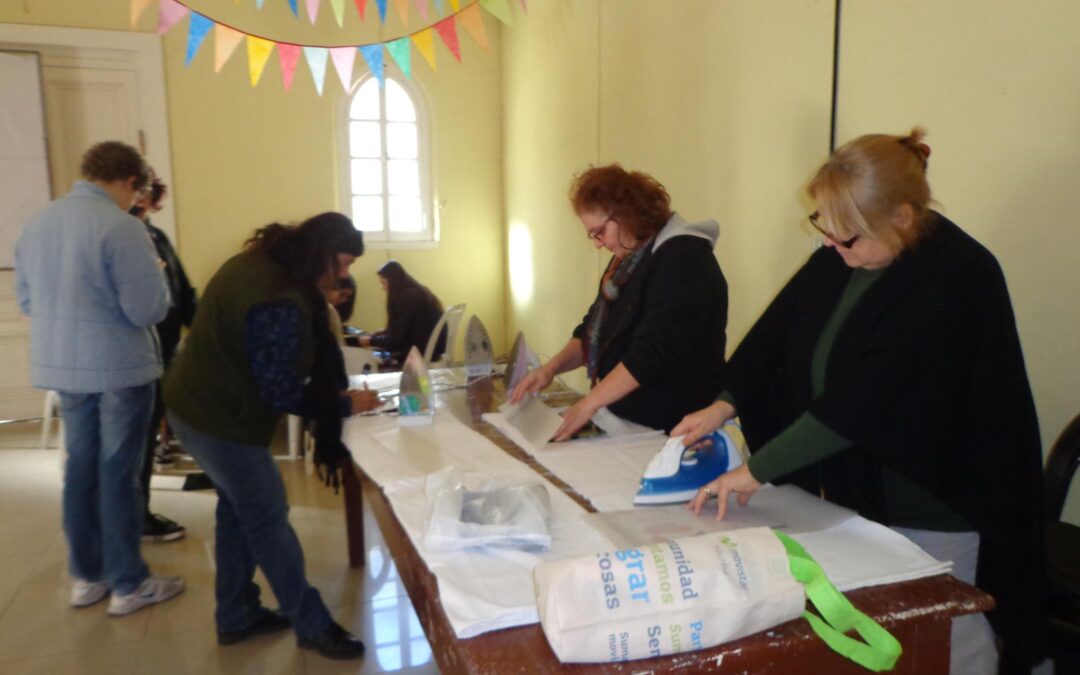
Argentina: a community at the outskirts
 From the Argentinean capital, if you take the south bound motorway, after half an hour you would get to Plátanos, a peripheral barrio of about 20,000 inhabitants. They are hardworking people who have built their own homes with great effort and very little money. The parish, dedicated to Saint Elisabeth of Hungary, is very active. Fr. Francesco Ballarini, Italian, brought the Focolare spirit there almost 30 years ago. Today, it is the lay people who continue to live this spirit of unity, together with other diocesan parishes. “At the start of the year – they recounted – we organised a party for the children of the most far out district of Plátanos, the inhabitants of which do not frequent the parish very much. Each of them was invited to put in common their own talents: some taught how to make bread, others how to paint, and there were a ceramics lab, a catechist dad to play magician, and some ladies who taught how to prepare mate (the typical infusion drunk in the Southern tip of the country).” On this occasion they met a 15-year-old at the end of her pregnancy. “She needed everything. A solidarity competition started in order to meet the needs of the child who was born a few days early. Upon reaching her house, we were shocked by the downgrade of the small place: without a floor or windows, a broken door, and with her six siblings living there with her parents. When the community heard about this situation, a lot of aid started coming in. We are almost ready to install the windows, doors, a heater and other people have offered to give a hand. Some ladies went to teach M. how to best take care of her baby, and M. who was sad and irritable when we first met her, has started to smile. It is the charity lived all together that works small miracles.”
From the Argentinean capital, if you take the south bound motorway, after half an hour you would get to Plátanos, a peripheral barrio of about 20,000 inhabitants. They are hardworking people who have built their own homes with great effort and very little money. The parish, dedicated to Saint Elisabeth of Hungary, is very active. Fr. Francesco Ballarini, Italian, brought the Focolare spirit there almost 30 years ago. Today, it is the lay people who continue to live this spirit of unity, together with other diocesan parishes. “At the start of the year – they recounted – we organised a party for the children of the most far out district of Plátanos, the inhabitants of which do not frequent the parish very much. Each of them was invited to put in common their own talents: some taught how to make bread, others how to paint, and there were a ceramics lab, a catechist dad to play magician, and some ladies who taught how to prepare mate (the typical infusion drunk in the Southern tip of the country).” On this occasion they met a 15-year-old at the end of her pregnancy. “She needed everything. A solidarity competition started in order to meet the needs of the child who was born a few days early. Upon reaching her house, we were shocked by the downgrade of the small place: without a floor or windows, a broken door, and with her six siblings living there with her parents. When the community heard about this situation, a lot of aid started coming in. We are almost ready to install the windows, doors, a heater and other people have offered to give a hand. Some ladies went to teach M. how to best take care of her baby, and M. who was sad and irritable when we first met her, has started to smile. It is the charity lived all together that works small miracles.”  “Another initiative we are working on – they continued – is the Sachetera project: it is about the manufacture of sleeping sacks with the milk bags, for the homeless. As a parish we want to continue supporting this project, and even each of us could work in their own homes. We prefer working together: kids, adolescents and adults. During a very rainy day, we thought it would be impossible to meet, but the thought of our homeless friends urged us to work even harder.” “We then gathered at Bernal (another barrio) with members of other parishes and the Focolare youth who brought ahead the aid project for the needy. For us it is important to share our experiences with other parishes, also so we would not enclose ourselves only in “our” periphery, and instead open out to the others.” In September, the house of a family in a nearby district burned down – destroying everything, “we started up an action aid, bringing the primary necessities from our own homes. With the communion of goods we contributed to the building of the walls. So with great enthusiasm, they were able to rebuild their house. Only much later, we found out that the family belongs to the Pentecostal church, and that he was the Pastor. We were moved since Love did not consider, once again, one’s religious profession, or other differences.» In the following days, the Pastor who worked as a mason, offered to plaster the wall of the church which wanted to build an altar for the icon of the Virgin of Luján. «I thank you all for the love you gave me, without asking anything in return – the Pastor said to the Catholic community gathered for the Sunday mass, and which they wanted to take part in – you have helped me overcome the prejudices that many of us (Pentecostals) feel towards Catholics. You too are my brothers.”
“Another initiative we are working on – they continued – is the Sachetera project: it is about the manufacture of sleeping sacks with the milk bags, for the homeless. As a parish we want to continue supporting this project, and even each of us could work in their own homes. We prefer working together: kids, adolescents and adults. During a very rainy day, we thought it would be impossible to meet, but the thought of our homeless friends urged us to work even harder.” “We then gathered at Bernal (another barrio) with members of other parishes and the Focolare youth who brought ahead the aid project for the needy. For us it is important to share our experiences with other parishes, also so we would not enclose ourselves only in “our” periphery, and instead open out to the others.” In September, the house of a family in a nearby district burned down – destroying everything, “we started up an action aid, bringing the primary necessities from our own homes. With the communion of goods we contributed to the building of the walls. So with great enthusiasm, they were able to rebuild their house. Only much later, we found out that the family belongs to the Pentecostal church, and that he was the Pastor. We were moved since Love did not consider, once again, one’s religious profession, or other differences.» In the following days, the Pastor who worked as a mason, offered to plaster the wall of the church which wanted to build an altar for the icon of the Virgin of Luján. «I thank you all for the love you gave me, without asking anything in return – the Pastor said to the Catholic community gathered for the Sunday mass, and which they wanted to take part in – you have helped me overcome the prejudices that many of us (Pentecostals) feel towards Catholics. You too are my brothers.”
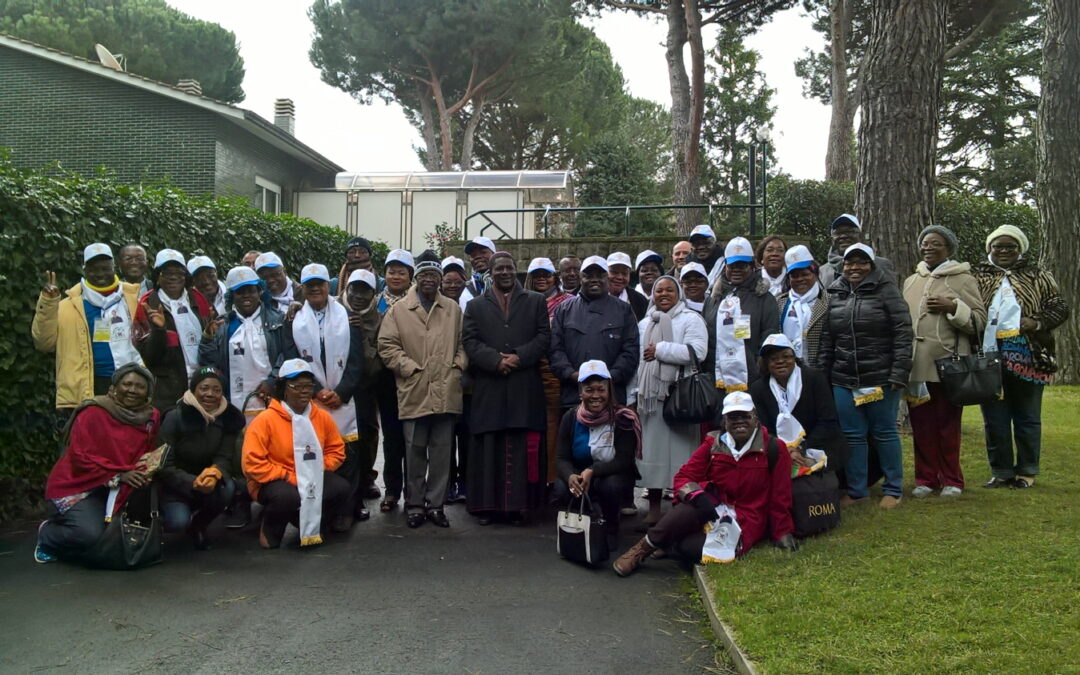
Fontem, a Jubilee of Thanksgiving
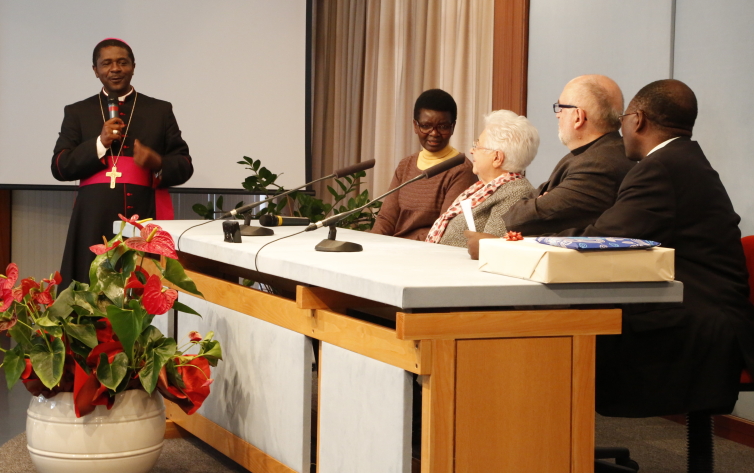 “We cannot talk about evangelization in Fontem without the Focolare Movement,” said Bishop Nkea standing in front of the television cameras during his visit to the International Centre in Rocca di Papa, Italy, on March 8. “Chiara Lubich went to Fontem 50 years ago, and she brought the Ideal [spirituality of unity]. That is why we have come here: to thank Chiara and the Movement for everything it has done for us in these 50 years. This is a pilgrimage of thanksgiving.” “The Diocese of Mamfe did not exist 50 years ago and Fontem was a lost village in the Cameroonian forest that was difficult to reach.” We cannot understand the Bishop’s words without returning to the history of an event that has been called the “miracle in the forest”. Fontem was the first permanent Mariapolis on the African continent. In 1966, several focolarini, doctors, went to help the Bangwa people who were being decimated with an infant mortality rate of 98%. A few months later, Chiara herself visited them: “That huge crowd of people gathered on the vast plane in front of the home of their Fon,” she would say in 1995, “appeared so united and so anxious to be elevated [. . .] that it seemed to me long prepared by Mary to embrace the Christian faith in its most integral and genuine form.” “The focolarini were believed because they did to Jesus what they did to the Bangwa, offering, above all, a witness of the love amongst themselves and towards everyone.”
“We cannot talk about evangelization in Fontem without the Focolare Movement,” said Bishop Nkea standing in front of the television cameras during his visit to the International Centre in Rocca di Papa, Italy, on March 8. “Chiara Lubich went to Fontem 50 years ago, and she brought the Ideal [spirituality of unity]. That is why we have come here: to thank Chiara and the Movement for everything it has done for us in these 50 years. This is a pilgrimage of thanksgiving.” “The Diocese of Mamfe did not exist 50 years ago and Fontem was a lost village in the Cameroonian forest that was difficult to reach.” We cannot understand the Bishop’s words without returning to the history of an event that has been called the “miracle in the forest”. Fontem was the first permanent Mariapolis on the African continent. In 1966, several focolarini, doctors, went to help the Bangwa people who were being decimated with an infant mortality rate of 98%. A few months later, Chiara herself visited them: “That huge crowd of people gathered on the vast plane in front of the home of their Fon,” she would say in 1995, “appeared so united and so anxious to be elevated [. . .] that it seemed to me long prepared by Mary to embrace the Christian faith in its most integral and genuine form.” “The focolarini were believed because they did to Jesus what they did to the Bangwa, offering, above all, a witness of the love amongst themselves and towards everyone.” 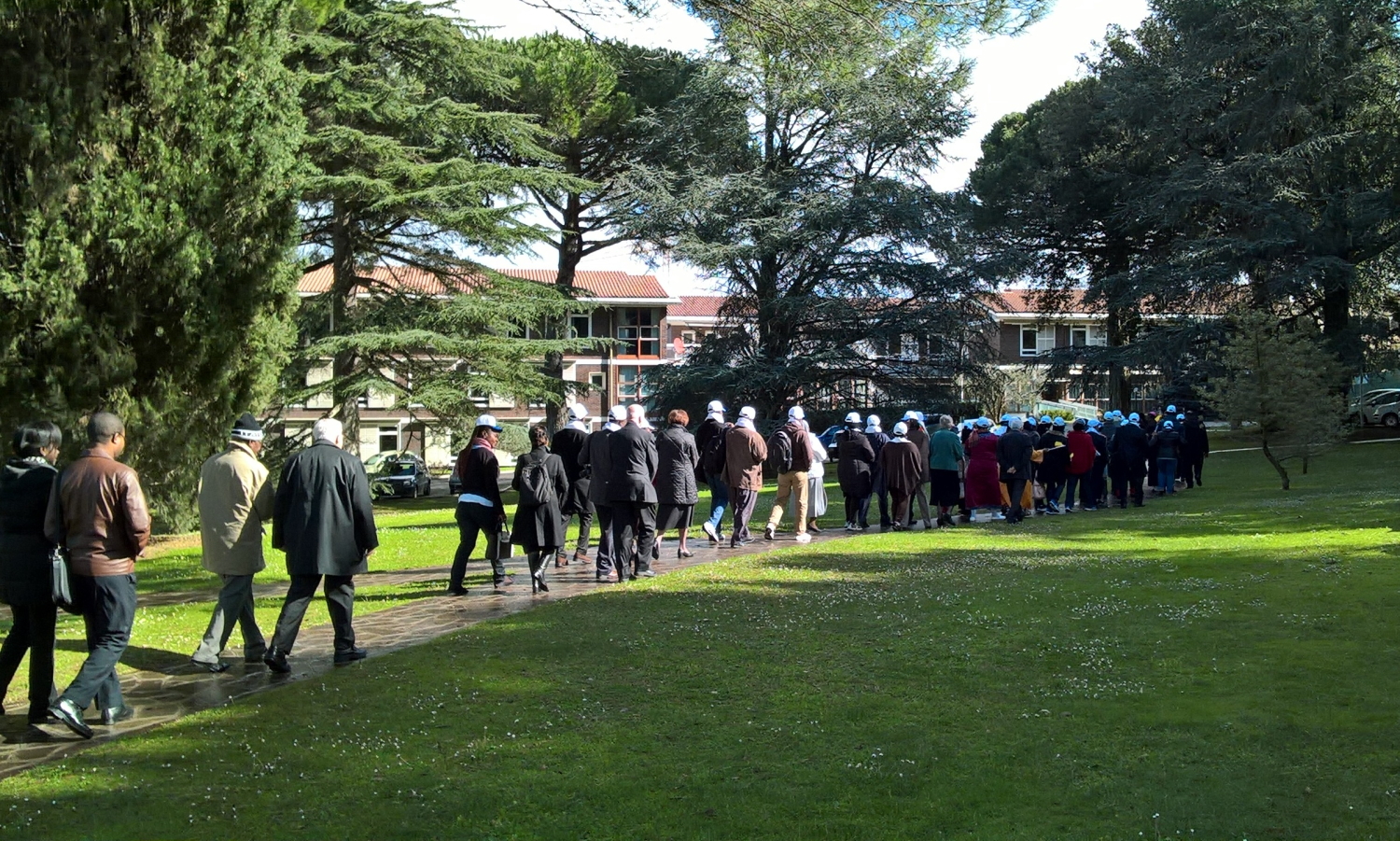 Today there is a hospital in Fontem, Mary Health of Africa, which serves a large part of the region; and a college, Mary Seat of Wisdom, which prepares students for university. With the help of focolarini priests, parishes have been opened in Menji, Fotabong, Fonjumetaw. Bishop Nkea declared: “Mainly, we learned mutual love and unity. I’m also Bangwa, so I’m speaking in the name of my people.” “We learned interreligious dialogue: What is important for us now is that we love one another, whether we are Christian or not, to live in this unity with each other.”
Today there is a hospital in Fontem, Mary Health of Africa, which serves a large part of the region; and a college, Mary Seat of Wisdom, which prepares students for university. With the help of focolarini priests, parishes have been opened in Menji, Fotabong, Fonjumetaw. Bishop Nkea declared: “Mainly, we learned mutual love and unity. I’m also Bangwa, so I’m speaking in the name of my people.” “We learned interreligious dialogue: What is important for us now is that we love one another, whether we are Christian or not, to live in this unity with each other.” 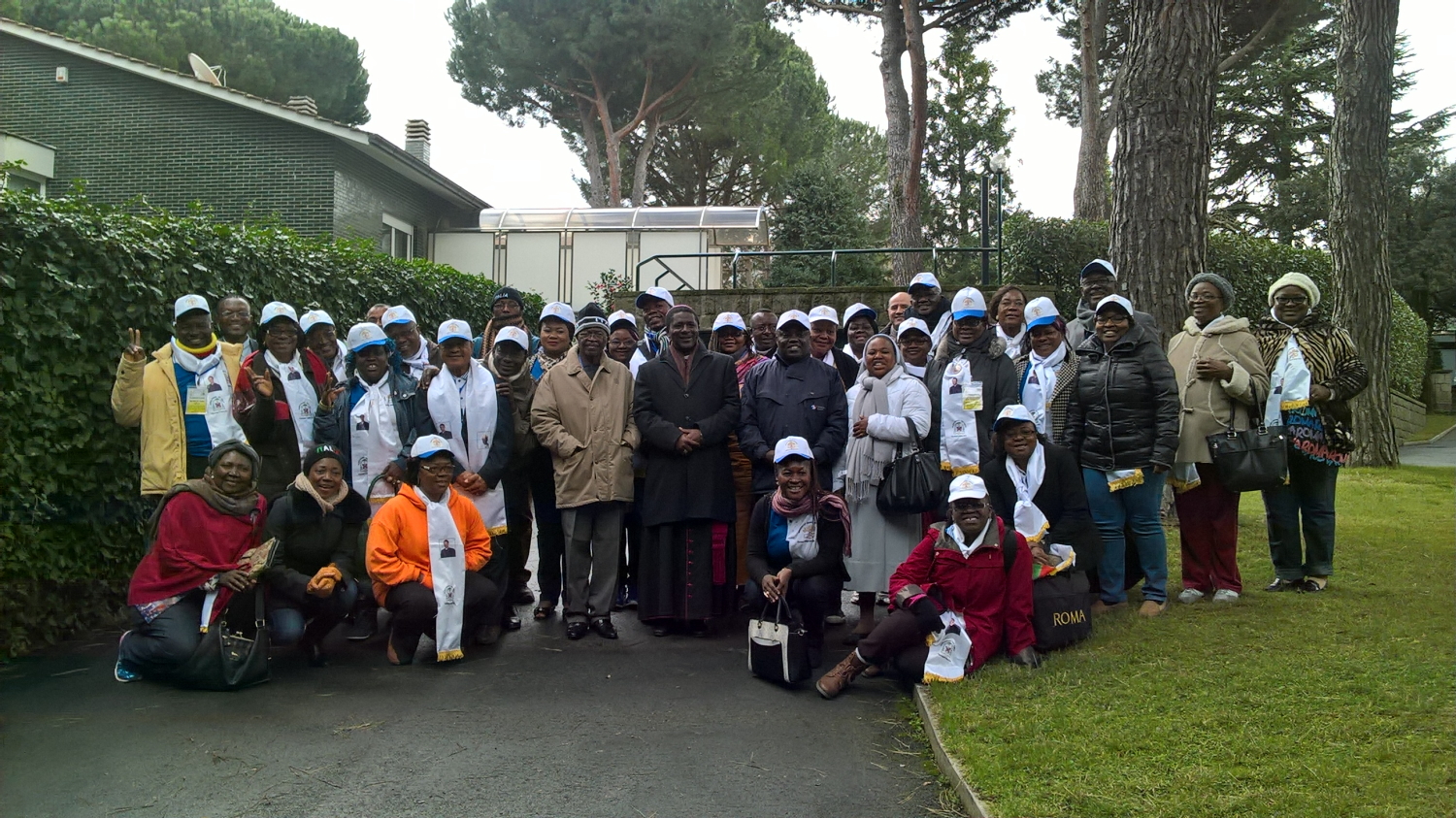 The delegation that had come to render homage to Chiara Lubich included bishops – Bishop Nkea and Emeritus Bishop Lysinge who was celebrating the 50th anniversary of his ordination to the priesthood – priests, women religious and many lay people. They are a living testimony to the communion in the diocese. They were welcomed at the International Centre of the Focolare by the Movement’s president, Maria Voce – who first visited Fontem in January 2009 – and the Movement’s co-president, Jesús Morán, who will visit Fontem this coming December. The visit of the delegation marked the opening of the 50th anniversary celebrations of the arrival of the spirituality of unity in Fontem (1966-2016) and will continue through the year. The visit to Chiara’s house was particularly moving. The day concluded with a solemn Mass in the chapel where Chiara rests. “Your pilgrimage here today bears witness to the fruits produced by that first visit of Chiara, which launched a Divine adventure that no one ever imagined,” Maria Voce said as she welcomed them. “You are the fruit of the life of these 50 years. It is a great joy for us and shows us the vitality of Africa. Fifty years have gone by and our wish to each other now is that we begin a new period, hopefully a long period for offering to God trees covered with fruits and with blossoms.” Jesús Morán commented: “There is an exchange of gifts between Africa and us. The charism of unity is a gift for Africa, and Africa is a gift for the whole Movement.”
The delegation that had come to render homage to Chiara Lubich included bishops – Bishop Nkea and Emeritus Bishop Lysinge who was celebrating the 50th anniversary of his ordination to the priesthood – priests, women religious and many lay people. They are a living testimony to the communion in the diocese. They were welcomed at the International Centre of the Focolare by the Movement’s president, Maria Voce – who first visited Fontem in January 2009 – and the Movement’s co-president, Jesús Morán, who will visit Fontem this coming December. The visit of the delegation marked the opening of the 50th anniversary celebrations of the arrival of the spirituality of unity in Fontem (1966-2016) and will continue through the year. The visit to Chiara’s house was particularly moving. The day concluded with a solemn Mass in the chapel where Chiara rests. “Your pilgrimage here today bears witness to the fruits produced by that first visit of Chiara, which launched a Divine adventure that no one ever imagined,” Maria Voce said as she welcomed them. “You are the fruit of the life of these 50 years. It is a great joy for us and shows us the vitality of Africa. Fifty years have gone by and our wish to each other now is that we begin a new period, hopefully a long period for offering to God trees covered with fruits and with blossoms.” Jesús Morán commented: “There is an exchange of gifts between Africa and us. The charism of unity is a gift for Africa, and Africa is a gift for the whole Movement.”
Leer more: 50th anniversary of the Focolare in Africa
The personal witness of the Fon of Fontem Lucas Njifua https://vimeo.com/91709757
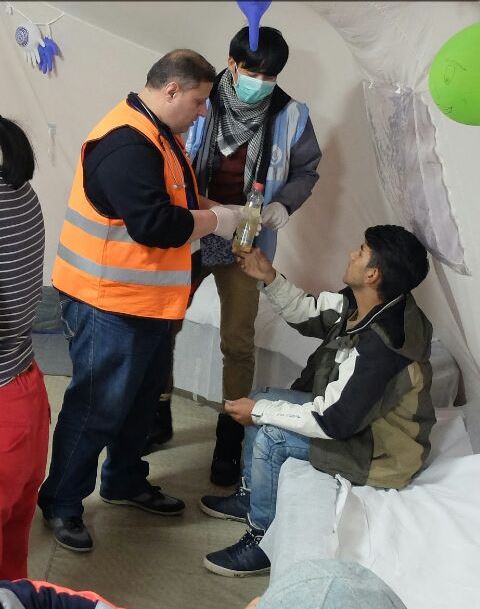
A Syrian doctor at the refugee camp
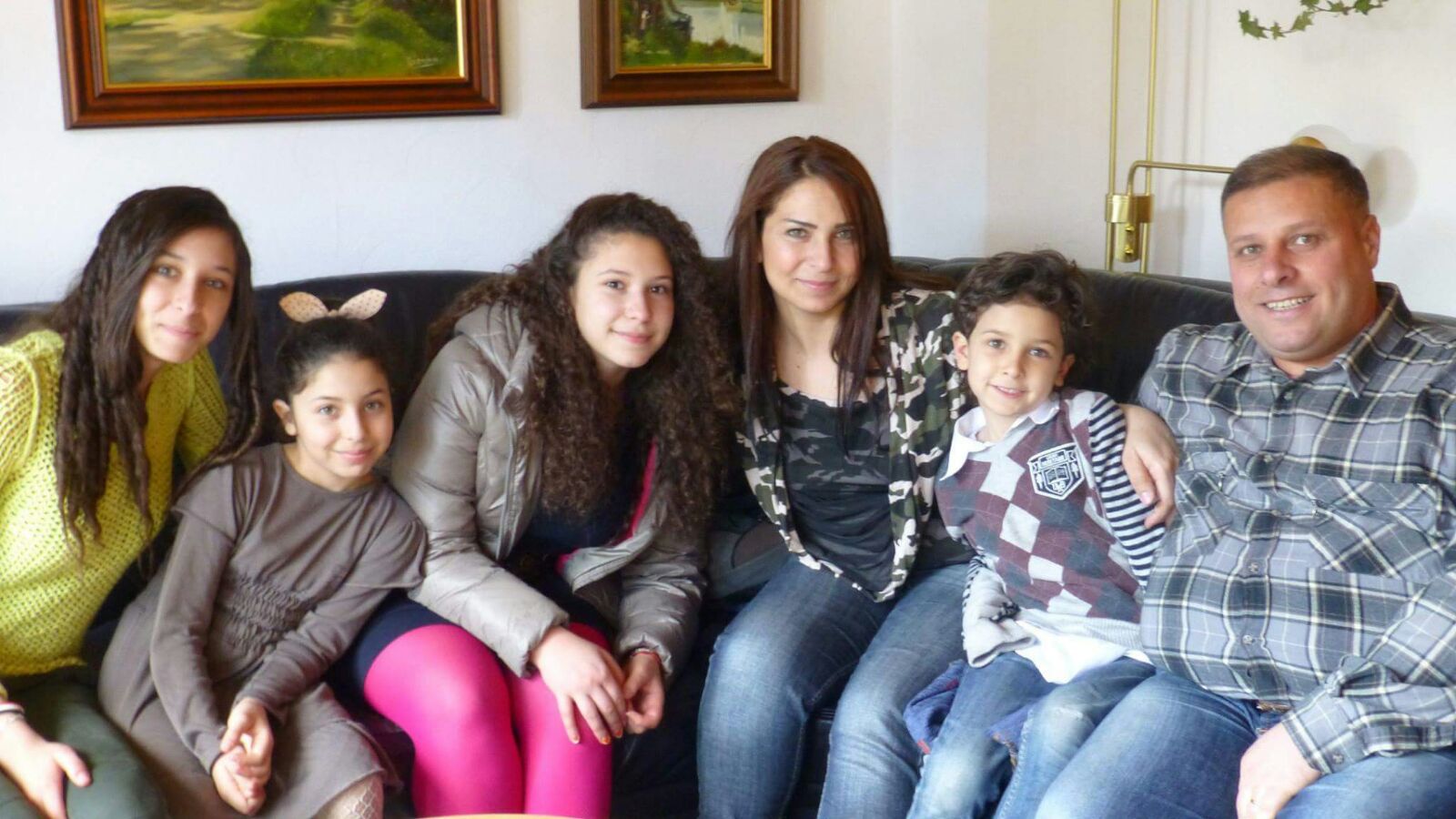 “Five years ago, before the outbreak of the Syrian conflict, my family and I planned to make a full-time experience at the international town of the Focolare in Loppiano (Florence). Violet and I attended the Loreto School, where with other couples from various parts of the world, we deepened the topic of the family in the light of the spirituality of unity while our four children attended the schools of the region. After years of work as a doctor, we wanted to dedicate a year of our life to God. We prepared to leave with great care and responsibility, unaware of what would happen from then on: after the outbreak of the conflicts in our country. In the time that remained before our departure, I managed to be useful in many ways, giving first aid to the wounded, and making long and risky trips by car to reach them. Also the departure for Italy was rather adventurous precisely due to the disorders that unfortunately continued.
“Five years ago, before the outbreak of the Syrian conflict, my family and I planned to make a full-time experience at the international town of the Focolare in Loppiano (Florence). Violet and I attended the Loreto School, where with other couples from various parts of the world, we deepened the topic of the family in the light of the spirituality of unity while our four children attended the schools of the region. After years of work as a doctor, we wanted to dedicate a year of our life to God. We prepared to leave with great care and responsibility, unaware of what would happen from then on: after the outbreak of the conflicts in our country. In the time that remained before our departure, I managed to be useful in many ways, giving first aid to the wounded, and making long and risky trips by car to reach them. Also the departure for Italy was rather adventurous precisely due to the disorders that unfortunately continued. 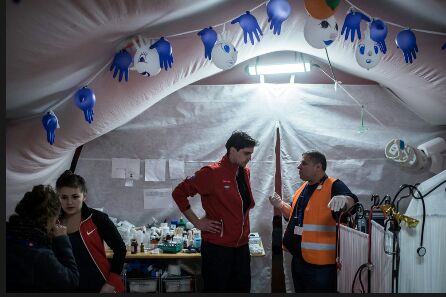 As we followed with trepidation the increasingly tragic news from afar, at the end of the course our relatives implored us to delay our return. You can imagine the anguish with which we made this decision, and the pain of not being able to do anything for our compatriots. We felt like a car with an engine in full thrust being held on the spot by force. But neither was it simple to remain in Italy. There was no future ahead of us. Even if we were in a friendly environment, because my qualifications were not recognised, I was not allowed to practice my profession. So I adapted myself to doing other jobs, like carpentry or other works, while waiting for some opening.
As we followed with trepidation the increasingly tragic news from afar, at the end of the course our relatives implored us to delay our return. You can imagine the anguish with which we made this decision, and the pain of not being able to do anything for our compatriots. We felt like a car with an engine in full thrust being held on the spot by force. But neither was it simple to remain in Italy. There was no future ahead of us. Even if we were in a friendly environment, because my qualifications were not recognised, I was not allowed to practice my profession. So I adapted myself to doing other jobs, like carpentry or other works, while waiting for some opening.  Finally an occasion came up where I could do something for my people. I found out about a reception project of “Doctors Without Borders” that helps refugees in Slovenia, which needed an Arab-speaking doctor. So I immediately left, without knowing exactly how it would be. Upon my arrival, I immediately set myself at the service of many who reached the Refugee center via the sea or after a long journey on foot. Many of them came from Iran, Iraq, Afghanistan… and many also from Syria! Seeing them arrive and welcoming them in our language was really moving, so that tears ran down my face. From then on I no longer worried about the hours of sleep, food… I wanted to stay with them all the time to soothe their suffering, taking care of them and making them feel “at home.” I can still remember the first baby girl I took care of: she kept crying, and we couldn’t calm her down. Upon visiting her I understood that she only had a stomach ache and I started to cradle her and speak to her in Arab… the child slowly calmed down and fell asleep in my arms. When the others approached to take her, she would struggle and did not want to let my arm go… it was really a strong experience. Over here the flow is continuous. Three trains arrive daily with about 2,500 people. In only four days we had to see to so many people, as had never happened in any month. There are only six of us in our team: the others are all natives of the place. Also they noticed how touching it was for me to see my compatriots arrive in those conditions. When I receive them, saying my name (Issa=Jesus), I see their eyes light up. For each of them I would like to be another Jesus, who is there to welcome and take care of them, through me. The chance to do so is like God’s answer for me.”
Finally an occasion came up where I could do something for my people. I found out about a reception project of “Doctors Without Borders” that helps refugees in Slovenia, which needed an Arab-speaking doctor. So I immediately left, without knowing exactly how it would be. Upon my arrival, I immediately set myself at the service of many who reached the Refugee center via the sea or after a long journey on foot. Many of them came from Iran, Iraq, Afghanistan… and many also from Syria! Seeing them arrive and welcoming them in our language was really moving, so that tears ran down my face. From then on I no longer worried about the hours of sleep, food… I wanted to stay with them all the time to soothe their suffering, taking care of them and making them feel “at home.” I can still remember the first baby girl I took care of: she kept crying, and we couldn’t calm her down. Upon visiting her I understood that she only had a stomach ache and I started to cradle her and speak to her in Arab… the child slowly calmed down and fell asleep in my arms. When the others approached to take her, she would struggle and did not want to let my arm go… it was really a strong experience. Over here the flow is continuous. Three trains arrive daily with about 2,500 people. In only four days we had to see to so many people, as had never happened in any month. There are only six of us in our team: the others are all natives of the place. Also they noticed how touching it was for me to see my compatriots arrive in those conditions. When I receive them, saying my name (Issa=Jesus), I see their eyes light up. For each of them I would like to be another Jesus, who is there to welcome and take care of them, through me. The chance to do so is like God’s answer for me.”
Trentino Alto Adige – Centro Mariapoli

Igino Giordani: This is the moment for women
 “We could say that it is the moment for women: not because the media endlessly focus on divorce and VIP trends but because of the fact that more than ever today, coexistence and the fruit of man-woman dialectics call for the presence of those who are, or will be mothers, naturally or spiritually. The social body as never before suffers the lack of full health and normal feminineness: it is as if its flight was done with two wings, one of which was too overwrought, and the other lifeless, which make its progress very disorderly. People are aware that this is the time for woman, but of a womanly woman, and not a contamination or contrast of man: almost like a feminised man. The history of the last centuries in which the strong man – the superman – had been forged in disdain for feminineness, was affected by excessive masculinity, not counterbalanced by feminineness. The same but contrary effect of non-integrated feminineness is imbued by a sense of virility. Women today have voting rights, gained managing roles in offices, and entered into public life. But their impact remains dull, like before or even worse since by entering the political battles they align with the males, taking on their ambitions, and bowing to their methods: they have become reduced-performance males. Their votes, without outstanding discrimination are added to those of men since the latter’s game continues as before, without corrections, integration, or being enlightened by the other, which is an indispensable factor. And so the flight (or plunge) continues with only one wing. Just think of what Mary’s fascination was like, and what it still is today – her name alone signifies the sublimation of woman who was made to become the grafting point of the divine onto the human, and as the ianua coeli, door to Heaven, the rise of the human towards the divine. Societies today call for the presence of the woman, so that she could imbue in society the demands for maternity, life, and therefore, of material and moral nutrition, education, love in peace and work, of the family gathered in pureness and thus, the condemnation of factions and wars. This is because woman by nature stands for generation of life and not production of death, for the good of the offspring which are the State and the Church of the future, the same humanity.” (Igino Giordani, “Fides” publication, 1961)
“We could say that it is the moment for women: not because the media endlessly focus on divorce and VIP trends but because of the fact that more than ever today, coexistence and the fruit of man-woman dialectics call for the presence of those who are, or will be mothers, naturally or spiritually. The social body as never before suffers the lack of full health and normal feminineness: it is as if its flight was done with two wings, one of which was too overwrought, and the other lifeless, which make its progress very disorderly. People are aware that this is the time for woman, but of a womanly woman, and not a contamination or contrast of man: almost like a feminised man. The history of the last centuries in which the strong man – the superman – had been forged in disdain for feminineness, was affected by excessive masculinity, not counterbalanced by feminineness. The same but contrary effect of non-integrated feminineness is imbued by a sense of virility. Women today have voting rights, gained managing roles in offices, and entered into public life. But their impact remains dull, like before or even worse since by entering the political battles they align with the males, taking on their ambitions, and bowing to their methods: they have become reduced-performance males. Their votes, without outstanding discrimination are added to those of men since the latter’s game continues as before, without corrections, integration, or being enlightened by the other, which is an indispensable factor. And so the flight (or plunge) continues with only one wing. Just think of what Mary’s fascination was like, and what it still is today – her name alone signifies the sublimation of woman who was made to become the grafting point of the divine onto the human, and as the ianua coeli, door to Heaven, the rise of the human towards the divine. Societies today call for the presence of the woman, so that she could imbue in society the demands for maternity, life, and therefore, of material and moral nutrition, education, love in peace and work, of the family gathered in pureness and thus, the condemnation of factions and wars. This is because woman by nature stands for generation of life and not production of death, for the good of the offspring which are the State and the Church of the future, the same humanity.” (Igino Giordani, “Fides” publication, 1961)

Living the Gospel: 4 chairs and 2 pumpkins
 “We got to know a family from Burundi who in the current terrible situation in their country, about which we hear very little, have left the country like many other families and come to Kampala where we live,”write us from Uganda. “The husband went back to Burundi so as not to lose his job and to be able to pay the rent on the house in Uganda and buy food for their children, including a three week old baby. “His wife had not been able to stay in Burundi when shooting began again in their city, as she had too vivid memories of all that had happened in the 1990s during the civil war. Then she had miraculously escaped death because the Headmaster of the school she attended had twice paid off soldiers who had come to the school on two consecutive days to look for her and the other girls. So, when the first signs of trouble began, the family had decided to go, leaving all they had behind in Bujumbura. They had brought other relatives with them, so there were 8 of them in all. “We heard that the rent did not cover furniture and that they had only 4 chairs in the living room: what could we do? We thought that four of our folding chairs, used occasionally when many people come to our house, would be made better use of in their house, so that at least everyone could sit and eat comfortably. “As we left we cut two pumpkins from the garden to take with us. We had planted a number of them almost by chance a few months earlier and they had picked up after the dry season and had been extremely useful in recent weeks! Moreover, just the day before we had received some food supplies. Providence has never been lacking over the last few months and it is truly by sharing it that the Gospel promise “give and gifts will be given to you” comes true. So we took two kilos of sugar, two of rice, one kilo of salt and a litre of oil and went to see the family. “Their house was new and clean and there were some unusual trimmings on the ceiling as well as a nice light fitting. But there were no beds in the bedrooms, only mattresses. In the living room there was a small round plastic table and four chairs, a little television in the corner on the floor with an antenna hanging over visitors’ heads. We could not see any toys or other furniture. “We went in with the chairs and spent two very happy hours with the family getting to know them better and sharing past memories and hopes for the future. The children are not going to school at the moment. The older ones want to go to university but it is much more expensive in Uganda than Burundi so it is not possible for now. Finding work is difficult too, as many people are unemployed and it is almost impossible for foreigners if you don’t know someone. What is more they don’t speak luganda, the local language, and English is not their mother tongue either. But they said “… We trust in God!”. “It was already 7.30 in the evening and we needed to go home. We all said goodbye. They were so happy we had come but as soon as we asked them to keep the chairs, and return them when they left that house, their faces lit up and they thanked us again and again! Before getting into the car they wanted to give us their blessing! On the way home I thought that four ordinary chairs and two pumpkins, once given, can fill the hearts, both of those who receive and those who give, with joy…” (S.M. Uganda)
“We got to know a family from Burundi who in the current terrible situation in their country, about which we hear very little, have left the country like many other families and come to Kampala where we live,”write us from Uganda. “The husband went back to Burundi so as not to lose his job and to be able to pay the rent on the house in Uganda and buy food for their children, including a three week old baby. “His wife had not been able to stay in Burundi when shooting began again in their city, as she had too vivid memories of all that had happened in the 1990s during the civil war. Then she had miraculously escaped death because the Headmaster of the school she attended had twice paid off soldiers who had come to the school on two consecutive days to look for her and the other girls. So, when the first signs of trouble began, the family had decided to go, leaving all they had behind in Bujumbura. They had brought other relatives with them, so there were 8 of them in all. “We heard that the rent did not cover furniture and that they had only 4 chairs in the living room: what could we do? We thought that four of our folding chairs, used occasionally when many people come to our house, would be made better use of in their house, so that at least everyone could sit and eat comfortably. “As we left we cut two pumpkins from the garden to take with us. We had planted a number of them almost by chance a few months earlier and they had picked up after the dry season and had been extremely useful in recent weeks! Moreover, just the day before we had received some food supplies. Providence has never been lacking over the last few months and it is truly by sharing it that the Gospel promise “give and gifts will be given to you” comes true. So we took two kilos of sugar, two of rice, one kilo of salt and a litre of oil and went to see the family. “Their house was new and clean and there were some unusual trimmings on the ceiling as well as a nice light fitting. But there were no beds in the bedrooms, only mattresses. In the living room there was a small round plastic table and four chairs, a little television in the corner on the floor with an antenna hanging over visitors’ heads. We could not see any toys or other furniture. “We went in with the chairs and spent two very happy hours with the family getting to know them better and sharing past memories and hopes for the future. The children are not going to school at the moment. The older ones want to go to university but it is much more expensive in Uganda than Burundi so it is not possible for now. Finding work is difficult too, as many people are unemployed and it is almost impossible for foreigners if you don’t know someone. What is more they don’t speak luganda, the local language, and English is not their mother tongue either. But they said “… We trust in God!”. “It was already 7.30 in the evening and we needed to go home. We all said goodbye. They were so happy we had come but as soon as we asked them to keep the chairs, and return them when they left that house, their faces lit up and they thanked us again and again! Before getting into the car they wanted to give us their blessing! On the way home I thought that four ordinary chairs and two pumpkins, once given, can fill the hearts, both of those who receive and those who give, with joy…” (S.M. Uganda)
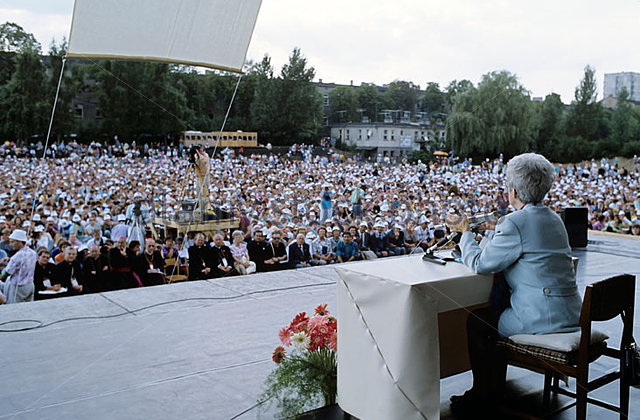
Chiara Lubich: may peace return
 “What should not have happened, has happened: a terrible war has begun and the whole world is holding its breath, fearing it might spread and involve other nations.” It was a few weeks after the US invasion of Iraq, which took place on 17th January 1991, in response to the Iraqi invasion of Kuwait on 2nd August 1990. Chiara Lubich wrote on the subject of peace for Città Nuova magazine. This is taken from an editorial in February 1991. “Despite so many prayers, God has permitted the war. Why? Because the will of those responsible for it did not coincide with His will, expressed by the chorus of voices of those who were in the right. The Holy Father, the world’s greatest spiritual and moral authority, summed up these voices in his own constant appeals for peace, affirming the uselessness of war in resolving problems and its inevitable disastrous consequences. We can only hope that in the mysterious plans of God and because of His infinite love, He will draw something good from this immense evil. We don’t deserve it, but we know the immensity of His mercy. For this reason and above all so that peace may return, we will not stop praying. On the contrary! Now our “time out” to pray in unity for peace at noon each day will need to be even more intense. Moreover, we must all feel called in this moment to follow with determination a life style which corrects, at least within us (and through the communion of saints in many others), the mistake that has been made. Human beings have not done the will of God, the will of the God of peace. They did their own will. We must make every effort, as never before, to carry out the will of God perfectly. “Not my will but yours be done”. Today these words of Jesus must acquire an altogether special importance for us. Compared to His word, everything else must become secondary. We shouldn’t give much importance in our lives to being healthy or sick, to studying or serving, to sleeping or praying, to living or dying. What matters is to make his will our own, to be his will lived out. This is the way we lived at the beginning of our Movement when, in the setting of another war, the Spirit gave us the light to understand the true value of things. Faced with the destruction caused by hatred, God revealed himself as the one ideal that does not pass, that no bomb could destroy. God Love, this was the great discovery, a spiritual bomb of such power that it made us literally forget all the bombs falling around us in the war. We discovered that beyond everyone and everything was God who is love, and his providence which makes all things work together for the good of those who love him. We identified the signs of his love in each circumstance, even in the pain of suffering. He loved us immensely. How could we love him in return? It is not the one who says Lord, Lord, who loves me, but the one who does my will.” We could love God by doing his will. Living like this we got used to listening with every greater attention to “the voice” within us, the voice of our conscience which emphasized the will of God expressed in different ways, through his Word, the duties of our state in life, circumstances, inspirations. We were certain that God would draw us into a divine adventure, at first unknown to us, where as both spectators and actors in his design of love, we could give the contribution of our own free will, moment by moment. A short while later he let us see something of our future, helping us see clearly the purpose for which the Movement was coming about: to fulfill Jesus’ prayer in his testament: “Father, may they all be one”, to work together to achieve a more united world. We can live like this now too. Have we experienced an aburpt and painful change? Do we have to run to air raid shelters often, just like in those far off days? Are we at times fearful, anguished, believing we are going to die? Or are we living life as we always did, with our daily tasks, far from danger? For all of us what matters is what is of most value: not one thing or the other, but God’s will. Let’s ‘listen’ putting his will in the first place in our heart, our memory, our mind; putting before all else, all our strength at his service. In this way we will rectify, at least in ourselves, the error that has been made. And Christ will stay in our hearts and we will therefore be more together, more united, more ‘one’, sharing everything, praying for one another and for peace to return.” Chiara Lubich: Attualità leggere il proprio tempo,[Current affairs: reading our own times] Città Nuova Ed., pag.85-87. Originally published in Città Nuova n. 4/1991
“What should not have happened, has happened: a terrible war has begun and the whole world is holding its breath, fearing it might spread and involve other nations.” It was a few weeks after the US invasion of Iraq, which took place on 17th January 1991, in response to the Iraqi invasion of Kuwait on 2nd August 1990. Chiara Lubich wrote on the subject of peace for Città Nuova magazine. This is taken from an editorial in February 1991. “Despite so many prayers, God has permitted the war. Why? Because the will of those responsible for it did not coincide with His will, expressed by the chorus of voices of those who were in the right. The Holy Father, the world’s greatest spiritual and moral authority, summed up these voices in his own constant appeals for peace, affirming the uselessness of war in resolving problems and its inevitable disastrous consequences. We can only hope that in the mysterious plans of God and because of His infinite love, He will draw something good from this immense evil. We don’t deserve it, but we know the immensity of His mercy. For this reason and above all so that peace may return, we will not stop praying. On the contrary! Now our “time out” to pray in unity for peace at noon each day will need to be even more intense. Moreover, we must all feel called in this moment to follow with determination a life style which corrects, at least within us (and through the communion of saints in many others), the mistake that has been made. Human beings have not done the will of God, the will of the God of peace. They did their own will. We must make every effort, as never before, to carry out the will of God perfectly. “Not my will but yours be done”. Today these words of Jesus must acquire an altogether special importance for us. Compared to His word, everything else must become secondary. We shouldn’t give much importance in our lives to being healthy or sick, to studying or serving, to sleeping or praying, to living or dying. What matters is to make his will our own, to be his will lived out. This is the way we lived at the beginning of our Movement when, in the setting of another war, the Spirit gave us the light to understand the true value of things. Faced with the destruction caused by hatred, God revealed himself as the one ideal that does not pass, that no bomb could destroy. God Love, this was the great discovery, a spiritual bomb of such power that it made us literally forget all the bombs falling around us in the war. We discovered that beyond everyone and everything was God who is love, and his providence which makes all things work together for the good of those who love him. We identified the signs of his love in each circumstance, even in the pain of suffering. He loved us immensely. How could we love him in return? It is not the one who says Lord, Lord, who loves me, but the one who does my will.” We could love God by doing his will. Living like this we got used to listening with every greater attention to “the voice” within us, the voice of our conscience which emphasized the will of God expressed in different ways, through his Word, the duties of our state in life, circumstances, inspirations. We were certain that God would draw us into a divine adventure, at first unknown to us, where as both spectators and actors in his design of love, we could give the contribution of our own free will, moment by moment. A short while later he let us see something of our future, helping us see clearly the purpose for which the Movement was coming about: to fulfill Jesus’ prayer in his testament: “Father, may they all be one”, to work together to achieve a more united world. We can live like this now too. Have we experienced an aburpt and painful change? Do we have to run to air raid shelters often, just like in those far off days? Are we at times fearful, anguished, believing we are going to die? Or are we living life as we always did, with our daily tasks, far from danger? For all of us what matters is what is of most value: not one thing or the other, but God’s will. Let’s ‘listen’ putting his will in the first place in our heart, our memory, our mind; putting before all else, all our strength at his service. In this way we will rectify, at least in ourselves, the error that has been made. And Christ will stay in our hearts and we will therefore be more together, more united, more ‘one’, sharing everything, praying for one another and for peace to return.” Chiara Lubich: Attualità leggere il proprio tempo,[Current affairs: reading our own times] Città Nuova Ed., pag.85-87. Originally published in Città Nuova n. 4/1991

Bruni: Happiness would be too little.
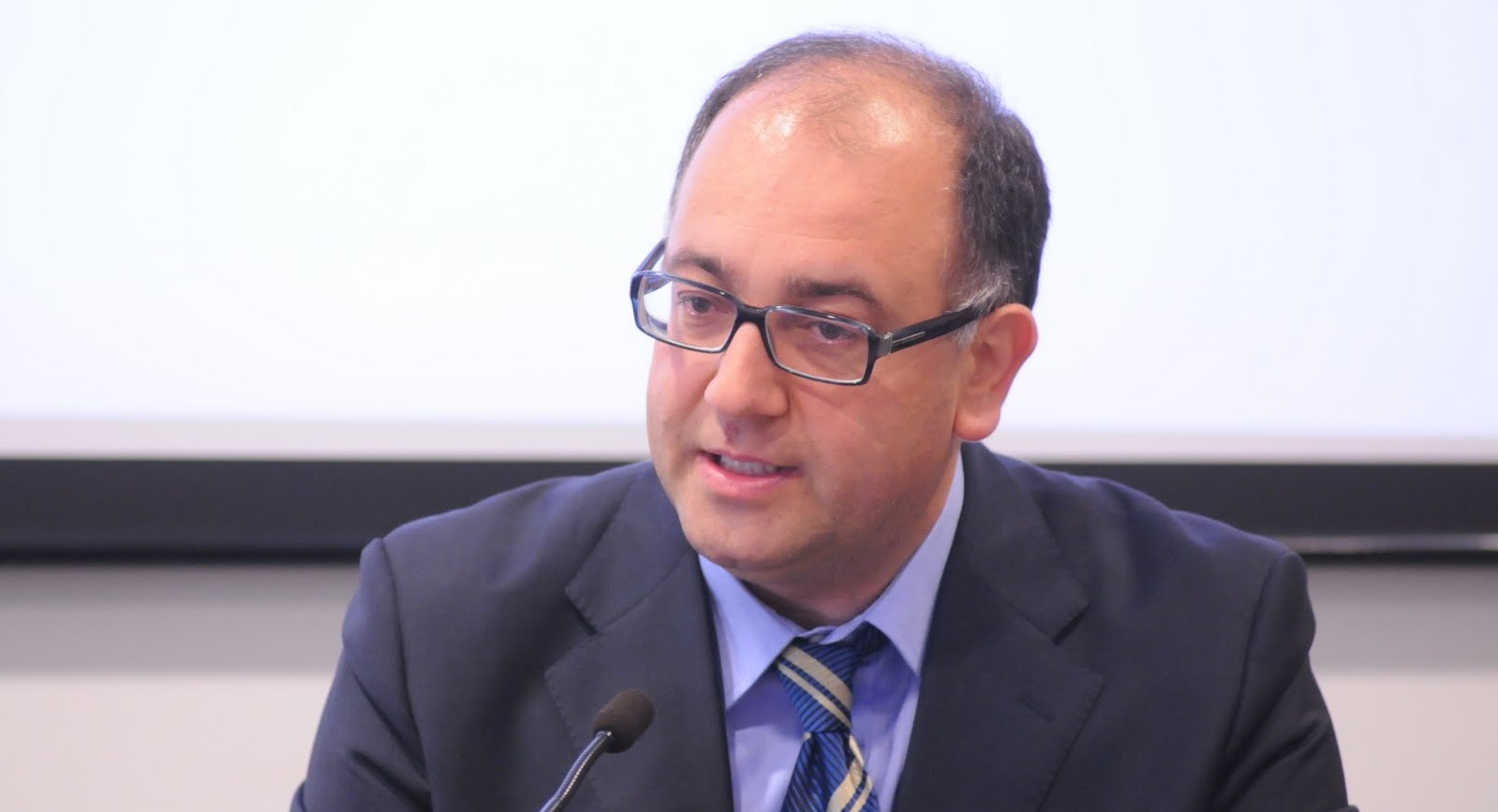 “One day I’ll tell you, I’ve given up my happiness for you.” This is the first line of a song by Stadio, the recent winner at the Sanremo Italian Song Festival. It gives us the opportunity to think about our own happiness and that of the people around us. Society has placed the search for personal happiness at the core of own humanism, banishing to the end of the line other values, including the happiness of others – unless they are useful for increasing our happiness. And we no longer have mental categories for understanding the decisions (that still exist) of those who knowingly sacrifice their own happiness for the happiness of another. […] Happiness has had a long history. Christian humanism which innovated many elements of the Greek culture, proposed the idea of “limited happiness” wherein the pursuit of our personal happiness was never considered the ultimate goal of life, because it was subordinate to other values, such as the happiness of the community, the family or the eternal life. For centuries we believed that the only happiness worthy of being achieved was that of others, of everyone. […]
“One day I’ll tell you, I’ve given up my happiness for you.” This is the first line of a song by Stadio, the recent winner at the Sanremo Italian Song Festival. It gives us the opportunity to think about our own happiness and that of the people around us. Society has placed the search for personal happiness at the core of own humanism, banishing to the end of the line other values, including the happiness of others – unless they are useful for increasing our happiness. And we no longer have mental categories for understanding the decisions (that still exist) of those who knowingly sacrifice their own happiness for the happiness of another. […] Happiness has had a long history. Christian humanism which innovated many elements of the Greek culture, proposed the idea of “limited happiness” wherein the pursuit of our personal happiness was never considered the ultimate goal of life, because it was subordinate to other values, such as the happiness of the community, the family or the eternal life. For centuries we believed that the only happiness worthy of being achieved was that of others, of everyone. […] 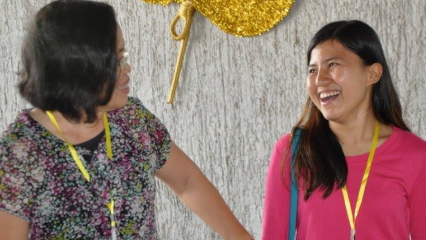 In the modern age this ancient and deeply rooted idea of happiness went into a deep crisis and the pre-Christian idea of happiness as the ultimate and absolute goal of life, began to gain ground. […] The contemporary economy with its Anglo Saxon model was a perfect match for the idea of personal happiness. […] As far as the economy is concerned, the earth is inhabited only by people who want to achieve complete personal happiness. Such a description of human choices explains many things, but is useless or misleading when it comes to explaining those few but decisive choices that are connected to our moral and spiritual life. When Abraham headed for Mount Moriah with his son Isaac, he certainly wasn’t thinking of his own happiness […] but certainly was following a most sorrowful voice that led him on. Like him, many people still continue to climb the Mount Moriahs of their lives. There are many good things in our life that are not measured against our personal happiness, and some not even against the happiness of others. The important choices are most often tragic choices. We don’t choose between a good and an evil, but between two goods. There are other choices in which we step off the calculator. And other moments in which we are not even able to choose, but only mutter a submissive “yes”. The world is filled with people who in some decisive moments do not seek their own happiness. […]
In the modern age this ancient and deeply rooted idea of happiness went into a deep crisis and the pre-Christian idea of happiness as the ultimate and absolute goal of life, began to gain ground. […] The contemporary economy with its Anglo Saxon model was a perfect match for the idea of personal happiness. […] As far as the economy is concerned, the earth is inhabited only by people who want to achieve complete personal happiness. Such a description of human choices explains many things, but is useless or misleading when it comes to explaining those few but decisive choices that are connected to our moral and spiritual life. When Abraham headed for Mount Moriah with his son Isaac, he certainly wasn’t thinking of his own happiness […] but certainly was following a most sorrowful voice that led him on. Like him, many people still continue to climb the Mount Moriahs of their lives. There are many good things in our life that are not measured against our personal happiness, and some not even against the happiness of others. The important choices are most often tragic choices. We don’t choose between a good and an evil, but between two goods. There are other choices in which we step off the calculator. And other moments in which we are not even able to choose, but only mutter a submissive “yes”. The world is filled with people who in some decisive moments do not seek their own happiness. […]  Happiness, truth, justice and faith are all primary goods that can never be reduced to only one – even if that one is happiness. We can have a clear idea of which choice will make us happier, we can include in that happiness nearly all the beautiful things of life even the highest, but in spite of this we can freely decide not to choose our happiness when other values come into play and call to us. In that case we might learn a new word: joy which, unlike happiness, never be sought but only accepted as a gift. Anybody who ever left their mark on this world wasn’t pursuing their own personal happiness. They would have considered that too little. Sometimes they found it but never stopped to grab onto it. They preferred to continue the walk following the voice that was leading them. At the end of the walk we won’t be left with the happiness we accumulated. If we’re left with anything, it will be things that are far more serious and true. We are much more than our personal happiness. […] Luigino Bruni La voce dei giorni/1 – Read Italian text (Source: Avvenire)
Happiness, truth, justice and faith are all primary goods that can never be reduced to only one – even if that one is happiness. We can have a clear idea of which choice will make us happier, we can include in that happiness nearly all the beautiful things of life even the highest, but in spite of this we can freely decide not to choose our happiness when other values come into play and call to us. In that case we might learn a new word: joy which, unlike happiness, never be sought but only accepted as a gift. Anybody who ever left their mark on this world wasn’t pursuing their own personal happiness. They would have considered that too little. Sometimes they found it but never stopped to grab onto it. They preferred to continue the walk following the voice that was leading them. At the end of the walk we won’t be left with the happiness we accumulated. If we’re left with anything, it will be things that are far more serious and true. We are much more than our personal happiness. […] Luigino Bruni La voce dei giorni/1 – Read Italian text (Source: Avvenire)
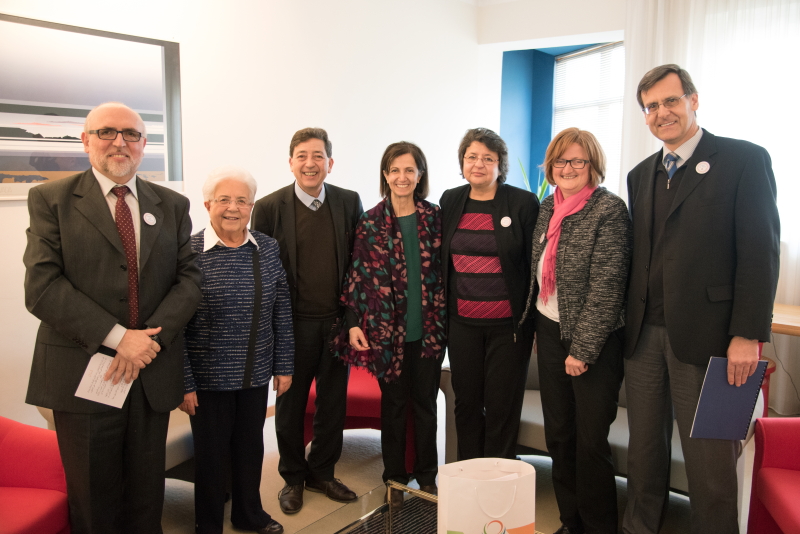
Sheikh Khaled Bentounès: I dream of a peace academy
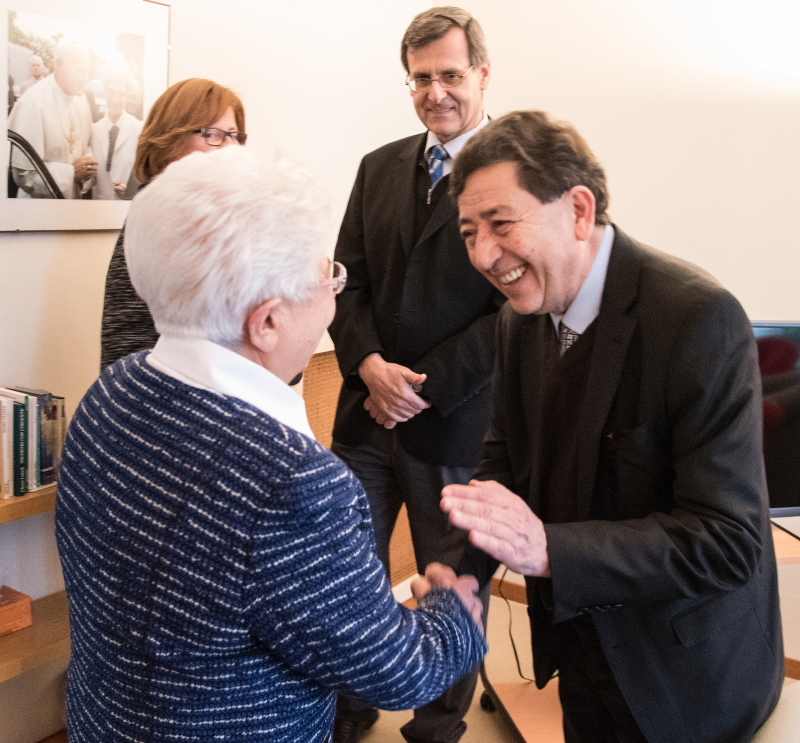 Khaled Bentounès, Sufi Master of the Alâwiiya, an Algerian born in 1949, is a man of peace. Living in France since the 1960s, he was behind many useful and worthwhile projects: from founding the Muslim Scouts of France, to l‘association Terres d’Europe; from the international talks at UNESCO for an Islam of peace, to the Alawaiya International Sufi Association which he founded, and an international mobilising campaign that the United Nations would institute a World LiveTogether Day. On February 26th, he visited the Focolare’s International Centre where he had a conversation with Focolare president, Maria Voce, and co-president Jesús Morán. During the course of the visit we had the opportunity to ask him a few questions. The first question was about his many projects over the years and now: “To give a quick answer to your question, I’m working on converting myself to the vision of a more fraternal world, more harmonious, a more just world. I work for this ‘circle’ of brotherhood, that I might see it before leaving this world, that I might see fulfilled the dream of a large portion of humanity. I don’t know if I’ll ever see it, but at least I have the assurance that I made a contribution.” When asked about the reasons for his hope in a time when brotherhood amongst peoples does not seem to have a place, Khaled Bentounès said that he found reasons to hope “first of all in the rich spritual legacy he received from his ancestors, for whom fraternity was inescapable. When I look at where I come from, I see but one uninterrupted line. “I happen to meet people involved in politics or the economy who describe a world heading to insoluble problems, and I say to them what our Masters say to us: ‘If they tell you that the world will end tomorrow, what should you do? Continue with your sowing and planting! Don’t worry too much!” So, we do what we have to do! We plant and we sow love, hope and brotherhood – whatever comes! Even if the end of the world will come tomorrow, as long as there is a minute left, you need to use it. Perhaps tomorrow will be another day, another world. And persevere!” Khaled Bentounès, who in 1986 had attended the meeting in Assisi with John Paul II and other religious leaders of the world, also has a knowledge of the Focolare that goes back to a meeting he had with Chiara Lubich in the 1980s. The relationship continued in France, up to his recent collaboration in assigning of the 2015 Chiara Lubich Fraternity Prize to the Vivre ensemble à Cannes Association which he promotes.
Khaled Bentounès, Sufi Master of the Alâwiiya, an Algerian born in 1949, is a man of peace. Living in France since the 1960s, he was behind many useful and worthwhile projects: from founding the Muslim Scouts of France, to l‘association Terres d’Europe; from the international talks at UNESCO for an Islam of peace, to the Alawaiya International Sufi Association which he founded, and an international mobilising campaign that the United Nations would institute a World LiveTogether Day. On February 26th, he visited the Focolare’s International Centre where he had a conversation with Focolare president, Maria Voce, and co-president Jesús Morán. During the course of the visit we had the opportunity to ask him a few questions. The first question was about his many projects over the years and now: “To give a quick answer to your question, I’m working on converting myself to the vision of a more fraternal world, more harmonious, a more just world. I work for this ‘circle’ of brotherhood, that I might see it before leaving this world, that I might see fulfilled the dream of a large portion of humanity. I don’t know if I’ll ever see it, but at least I have the assurance that I made a contribution.” When asked about the reasons for his hope in a time when brotherhood amongst peoples does not seem to have a place, Khaled Bentounès said that he found reasons to hope “first of all in the rich spritual legacy he received from his ancestors, for whom fraternity was inescapable. When I look at where I come from, I see but one uninterrupted line. “I happen to meet people involved in politics or the economy who describe a world heading to insoluble problems, and I say to them what our Masters say to us: ‘If they tell you that the world will end tomorrow, what should you do? Continue with your sowing and planting! Don’t worry too much!” So, we do what we have to do! We plant and we sow love, hope and brotherhood – whatever comes! Even if the end of the world will come tomorrow, as long as there is a minute left, you need to use it. Perhaps tomorrow will be another day, another world. And persevere!” Khaled Bentounès, who in 1986 had attended the meeting in Assisi with John Paul II and other religious leaders of the world, also has a knowledge of the Focolare that goes back to a meeting he had with Chiara Lubich in the 1980s. The relationship continued in France, up to his recent collaboration in assigning of the 2015 Chiara Lubich Fraternity Prize to the Vivre ensemble à Cannes Association which he promotes.  What is your relationship with the Focolare today? What are the common ideals? The sheikh responds: “I think that time has made this relationship fertile, and today’s meeting is also a fruit of the past. The friendship has remained constant. My presence here today in the International Centre and the meeting with the president, Maria Voce and with the co-president shows that it continues. We spoke about mutual trust, about the project of bringing forward a more fraternal vision of the world around us; about how Christian and Muslim spiritual movements can operate to offer their witness to those who wish to listen to them. We do not pretend to change the world alone, but it is a fact that there are links amongst different religious traditions that must be strengthened, so that we can walk together towards a common future that must be built each of us with the other, and not against the other.” He concluded the interview by sharing a dream: “There are science academies, mathematics academies, philosophy and military academies – and there are no peace academies. Why? Spiritual effort is not enough. We need to teach it. Peace is not something that descends from heaven, it is something around which you ‘work’. It is an existential state, a vision of the world, a behaviour. There is economic peace, there is social peace, there is political peace. Peace regards everything. Ecology is a form of peace with nature. We need to learn how you make peace. I have this project at heart! How do we link peace and art, peace and architecture? Can peace be transmitted to the future generations through art? How could we, through a solid economy, create knowledge sharing and wealth sharing in a way that is just, beyond land or country? This is a sacrosanct ‘work in progress’! This academy is not just a word, it is a concrete task that must accompany our efforts in every field.” He concluded: “I think this is our spirituality, which feeds the conscience to go farther, and to include everyone.”
What is your relationship with the Focolare today? What are the common ideals? The sheikh responds: “I think that time has made this relationship fertile, and today’s meeting is also a fruit of the past. The friendship has remained constant. My presence here today in the International Centre and the meeting with the president, Maria Voce and with the co-president shows that it continues. We spoke about mutual trust, about the project of bringing forward a more fraternal vision of the world around us; about how Christian and Muslim spiritual movements can operate to offer their witness to those who wish to listen to them. We do not pretend to change the world alone, but it is a fact that there are links amongst different religious traditions that must be strengthened, so that we can walk together towards a common future that must be built each of us with the other, and not against the other.” He concluded the interview by sharing a dream: “There are science academies, mathematics academies, philosophy and military academies – and there are no peace academies. Why? Spiritual effort is not enough. We need to teach it. Peace is not something that descends from heaven, it is something around which you ‘work’. It is an existential state, a vision of the world, a behaviour. There is economic peace, there is social peace, there is political peace. Peace regards everything. Ecology is a form of peace with nature. We need to learn how you make peace. I have this project at heart! How do we link peace and art, peace and architecture? Can peace be transmitted to the future generations through art? How could we, through a solid economy, create knowledge sharing and wealth sharing in a way that is just, beyond land or country? This is a sacrosanct ‘work in progress’! This academy is not just a word, it is a concrete task that must accompany our efforts in every field.” He concluded: “I think this is our spirituality, which feeds the conscience to go farther, and to include everyone.”
Events around the world celebrating the 8th anniversary of the death of Chiara Lubich on March 14, 2008
March 5, 2016, Brescia, Italy At the Catholic University: “Paul VI And Chiara Lubich, The Prophecy Of A Church That Makes Itself Dialogue Conference,” organised in collaboration with Paul VI Institute in continuation of the “Make Dialogue Days” held in Castel Gandolfo during November 2014. Among the presenters: Archbishop Vincenzo Zani, Secretary of the Congregation for Catholic Education; Lucia Albignente, who is in charge of the historical sector of the Chiara Lubich Centre; Father Angelo Maffeis, president of Paul VI Institute; Franco Monaco, politician and journalist; Alberto Lo Presti, professor of Political Theory at Sophia University Institute. March 6, 2016, Vicenza, Italy “Beyond The Borders Interreligious Conference” at Centro A. Onisto – Borgo S. Lucia, 51. Speakers: Emeritus Bishop of Aleppo, Armando Bortolaso; Imam of the Islamich community of Veneto, Dr Kamel Layachi and Rita Moussallem from the Focolare’s Centre for Interreligious Dialogue. The event will conclude with a flashmob in Piazza dei Signori. March 6, 2016, Olomouc, Czech Republic At the Catholic Chancery, a Cultural programme on the figure of Chiara Lubich as a sower of peace, followed by the celebration of the Mass by Archbishop Jan Graubner in cathedral. March 8, 2016, Ischia, Italy At the island’s Multi-Purpose Auditorium, 19:30, an evening programme on Work & Neigborhood. Civil engineer, Patience Mollè Lobè and business owner, Antonio Diana will be among the presenters. The moderator will be Carlo Cefaloni, Città Nuova journalist and expert on workplace dynamics. March 11, 2016, Caserta, Italy Music, testimonies and theater, at the Reggia di Caserta, 19:30, a reflection on the life and thought of Chiara Lubich titled: “The great attraction of the modern time”. Through the collaboration of the Diocese and the Directors of the Reggia. March 11, 2016, Rosario, Argentina A meeting at the Catholic University of Argentina (UCA) will reflect on the influence of the charism of unity on education. Presenters include: Dr Nieves Tapia, Coordinator of the Latin American Centre for Service Learning (CLAYSS). March 11-12, 2016, Fontem, Cameroon Workshop with music, drawing, poetry and theatre on “Chiara and Peace” for the students of 20 schools that belong to the Peace Education Project. Awards for the best pieces and for significant gestures of peace by the students themselves. The event will also be attended by civil authorities, traditional and religious authorities. March 12, 2016, Garden Grove, USA At Christ Cathedral, Garden Grove, holy Mass celebrated by Bishop Kevin William Vann, from the Diocese of Orange. In the afternoon, at the Academy Gym, a meeting on multiculturalism with representatives from various religions and ethnicities. March 12, 2016, Caracas, Venezuela Presentation of Chiara Lubich as a builder of dialogue and peace, who was awarded the 1996 UNESCO Peace Prize. The event will take place at the Institute For Religious Education (ITER) with people from different Churches. March 12, 2016, Brasilia, Brazil At the Paulist University (UNIP), at 15:30, 1996 UNESCO Peace Prize to Chiara Lubich. Followed by three moments of reflection: building peace in our personal relationships; in the dialogue amongst churches and religions and, in collaboration with the Institute of Immigration and Human Rights (IMDH), with mirgrants and refugees. Entrance fee: 1 kg of food for Haitian immigrants. March 12, 2016, Todi, Italy Tenth anniversary of the conferment of honorary citizenship on Chiara Lubich, at 15:30, in the Council Hall: “A Humanised Economy”, which will reflect on the Economy of Communion Project that was conceived by Chiara Lubich. Besides the Mayor of the city, interventions will be made by the President of the Region of Umbria, Cardinal Ennio Antonelli, Dr Giuseppe Argiolas and two business owners: Andrea Cruciani and Antonio Baldaccini. March 12, 2016, Castel Gandolfo, Italy At the Mariapolis Centre (Via de La Salle), 17:30, a programme of reflection on “The Culture Of Dialogue As A Means Of Peace.” The invitation is extended to ecclesiastical and civil leaders, and to the general public. Besides numerous testimonies, the keynote address will be given by Focolare president, Maria Voce. March 12, 2016, Manfredonia, Italy The 7th Edition of the Manfrodian Chiara Lubich Brotherhood Prize. In attendance: Vera Baboun, Mayor of Bethlehem and Pasquale Ferrara, diplomat and Secretary General of the European University Institute of Florence. Info March 12, 2016, Milan, Italy “Me Through You” Event, highlighting how the search for peace brings us closer to others and to our true self. The event will take place in three half-hour sections, each in a different location and at different times so that everyone can attend all the sections: at the Basilica of Saint Ambrose; Daughters of Mary Help of Christians Institute; Gonzaga Institute. Info March 12, 2016, Sarajevo, Bosnia Herzergovina An Open Day at the School of Theology dedicated to Chiara Lubich: “The Message of Dialogue and Peace.” Participants include people of Christian confessions, other faiths and people with no religious affiliation. Archbishop of Sarajevo, Cardinal Vinko Pujic, will celebrate Mass in cathedral. March 12, 2016, Genoa, Italy In the Minor Council Hall of the Piazza Ducale, a discussion on the Encyclical Letter Laudato si’ during a programme titled: “Religions Dialogue For Peace And the Environment.” Presenters will include: President of the Islamic Community of Genoa, Huseim salah; Chief Rabbi of Genoa, Giuseppe Momigliano; Buddhist monk, Gnanathilaka Mahauswewe; environmental engineer, Andrea Ponta; from the Focolare’s Centre for Interreligious Dialogue, Roberto Catalano March 12, 2016, Milan, Italy “Me Through You” Event, highlighting how the search for peace brings us closer to others and to our true self. The event will take place in three half-hour sections, each in a different location and at different times so that everyone can attend all the sections: at the Basilica of Saint Ambrose; Daughters of Mary Help of Christians Institute; Gonzaga Institute. Info March 12, 1016, Solingen, Germany At Zentrum Frieden Mariapolis Centre, “Living together in diversity”. The German Movement for Unity in Politics invites everyone to a roundtable with politicians and city administrators. It will be followed by a discussion on the integration of refugees. March 13, 2016, Kikwit, Democratic Republic of the Congo The city Mayor will the event at the Jesuit School where, in the presence of civil and religious authorities, a reflection on Peace and the Light of the Charism of Unity will be held. An event under the same title will be held the same day in Goma, Lubumbashi and in 16 cities of the Democratic Republic of the Congo March 13, 2016, Kinshasa, Democratic Republic of the Congo In the Great Hall of the Catholic University, in the presence of religious leaders from different Churches and religions, the academic and diplomatic world, a discussion on Chiara as Woman of Peace. An intervention will be given by the UNESCO representative in the Democratic Republic of the Congo. March 13, 2016, San Salvador, El Salvador Roundtable on “Peace that is born from dialogue” at the Università F. Gavidia, in the auditorium of Edificio E, 9:00 – 12:00 March 13, 2016, Lisbon, Portugal At the Franciscan Cultural Centre, a roundtable on ‘Chiara and Peace’ with members of the National Peace and Justice Commission, Dr Pedro Vaz Patto, President, Dr Graça Franco and António Marujo, journalists. March 13, 2016, Melbourne, Australia At the Mariapolis Centre, a celebration titled “Build peace in your own environment” , including testimonies on welcoming refugees. Presentation of Mark Ruse’s documentary film: “Politics for unity: making a world of difference”. Those in attendance include: Vicar General of the Diocese, Msgr Greg Bennet and leaders of ecclesial movements operating in Australia. March 13, 2016, Bujumbura, Burundi At Scheppen High School of Nyakabiga : “Merciful Like The Heavenly Father, Building Peace.” Presenters include: the Archbishop of Bujumbura, Evariste Ngoyagoye. March 13, 2016, Vung Tau, Vietnam Annual Mariapolis in Vietnam, in the presence of the Bishop, Joseph Tran Văn Toan, who will celebrate the Mass. The programme will also include the presentation of a documentary film on Chiara Lubich: Story, Charism, Culture. March 14, 2016, Houston, USA “Unity In Diversity” Interreligious Conference at 19:00 in the St. Thomas University, preceeded by the celebration of Catholic Mass in St. Basil Chapel by the Archbishop of Galveston-Houston, Cardinal Joseph Anthony Fiorenza. Presenters include: Cardinal Fiorenza; Imam Qasim Ahmed from the Islamic Institute; Rabbi Steve Morgen from the Beth Yeshurun Congregation; Therese Lee from the Focolare Movement. Info March 14, 2016, Manila, Philippines During the 50th anniversary celebration of the arrival of the Focolare in Asia, at De La Salle University, a symposium title: “The Charism Of Unity, A Timeless Legacy.” Numerous religious and civil leaders will present the reflections on Chiara Lubich’s contribution to the unity among Churches, religions, in society, an on Gospel reciprocity as a lifestyle that creates brotherhood. March 14, 2016, Rome, Italy At the Shrine of Our Lady of the Divine Love, at 18:30, Mass celebrated by Cardinal João Braz de Aviz, Prefect of the Congregation for Consecrated Life. Info March 14, 2016, Trent, Italy At the Demarchi Foundation, presenation of the book by I. Pedrini: “L’altro Novecento: nella testimonianza di Duccia Calderari.” Duccia’s biography, one of the first witness who followed Lubich in the birth of the Focolare, gives the opportunity to: Monica Ronchini, researcher; Giuseppe Ferrandi, Director of the History Museum of Trent; and Lucia Fronza Crepaz, ex-parliamentarian – to reflect on Chiara as a builder of peace. March 14, 2016, Havana, Cuba At Fray Bartolomé de las Casas Cultural Centre, a presentation of the figure of Chiara and peace, in the presence of Apostolic Nunzio, Archbishop Giorgio Lingua. Follwed by a concert by the Ars Longa Ancient Music Group. March 14, 2016, Verona, Italy At the Palazzo Gran Guardia: presentation of the “Chiara Lubich For A Culture Of Peace Brotherhood Prize, in the presence of Muslim theologian, Sharharzad Houshmand; Professor at the University of Padua, Giuseppe Milan; journalist Aurora Niosia March 16, 2016, Rome, Italy At the Chamber of Deputies, presentation of a manifesto with concrete proposals for peace, disarmament and industrial conversion.To receive it in Parliament, Youth for a United World who, with the Movement for Unity in Politics and participating schools, promoted the project, along with several deputies, the President of the Chamber, Boldrini and Exterior Minister, Gentiloni. March 16, 2016, Seville, Spain At the Metropolitan Seminary, Dr Manual Palma, vice director of the Theological Union of Seville, will speak on Jesus, Prince of Peace in the Spirituality of Chiara Lubich. Followed by a discussion on peace in Islam to be held by Imam Allah Bashar from the King Abdul Aziz Al Saud Mosque of Marbella, Malaga). He will also talk about his relationship with Chiara Lubich. March 18-20, 2016, Milan, Italy At the Fieramilanocity, during the international fair, an exposition on the Economy of Communion, presenting Lubich’s message of peace that continues to reach today’s world. Info March 19, 2016, Perth, Australia At Northbridge Square, screening of a video clip on “Peace” produced by young people, and a signature campaign appealing for peace #Signup4peace.
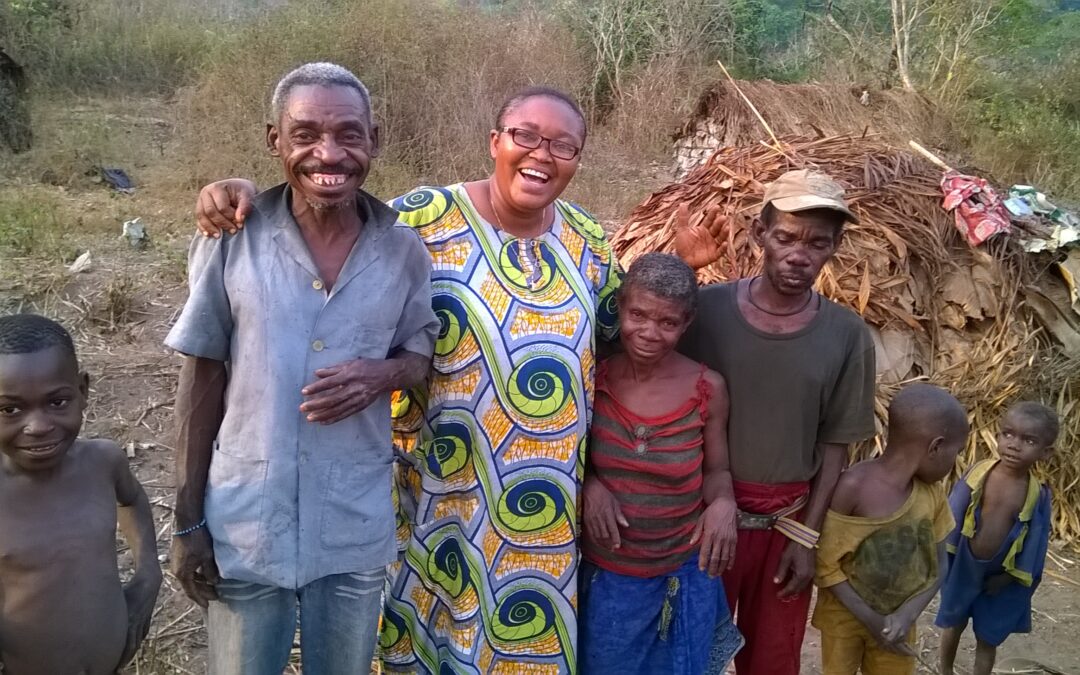
Nothing is the same in Bangui
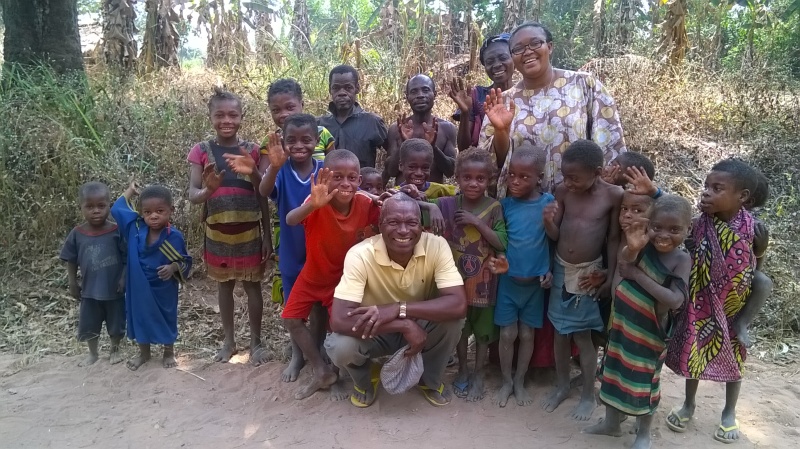 Nothing is the same in the capital city of the Central African Republic, after the visit of Pope Francis called it the “spiritual capital of the world.” Fidelia is a Congolese focolarina who has been living in Bangui for seven years. From 2012 until last September, she has seen with her own eyes the constant onslaught of armed clashes that over and over wiped out cities and villages, sowing seeds of horror and death everywhere. Now things appear quite changed and general opinion is that it was the visit of the Pope which marked the change in course. Fidelia comments: “Even in the provinces they’re talking about a before and an after. For example, the second round of presidential elections was held, and everything went fine. It was the same for the electoral campaign. But either one of them could have turned violent. Everyone is saying that when the Pope came, it was as if God himself had come, and so we can’t turn back now. They feel that the Pope took us ‘to the other shore’ and that we should continue moving forward all the way to true and lasting peace. Everyone seems convinced that if we want to reach social cohesian, forgiveness will be required, mercy and reconcilliation. You can sense a change of mentality beneath those words, a change of behaviour. Also the way we speak to one another – Muslims and Christians – has changed! Fidelia’s words are truly encouraging, not only for the Central African Republic, but for all the places in the world where the sound of weapons needs to stop so that solutions can be found through dialogue.
Nothing is the same in the capital city of the Central African Republic, after the visit of Pope Francis called it the “spiritual capital of the world.” Fidelia is a Congolese focolarina who has been living in Bangui for seven years. From 2012 until last September, she has seen with her own eyes the constant onslaught of armed clashes that over and over wiped out cities and villages, sowing seeds of horror and death everywhere. Now things appear quite changed and general opinion is that it was the visit of the Pope which marked the change in course. Fidelia comments: “Even in the provinces they’re talking about a before and an after. For example, the second round of presidential elections was held, and everything went fine. It was the same for the electoral campaign. But either one of them could have turned violent. Everyone is saying that when the Pope came, it was as if God himself had come, and so we can’t turn back now. They feel that the Pope took us ‘to the other shore’ and that we should continue moving forward all the way to true and lasting peace. Everyone seems convinced that if we want to reach social cohesian, forgiveness will be required, mercy and reconcilliation. You can sense a change of mentality beneath those words, a change of behaviour. Also the way we speak to one another – Muslims and Christians – has changed! Fidelia’s words are truly encouraging, not only for the Central African Republic, but for all the places in the world where the sound of weapons needs to stop so that solutions can be found through dialogue. 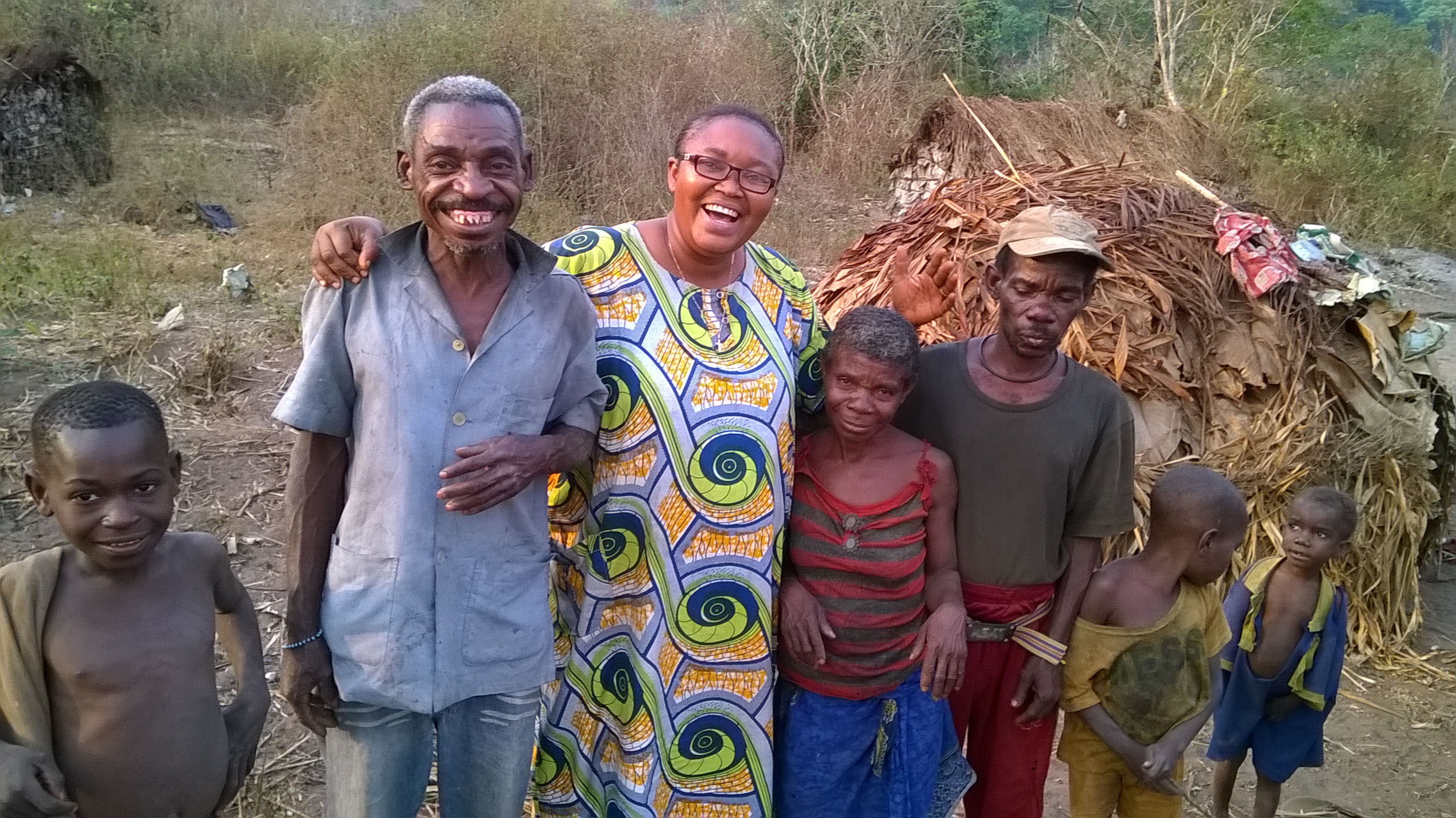 Fidelia also showed us other aspects of the life of Central Africa. She told us, for example, that in recent weeks she and three others of the Bangui had treked 400 km to reach the small city of Bambio, where a small community animated by the spirituality of the Focolare was begun with the help of a Capuchin missionary. Fidelia recounts: “We met several families there, many young people, all of them very motivated. Even though Father Umberto had to return to Italy, they carried on for all these years, continuing to gather and encourage one another in living the Gospel, with the help of a book by Chiara Lubich which he had left to them.” Meeting this community that had kept the flame of the Gospel burning for over twenty years, filled her with joy and amazement. But they had no idea that there was another surprise in store for them in that village. There are several Pygmy villages in the surrounding areas. They are known for their small stature and living primarily in the forests with their own customs and rules. Fidelia explained: “Many people think that it’s not easy to establish a relationship with them, but having to cross through their settlements, it was only natural that we stop and visit with them, and tell them what we were doing in those parts. Encouraged by their openness and their willingness, we got to know each other and shared about the values we believe in. Some of them showed great feeling for the spirituality of unity that we told them about. We agreed to return at Easter, to continue knowing and sharing with one another.”
Fidelia also showed us other aspects of the life of Central Africa. She told us, for example, that in recent weeks she and three others of the Bangui had treked 400 km to reach the small city of Bambio, where a small community animated by the spirituality of the Focolare was begun with the help of a Capuchin missionary. Fidelia recounts: “We met several families there, many young people, all of them very motivated. Even though Father Umberto had to return to Italy, they carried on for all these years, continuing to gather and encourage one another in living the Gospel, with the help of a book by Chiara Lubich which he had left to them.” Meeting this community that had kept the flame of the Gospel burning for over twenty years, filled her with joy and amazement. But they had no idea that there was another surprise in store for them in that village. There are several Pygmy villages in the surrounding areas. They are known for their small stature and living primarily in the forests with their own customs and rules. Fidelia explained: “Many people think that it’s not easy to establish a relationship with them, but having to cross through their settlements, it was only natural that we stop and visit with them, and tell them what we were doing in those parts. Encouraged by their openness and their willingness, we got to know each other and shared about the values we believe in. Some of them showed great feeling for the spirituality of unity that we told them about. We agreed to return at Easter, to continue knowing and sharing with one another.”
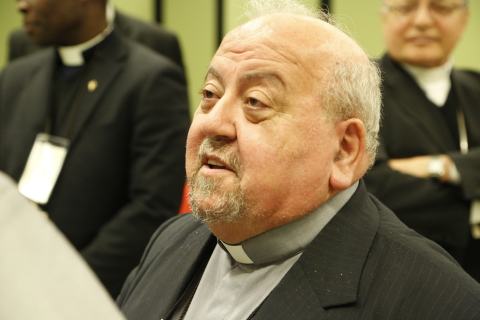
The Syrian Church refuses to die
 Peace as a prerequisite to any other action in favour of Syria: is the opinion of Bishop Samir Nassar, Maronite Archbishop of Damascus, during the convention of the Bishop friends of the Focolare held in Castelgandolfo from 23to 26 February, on the eve of the ceasefire in the Country. It is Bishop Nassar’s second time to attend this event on the hills of Rome and he said: “the first meeting had enriched me so much that I decided to return… I come from Damascus, a place tormented by violence and war, and this is a break which allows me, with my brother bishops and the attention of the Focolare, to look beyond, and have a more global vision of the future of the world, the Church, and Christians in the Middle East. Thus it is fraternal support which this event gives me, for the life of my diocese.” In the face of the war conditions his country is undergoing, Bishop Nassar forcefully stresses that “the Church of Syria refuses to die and is holding onto the hope of concrete signs. In 2015, for example, we started to build three chapels precisely when the people were leaving, to imbue hope to the faithful in the outskirts and where people no longer came to the cathedral for security reasons. We keep hope alive also through the vocations: there are young priests and seminarians who arrive, and this a sign of vitality and hope for the future.”
Peace as a prerequisite to any other action in favour of Syria: is the opinion of Bishop Samir Nassar, Maronite Archbishop of Damascus, during the convention of the Bishop friends of the Focolare held in Castelgandolfo from 23to 26 February, on the eve of the ceasefire in the Country. It is Bishop Nassar’s second time to attend this event on the hills of Rome and he said: “the first meeting had enriched me so much that I decided to return… I come from Damascus, a place tormented by violence and war, and this is a break which allows me, with my brother bishops and the attention of the Focolare, to look beyond, and have a more global vision of the future of the world, the Church, and Christians in the Middle East. Thus it is fraternal support which this event gives me, for the life of my diocese.” In the face of the war conditions his country is undergoing, Bishop Nassar forcefully stresses that “the Church of Syria refuses to die and is holding onto the hope of concrete signs. In 2015, for example, we started to build three chapels precisely when the people were leaving, to imbue hope to the faithful in the outskirts and where people no longer came to the cathedral for security reasons. We keep hope alive also through the vocations: there are young priests and seminarians who arrive, and this a sign of vitality and hope for the future.”
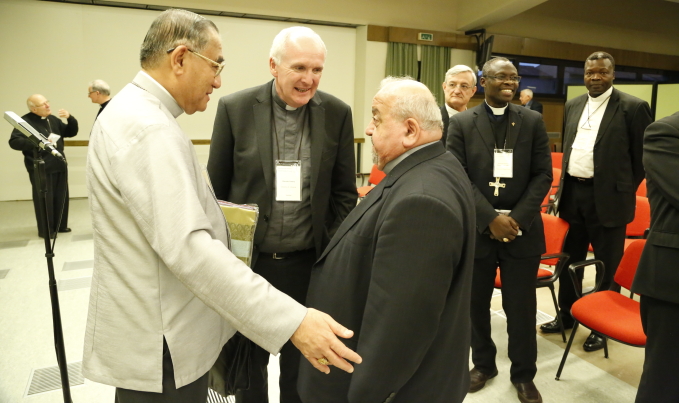 The Archbishop expressed his gratitude also for the work of the Focolare Movement, that continues to be present in Syria despite the conflict: “For what I see in Damascus, the Movement is really doing an excellent job with the youth, families and children – he affirmed. It encourages the people to see the future with faith and hope: this is support for the community, a sign of the Spirit that helps us pursue this path.» Also in this regard, the news of the arrival of a new focolarina in Damscus «is another sign that in Syria there is a Church that looks to the future and is not afraid to die. Your presence is a sign of hope and renewal, and I thank you all so much». It is a sign which is even more important in a country whose «people are tired of the war, suffering, and poverty, and the news is not encouraging. Our mission as the Church and as the Focolare is to give courage.”
The Archbishop expressed his gratitude also for the work of the Focolare Movement, that continues to be present in Syria despite the conflict: “For what I see in Damascus, the Movement is really doing an excellent job with the youth, families and children – he affirmed. It encourages the people to see the future with faith and hope: this is support for the community, a sign of the Spirit that helps us pursue this path.» Also in this regard, the news of the arrival of a new focolarina in Damscus «is another sign that in Syria there is a Church that looks to the future and is not afraid to die. Your presence is a sign of hope and renewal, and I thank you all so much». It is a sign which is even more important in a country whose «people are tired of the war, suffering, and poverty, and the news is not encouraging. Our mission as the Church and as the Focolare is to give courage.”
As to the international communities, Bishop Nassar saw with regret that “the world says it is very concerned about Syria, but each one says so in his own way: so much so that in the end nobody really is working for the interest of the Country.» And he launched an appeal: «Stop the war. If the war does not stop, all we are doing is useless. Let’s bring back peace and then rebuild charity and love of the Church. As Pope Francis himself says: the poor do not have a religion, only man counts. We are first of all awaiting steps towards peace, the rest is secondary.”
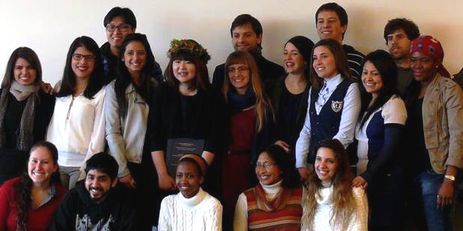
The 100th degree conferred by Sophia University
 “When the administrative staff informed us that it was the 100th degree to be conferred, I thought it couldn’t have been otherwise. Each graduate has marked an important moment in our journey, but the fact that the hundredth dissertation was to be conferred precisely on Akie Otomo, was significant for us.” comments Judith Povilus, vice-president of Sophia University Institute, who accompanied the academic path of Akie Otomo and Yukie Ohi, two students of the Buddhist movement, Risshō Kōsei-kai, who have completed a degree in Foundations and Perspectives of a Culture of Unity. Yukie Ohi graduated in the summer semester last year, while on 11 February 2016 it was Akie Otomo’s turn. The success of her research was greeted by a warm applause emphasizing its appreciation by the whole academic community. The subject of the thesis, a comparison between “The hoza in Risshō Kōsei-kai” and “the life of unity in the spirituality of the Focolare Movement”, matured in a climate of mutual listening and acceptance with the active involvement of the two professors who guided the student: Anna Pelli, Professor of Philosophy, and Antonella Deponte, Professor of Psychology. “The focal point is of great interest as it deals with two such diverse associations, the Risshō Kōsei-kai and the Focolare Movement, yet their pulse beats as one: communion. And this was accomplished by implementing two unique practices: on the one hand the hoza, which is characteristic of the “cycle of compassion”, whereby a group of people meet to share their personal problems and find mutual support in the light of the teachings of Buddha, and on the other hand, the “spiritual communion” guided by the words of the Gospel, which makes it possible for people to share their experiences and to walk together towards God.” As the work progressed, it became increasingly clear that it could only be understood if channelled into the prophetic experience resulting from the meetings of dialogue between Nikkyo Niwano and Chiara Lubich, two eminent figures of the twentieth century: the first, the Buddhist founder and leader of Risshō Kōsei-kai, the only non-Christian observer at Vatican II; and the second, a Catholic woman who inspired a worldwide movement of spiritual renewal that speaks to the hearts of men and women of different faiths and cultures. Over the years, many similarities have led them to work together effectively for peace and mutual understanding between people and nations, reaching the point of giving their own particular experience of faith. Among other things, the thesis documents the exchange of correspondence between them, citing some paragraphs which allowed the Japanese student to focus in a surprising way on some of the cornerstones of the culture of unity, which, in her views, open up dialogue and sharing. “It was on this foundation,” says Professor Pelli, “that the intuition that guided Akie in her research took shape. In the process, each of us experienced the meeting point of that which is real dwelling in ourselves and the truth dwelling in the other; we discovered that this connection was something that in a certain way already belonged to us while at the same time it opened us up to broader perspectives. I am convinced that this experience is the fruit of being in this privileged place, at Sophia University, which strives daily to ensure that life and thought, intellectual pursuit and existential approach work towards a substantial converging towards the good, through the reciprocal gift of our diversity.” “I am very grateful for the time I spent in Sophia,” Akie concluded in her presentation. “Not only have I come closer to knowing Chiara Lubich’s thoughts, which I appreciate so much, but also to get to know more deeply the life and message of Nikkyo Niwano. I wish to take ahead this research. I want to be more committed in my daily life so that through the contribution of all religions, we can bring about harmony, unity and peace in the world.” Souce: Sophia University Institute Online
“When the administrative staff informed us that it was the 100th degree to be conferred, I thought it couldn’t have been otherwise. Each graduate has marked an important moment in our journey, but the fact that the hundredth dissertation was to be conferred precisely on Akie Otomo, was significant for us.” comments Judith Povilus, vice-president of Sophia University Institute, who accompanied the academic path of Akie Otomo and Yukie Ohi, two students of the Buddhist movement, Risshō Kōsei-kai, who have completed a degree in Foundations and Perspectives of a Culture of Unity. Yukie Ohi graduated in the summer semester last year, while on 11 February 2016 it was Akie Otomo’s turn. The success of her research was greeted by a warm applause emphasizing its appreciation by the whole academic community. The subject of the thesis, a comparison between “The hoza in Risshō Kōsei-kai” and “the life of unity in the spirituality of the Focolare Movement”, matured in a climate of mutual listening and acceptance with the active involvement of the two professors who guided the student: Anna Pelli, Professor of Philosophy, and Antonella Deponte, Professor of Psychology. “The focal point is of great interest as it deals with two such diverse associations, the Risshō Kōsei-kai and the Focolare Movement, yet their pulse beats as one: communion. And this was accomplished by implementing two unique practices: on the one hand the hoza, which is characteristic of the “cycle of compassion”, whereby a group of people meet to share their personal problems and find mutual support in the light of the teachings of Buddha, and on the other hand, the “spiritual communion” guided by the words of the Gospel, which makes it possible for people to share their experiences and to walk together towards God.” As the work progressed, it became increasingly clear that it could only be understood if channelled into the prophetic experience resulting from the meetings of dialogue between Nikkyo Niwano and Chiara Lubich, two eminent figures of the twentieth century: the first, the Buddhist founder and leader of Risshō Kōsei-kai, the only non-Christian observer at Vatican II; and the second, a Catholic woman who inspired a worldwide movement of spiritual renewal that speaks to the hearts of men and women of different faiths and cultures. Over the years, many similarities have led them to work together effectively for peace and mutual understanding between people and nations, reaching the point of giving their own particular experience of faith. Among other things, the thesis documents the exchange of correspondence between them, citing some paragraphs which allowed the Japanese student to focus in a surprising way on some of the cornerstones of the culture of unity, which, in her views, open up dialogue and sharing. “It was on this foundation,” says Professor Pelli, “that the intuition that guided Akie in her research took shape. In the process, each of us experienced the meeting point of that which is real dwelling in ourselves and the truth dwelling in the other; we discovered that this connection was something that in a certain way already belonged to us while at the same time it opened us up to broader perspectives. I am convinced that this experience is the fruit of being in this privileged place, at Sophia University, which strives daily to ensure that life and thought, intellectual pursuit and existential approach work towards a substantial converging towards the good, through the reciprocal gift of our diversity.” “I am very grateful for the time I spent in Sophia,” Akie concluded in her presentation. “Not only have I come closer to knowing Chiara Lubich’s thoughts, which I appreciate so much, but also to get to know more deeply the life and message of Nikkyo Niwano. I wish to take ahead this research. I want to be more committed in my daily life so that through the contribution of all religions, we can bring about harmony, unity and peace in the world.” Souce: Sophia University Institute Online
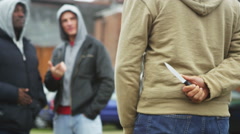
The Gospel lived: fragments of fraternity
 “Reinhard from Austria, aged 55, tells us his experience: «A few years ago – during my work shift at the post office – I was stabbed by a youth suffering from psychic problems: I had 27 stab wounds. The young man only stopped when certain I was about to die, I looked him in the eyes and said: “I forgive you.” It was only then that he let the knife in his hands fall to the ground. The psychologists sustained that I had not suffered any trauma. They had to operate on me and I lost a lung and can walk with the help of crutches, but I am miraculously alive. Today, many ask me to talk about the incident and why I forgave him: teachers, priests, young people, Christians, Muslim and atheists. I have met around 2,000 people as of now, and every time I can’t help but speak about the art of Loving, because for years, including that fateful day, every morning I launch the love dice. Many young people, after the meetings, tell me they want to know more about this lifestyle. Every time they invite me, it is a marvellous occasion to spread the ideal of fraternity, the Golden Rule, in the region of Vorarlberg where I live. An atheist boy, some time ago told me: “You know, I’m not interested in religion, but your way of living interests me a lot!”.” (Feldkirch, Austria ) “One evening, we spoke with Lina on the phone. She was our friend who lives in Damascus (Syria). She told us about the difficulties of living in a warring environment: the risks due to the frequent explosions of mortar shells; difficulties arising from lack of food, water and clothes, the continuous lack of electricity and heating… in short, she did not ask us for anything. But upon hearing her words, we felt deep inside that though far away, we had to do something! We immediately shared this idea with other friends… Right away, we were surprised how many things started arriving…. They gave what they could! Families, young couples, adolescents, children, communities, parishes, other associations….Without realising it, a competition of love had begun. For example, a lady sold some gold trinkets and gave us the money. A boy who had celebrated his birthday had asked his guests, in place of birthday gifts, to contribute for his Syrian brethren. A family shared its life savings because “we were keeping them for special occasions! And helping someone is one of them!”… So in a short time, we collected €20,000! With this sum we managed to help many Syrian families in need, bringing them food, clothes, the basic necessities… but above all, we brought them a hug as big as the world, making them feel that they were no longer abandoned, but part of a huge family!” (Rossana and Emanuele, Italy) Source: United World Project
“Reinhard from Austria, aged 55, tells us his experience: «A few years ago – during my work shift at the post office – I was stabbed by a youth suffering from psychic problems: I had 27 stab wounds. The young man only stopped when certain I was about to die, I looked him in the eyes and said: “I forgive you.” It was only then that he let the knife in his hands fall to the ground. The psychologists sustained that I had not suffered any trauma. They had to operate on me and I lost a lung and can walk with the help of crutches, but I am miraculously alive. Today, many ask me to talk about the incident and why I forgave him: teachers, priests, young people, Christians, Muslim and atheists. I have met around 2,000 people as of now, and every time I can’t help but speak about the art of Loving, because for years, including that fateful day, every morning I launch the love dice. Many young people, after the meetings, tell me they want to know more about this lifestyle. Every time they invite me, it is a marvellous occasion to spread the ideal of fraternity, the Golden Rule, in the region of Vorarlberg where I live. An atheist boy, some time ago told me: “You know, I’m not interested in religion, but your way of living interests me a lot!”.” (Feldkirch, Austria ) “One evening, we spoke with Lina on the phone. She was our friend who lives in Damascus (Syria). She told us about the difficulties of living in a warring environment: the risks due to the frequent explosions of mortar shells; difficulties arising from lack of food, water and clothes, the continuous lack of electricity and heating… in short, she did not ask us for anything. But upon hearing her words, we felt deep inside that though far away, we had to do something! We immediately shared this idea with other friends… Right away, we were surprised how many things started arriving…. They gave what they could! Families, young couples, adolescents, children, communities, parishes, other associations….Without realising it, a competition of love had begun. For example, a lady sold some gold trinkets and gave us the money. A boy who had celebrated his birthday had asked his guests, in place of birthday gifts, to contribute for his Syrian brethren. A family shared its life savings because “we were keeping them for special occasions! And helping someone is one of them!”… So in a short time, we collected €20,000! With this sum we managed to help many Syrian families in need, bringing them food, clothes, the basic necessities… but above all, we brought them a hug as big as the world, making them feel that they were no longer abandoned, but part of a huge family!” (Rossana and Emanuele, Italy) Source: United World Project

Maria Voce: the relevance of dialogue in the world today
 Having mentioned some of the challenges in the world today – the threats to peace and the search for and affirmation of identity – Maria Voce offered some reflections arising out of Chiara Lubich’s charismatic experience of dialogue. Her talk was given on 26th January at the India International Centre in New Delhi If we seek to grasp the specific characteristics of the Movement’s dialogue, the first of them can be seen as its foundation. Chiara [Lubich] always taught us to look to God as the one Father of all and as a result, to see every man or woman we meet as his son or daughter, and therefore our brother or sister. Chiara herself said this, writing to her companions in 1947: “We must keep our gaze fixed on the one Father of so many children, and then consider all people as children of that one Father. Our thoughts and affections must go beyond every human limit and acquire the habit of aiming constantly towards this universal brotherhood in our one Father: God.”[i] I remember how happy Chiara was when she told us what our dear Professor Kala Acharya said after their meeting in India in 2001: “Each had grown up enclosed behind its own walls, admiring its own garden, without knowing that on the other side of these very high walls there are beautiful gardens to behold. Now is the time to break down the walls and discover each other’s garden.” If this is the foundation, the dialogical method that Chiara taught us cannot be other than love! It is a dialogue among brothers and sisters, therefore a dialogue among people, not between ideologies or thought systems. Dialogue must necessarily be supported and sustained by mercy, compassion and charity, summed up in the Golden Rule [do to others as you would have them do to you”. Love and mercy, once put at the basis of dialogue, not only enable us to see the people alongside us in a new light, but help us discover diversity, whatever it is, as a gift. Chiara said: “Whoever is close to me has been created as a gift for me and I have been created as a gift for those near me. On earth everything is in a relationship of love with everything else: each thing with each thing. But we need to be Love in order to find the golden thread of love between beings”[ii]. Nowadays, contacts are being multiplied, due to the great many possibilities offered by all the communications media. But these become short, ephemeral, lacking meaning, while at the same time relationships break down or diminish. Only when the I-you relationship includes a love which goes beyond purely natural dimensions, can contacts be transformed into relationships, and we can truly build networks of brotherhood. In this regard religion is called to help give meaning and a soul, as well as true and satisfying answers, to humankind which is so confused and lost and traumatised today. Over the years, we have seen the irreplaceable role religions have to lead their faithful to recognise one another reciprocally, to respect one another, to collaborate and become front runners in building a peaceful world, where justice and respect for the human person prevail. Chiara Lubich, founder of the Focolare Movement, lived and spread this adventure to all those who are inspired by her, an adventure in which any kind of love is not enough, but it is necessary rather to learn an art, as she herself said: the “art of loving”. … If we were all to live this “art”, we would be practising some of the indispensible principles for dialogue among religions. I’ll mention just a few: Unity in diversity. It is necessary for every religion to be welcomed in full respect for all that it considers sacred according to its own tradition. Proselytism and syncretism are incompatible with peace. Reciprocity in relationships In sharing a lived spirituality, each person is enriched not only without risk of compromising their own faith, but with the opportunity to deepen it. Equality in our shared human dignity This is the key to any type of harmonious relationship with a view to collaborating in building democratic societies founded on peace. Many of you know that the charism of Chiara Lubich, founder of the focolare Movement, can be summed up in a single word: unity. It is the specific vocation of the whole Movement, which is committing itself to live unity this year with greater intensity. We want to work and commit ourselves on all fronts to contribute to building a united world, to bring unity peace and reciprocity in every place. Faithfulness to our charism demands this, faithfulness to the first intuition that Chiara expressed in 1946: “In our hearts, one thing is clear: unity is what God wants from us. We live in order to be one with Him and among us and with everyone. This splendid vocation binds us to heaven and immerses us in a universal brotherhood. Nothing could be greater. For us, there could be no loftier Ideal.”[iii]». New Delhi 20th January 2016 [i] C. LUBICH, L’arte di amare, Città Nuova, Roma 2005, p. 29 [ii] C. LUBICH, Scritti Spirituali 1, “L’attrattiva del tempo moderno”, Città Nuova, Roma 1978, 140. [iii]». Cf. C. Lubich, Unity and Jesus Forsaken, New City New York 1985, p. 26.
Having mentioned some of the challenges in the world today – the threats to peace and the search for and affirmation of identity – Maria Voce offered some reflections arising out of Chiara Lubich’s charismatic experience of dialogue. Her talk was given on 26th January at the India International Centre in New Delhi If we seek to grasp the specific characteristics of the Movement’s dialogue, the first of them can be seen as its foundation. Chiara [Lubich] always taught us to look to God as the one Father of all and as a result, to see every man or woman we meet as his son or daughter, and therefore our brother or sister. Chiara herself said this, writing to her companions in 1947: “We must keep our gaze fixed on the one Father of so many children, and then consider all people as children of that one Father. Our thoughts and affections must go beyond every human limit and acquire the habit of aiming constantly towards this universal brotherhood in our one Father: God.”[i] I remember how happy Chiara was when she told us what our dear Professor Kala Acharya said after their meeting in India in 2001: “Each had grown up enclosed behind its own walls, admiring its own garden, without knowing that on the other side of these very high walls there are beautiful gardens to behold. Now is the time to break down the walls and discover each other’s garden.” If this is the foundation, the dialogical method that Chiara taught us cannot be other than love! It is a dialogue among brothers and sisters, therefore a dialogue among people, not between ideologies or thought systems. Dialogue must necessarily be supported and sustained by mercy, compassion and charity, summed up in the Golden Rule [do to others as you would have them do to you”. Love and mercy, once put at the basis of dialogue, not only enable us to see the people alongside us in a new light, but help us discover diversity, whatever it is, as a gift. Chiara said: “Whoever is close to me has been created as a gift for me and I have been created as a gift for those near me. On earth everything is in a relationship of love with everything else: each thing with each thing. But we need to be Love in order to find the golden thread of love between beings”[ii]. Nowadays, contacts are being multiplied, due to the great many possibilities offered by all the communications media. But these become short, ephemeral, lacking meaning, while at the same time relationships break down or diminish. Only when the I-you relationship includes a love which goes beyond purely natural dimensions, can contacts be transformed into relationships, and we can truly build networks of brotherhood. In this regard religion is called to help give meaning and a soul, as well as true and satisfying answers, to humankind which is so confused and lost and traumatised today. Over the years, we have seen the irreplaceable role religions have to lead their faithful to recognise one another reciprocally, to respect one another, to collaborate and become front runners in building a peaceful world, where justice and respect for the human person prevail. Chiara Lubich, founder of the Focolare Movement, lived and spread this adventure to all those who are inspired by her, an adventure in which any kind of love is not enough, but it is necessary rather to learn an art, as she herself said: the “art of loving”. … If we were all to live this “art”, we would be practising some of the indispensible principles for dialogue among religions. I’ll mention just a few: Unity in diversity. It is necessary for every religion to be welcomed in full respect for all that it considers sacred according to its own tradition. Proselytism and syncretism are incompatible with peace. Reciprocity in relationships In sharing a lived spirituality, each person is enriched not only without risk of compromising their own faith, but with the opportunity to deepen it. Equality in our shared human dignity This is the key to any type of harmonious relationship with a view to collaborating in building democratic societies founded on peace. Many of you know that the charism of Chiara Lubich, founder of the focolare Movement, can be summed up in a single word: unity. It is the specific vocation of the whole Movement, which is committing itself to live unity this year with greater intensity. We want to work and commit ourselves on all fronts to contribute to building a united world, to bring unity peace and reciprocity in every place. Faithfulness to our charism demands this, faithfulness to the first intuition that Chiara expressed in 1946: “In our hearts, one thing is clear: unity is what God wants from us. We live in order to be one with Him and among us and with everyone. This splendid vocation binds us to heaven and immerses us in a universal brotherhood. Nothing could be greater. For us, there could be no loftier Ideal.”[iii]». New Delhi 20th January 2016 [i] C. LUBICH, L’arte di amare, Città Nuova, Roma 2005, p. 29 [ii] C. LUBICH, Scritti Spirituali 1, “L’attrattiva del tempo moderno”, Città Nuova, Roma 1978, 140. [iii]». Cf. C. Lubich, Unity and Jesus Forsaken, New City New York 1985, p. 26.
Ceasefire in Syria
Pascal Bedros, a focolarino from Aleppo writes:“With the ceasefire, a calm night enveloped the whole city of Aleppo. Up to the last moment, no one expected it to go through. It’s a first step towards building dialogue and peace. We thank God and the people of good will for this gift. It was a nice gift for the children who slept a peaceful night in the arms of their parents. This weekend we’ll get together in Aleppo, following a long period in which it was impossible for us to come together and share our life in the spirituality of the Focolare which has kept us going in these long years and also illuminated our social effort.” The ceasefire in Syria, the first since the beginning of the conflict in 2011, negotiated by Russia and the United States, began at midnight of February 26th. United Nations special envoy, Staffan De Mistura, announced that peace talks could resume on March 7th if the ceasefire holds. Testimony of the Focolare community in Syria (May 2015) https://vimeo.com/127010352
Lublin (Poland): Conflict, dialogue and the culture of unity
Download Call for papers Twenty years ago, in 1996, Chiara Lubich was awarded an Honorary Doctorate in Social Sciences from the Catholic University of Lublin in Poland, for having promoted dialogue as the key driving force for peacekeeping and peace-building in every context. Chiara Lubich’s ‘charism of unity’ is at the forefront of dialogue today. The theory and praxis of dialogue has influenced the lives of many people of different cultures and religions, who have committed themselves to her spiritual vision that is embodied in the culture of unity. In a world where ethnic and religious differences often lead to violent conflicts, the spread of the charism of Chiara Lubich has contributed to constructive dialogue among persons, generations, social classes and nations. Five areas of interest have been identified. 1. Dialogue among communities: between charism and institutions 2. Conflict resolution through dialogue 3. The agents of political change and participation processes 4. Individual processes, interpersonal and intergroup levels involved in conflict management and its prevention 5. Dialogue among disciplines and transdisciplinarity Preference will be accorded those contributions able to use multidisciplinary approaches, coming from psychology, economics, pedagogy, politology, sociology and communication studies. A particular characteristic of innovative submissions should consist in a disciplined effort to bridge gaps between theory and practices. Only new and unpublished papers, which can bring added value to the empirical, theoretical, prescriptive and practical understanding and creative engagement of conflict and dialogue, will be selected. The study of the methodological implications of the different forms of conflicts has provoked increasing interest in many disciplines: psychology, economics, sociology, education and media studies, management and organizational studies, human rights and so on. Today’s multi-faith and multicultural society has to cope with a global challenge: mutual understanding and resolving conflicts. In our contemporary world, dialogue is hailed as a progressive necessary force, and is heralded as the main currency of statecraft, diplomacy, negotiation, mediation and peace-building. Hence, experts from different backgrounds agreed that it is imperative to explore intercultural and interreligious dialogue as key to promote mutual understanding among people, cultures, institutions and religions. Call for papers Chiara Lubich Jubilee Conference Programme Congress Organizers Hotel Accommodation Registration Form Sponsors
Keynote speakers:
- Adam Biela, psychology and sociology (John Paul II Catholic University of Lublin, Poland)
- Catherine Belzung, neurobiologist (University François Rabelais of Tours, France)
- Mauro Magatti, sociologist (Catholic University of Sacred Heart of Milan, Italy)
- Katarzyna Olbrycht, pedagogist (University of Silesia, Katowice, Poland)
- John Raven, psychology, The University of Manchester, Scotland and John Paul II Catholic University of Lublin, Poland
- Marina Santi, pedagogist (University of Padova, Italy)
- Bogusław Śliwerski, pedagogist (Chairman of the Committee of Pedagogical Sciences PAN, Poland)
- Krzysztof Wielecki, sociologist (Cardinal Stefan Wyszynski University, Warsaw, Poland)
- Stefano Zamagni, economist (University of Bologna, Italy)
Important dates:
30th March 2016 – Deadline for submissions of abstracts and registration 20th April 2016 – Reply from the scientific committee 20th May 2016 – Deadline for submissions of extended papers and payment
Contacts:
For the congress registration and the paper submission, please email to: congresslublin2016@gmail.com web: http://www.kul.pl/art_31023.html
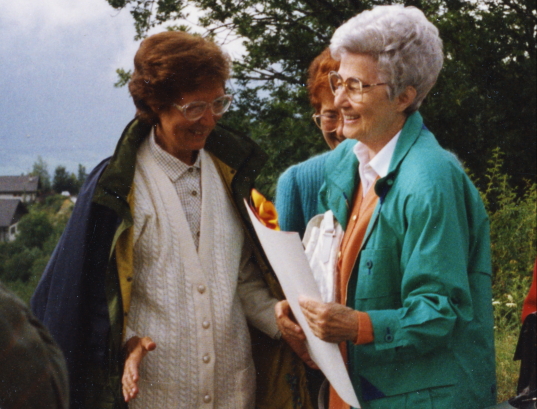
Claretta Dal Rì and the adventure of unity
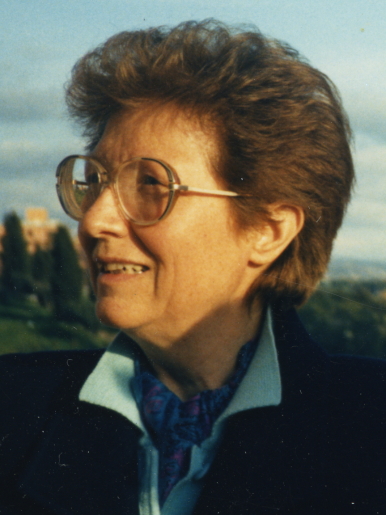 “December 1948. This evening, the whole crème of Catholic society in Rovereto was gathered in my father’s study: the presidents of the Catholic Youth, the Saint Vincent Society, the Daughters of Mary, the Franciscan Third Order and naturally the pastor. Plus, eighteen year-old me was there as the president of Student Youth. The speaker was Valeria Ronchetti. There was something in her that took me by surprise. She talked about God, but in a way that I’ve never heard any other person talk – until then. It wasn’t anything external as with a scholar; Valeria possessed God! She expressed something that urged her from the heart and that overflowed with force . . . I was in a state of shock. It was a war story . . . They were experiences of what she, with her friends, had found in the Gospel, how they had discovered God who is Love. It was a torrent of living water that completely engulfed me. In the candlelight – since the electricity had gone out – a quite serious-looking, elderly gentleman asked her in a rather ironic tone: ‘But aren’t you afraid, Miss, to excite the youth in this way? And if it’s just a flash in the pan?’ Valeria was a really enthusiastic type of person, all fire in her words and in her answers. She jumped to her feet and responded with energy: ‘What? Aren’t you afraid of exciting the youth over sport, music, paintings, mountains – all those beautiful things that pass away? And you’re afraid of exciting them over God who is the only thing that remains?’
“December 1948. This evening, the whole crème of Catholic society in Rovereto was gathered in my father’s study: the presidents of the Catholic Youth, the Saint Vincent Society, the Daughters of Mary, the Franciscan Third Order and naturally the pastor. Plus, eighteen year-old me was there as the president of Student Youth. The speaker was Valeria Ronchetti. There was something in her that took me by surprise. She talked about God, but in a way that I’ve never heard any other person talk – until then. It wasn’t anything external as with a scholar; Valeria possessed God! She expressed something that urged her from the heart and that overflowed with force . . . I was in a state of shock. It was a war story . . . They were experiences of what she, with her friends, had found in the Gospel, how they had discovered God who is Love. It was a torrent of living water that completely engulfed me. In the candlelight – since the electricity had gone out – a quite serious-looking, elderly gentleman asked her in a rather ironic tone: ‘But aren’t you afraid, Miss, to excite the youth in this way? And if it’s just a flash in the pan?’ Valeria was a really enthusiastic type of person, all fire in her words and in her answers. She jumped to her feet and responded with energy: ‘What? Aren’t you afraid of exciting the youth over sport, music, paintings, mountains – all those beautiful things that pass away? And you’re afraid of exciting them over God who is the only thing that remains?’  Total silence: I was completely taken. The mountains, music, paintings . . . Hadn’t I myself tried all of that? I had tried every beautiful and wholesome thing you could ask for, it had completely occupied me for years even, but none of it had ever really filled me up. I had always been left unsatisfied in my search. Well, then, here was the point . . . this is what I sought: it was God who was the answer to that recent period of dissatisfaction, of loneliness, of the confusion among my friends, of activism, of boredom . . . Everyone left my father’s study smiling, exchanging cheerful goodbyes with Valeria. But I didn’t really think we had actually understood what she was telling us. I asked myself: if she could have what she had just talked about – and it was clear that she did – why can’t I have it too? And at this point I recall a saying attributed to Saint Augustine: ‘If this one and that one, then why not me?’ I extended my hand to Valeria and told her: ‘I want to do what you have done, help me!’ We said goodbye and agreed to meet the next day. And the adventure began!” Source: Città Nuova online
Total silence: I was completely taken. The mountains, music, paintings . . . Hadn’t I myself tried all of that? I had tried every beautiful and wholesome thing you could ask for, it had completely occupied me for years even, but none of it had ever really filled me up. I had always been left unsatisfied in my search. Well, then, here was the point . . . this is what I sought: it was God who was the answer to that recent period of dissatisfaction, of loneliness, of the confusion among my friends, of activism, of boredom . . . Everyone left my father’s study smiling, exchanging cheerful goodbyes with Valeria. But I didn’t really think we had actually understood what she was telling us. I asked myself: if she could have what she had just talked about – and it was clear that she did – why can’t I have it too? And at this point I recall a saying attributed to Saint Augustine: ‘If this one and that one, then why not me?’ I extended my hand to Valeria and told her: ‘I want to do what you have done, help me!’ We said goodbye and agreed to meet the next day. And the adventure began!” Source: Città Nuova online

Refugees on my mountain bike
 “I am a clerk and I live in Catanzaro. While participating in a meeting with friends who are committed to social work, I got to know that some young foreigners living in a centre for refugees, needed bicycles to go to work. I remembered that in my garage there were two mountain bikes, still in good condition. These bikes meant a lot to me, since they reminded me of the many long mountain excursions I had with my son. Without hesitating I raised my hand to offer them. But to have them brought to the destination, there some difficulties to overcome. Sometime later I found out that these friends had organised for the end of January, a three-day convention in a touristic village near the residence of the refugees, and in which I was invited to participate. You cannot imagine the joy I felt with this news. I myself could bring these bikes – at zero time frames and costs – and furthermore I could deliver them directly to the beneficiaries and have the chance to meet them. There was, however, another hindrance: the bikes were too bulky and I couldn’t fit them into the boot of my car. Not knowing what to do, I asked a neighbor who deals with used objects, if he had a solution. But when he found out that I wanted to give the bikes to refugees, he started saying that it was better to give them to him since he would earn something, and that he thought “it was not opportune to help these strangers who come to our country to grab from us the little job opportunities there are, and create many problems and social strife.” But on seeing that I kept my grounds on my decision, he said that the car of a common friend of ours had two bike racks, and which was exactly what I needed. When asked, this friend instead was very willing and glad to give me his bike rack. Things proceeded at best. On the set day, four young refugees came to the place of our seminar to retrieve the bikes. The minute they saw the bikes that were still mounted on the top of the car, I saw their eyes light up. They had perhaps thought of retrieving some old rusty bikes, and instead these were nice, new and in perfect working order. We were all happy. Then, shyly, but with great dignity they thanked us saying that they were poor and had nothing to give us in return, but that the same evening they would return to sing their songs with their drum, during the Eucharistic celebration. I am convinced that the friendship that was established will remain.” (Domenico, Italy)
“I am a clerk and I live in Catanzaro. While participating in a meeting with friends who are committed to social work, I got to know that some young foreigners living in a centre for refugees, needed bicycles to go to work. I remembered that in my garage there were two mountain bikes, still in good condition. These bikes meant a lot to me, since they reminded me of the many long mountain excursions I had with my son. Without hesitating I raised my hand to offer them. But to have them brought to the destination, there some difficulties to overcome. Sometime later I found out that these friends had organised for the end of January, a three-day convention in a touristic village near the residence of the refugees, and in which I was invited to participate. You cannot imagine the joy I felt with this news. I myself could bring these bikes – at zero time frames and costs – and furthermore I could deliver them directly to the beneficiaries and have the chance to meet them. There was, however, another hindrance: the bikes were too bulky and I couldn’t fit them into the boot of my car. Not knowing what to do, I asked a neighbor who deals with used objects, if he had a solution. But when he found out that I wanted to give the bikes to refugees, he started saying that it was better to give them to him since he would earn something, and that he thought “it was not opportune to help these strangers who come to our country to grab from us the little job opportunities there are, and create many problems and social strife.” But on seeing that I kept my grounds on my decision, he said that the car of a common friend of ours had two bike racks, and which was exactly what I needed. When asked, this friend instead was very willing and glad to give me his bike rack. Things proceeded at best. On the set day, four young refugees came to the place of our seminar to retrieve the bikes. The minute they saw the bikes that were still mounted on the top of the car, I saw their eyes light up. They had perhaps thought of retrieving some old rusty bikes, and instead these were nice, new and in perfect working order. We were all happy. Then, shyly, but with great dignity they thanked us saying that they were poor and had nothing to give us in return, but that the same evening they would return to sing their songs with their drum, during the Eucharistic celebration. I am convinced that the friendship that was established will remain.” (Domenico, Italy)
Word of Life – March 2016
God’s kingdom is Jesus present among us. We experience this when we love one another. He is almighty and conquers every evil.
In the Gospel passage that this Word of Life comes from, Jesus had just healed a man who was mute, freeing him from the devil who held him prisoner. It was the demonstration that he had come to conquer evil, every evil, and finally establish the kingdom of God. This term ‘the kingdom of God’ was the Jewish people’s way of saying that God acted for the sake of Israel, freeing the people from every form of slavery and evil, guiding them to justice and peace, flooding them with joy and good things. This was the act of that God who Jesus revealed as ‘Father’ – mysterious, loving and full of compassion, aware of the needs and sufferings of each of his children. We too need to hear Jesus’s proclamation: ‘The kingdom of God has come to you.’ Looking around us we often have the impression that the world is dominated by evil, that the violent and the corrupt have the upper hand. At times we feel ourselves at the mercy of hostile forces, of dangerous events stronger than we are. We feel impotent in the face of wars and environmental calamity, of massacres and climate change, of migration and financial and economic crises. Yet this is where Jesus’s proclamation is set. It invites us to believe that he, right now, is conquering evil and is establishing a new world. In the month of March twenty five years ago, speaking to thousands of young people, Chiara Lubich entrusted them with her dream, ‘it is possible to make the world a better place…. almost a single family, as if belonging to just one country.’ Then as now this looked like a utopia. For the dream to become reality, however, she invited them to live mutual love, in the certainty that acting like this they would have had ‘Christ among you, Christ himself, the Almighty, and from him you can hope for all things.’ Yes, it is he who is the kingdom of God. And so, what do we do? Act in such a way as to have him always in our midst. Chiara went on to say: He himself will work with you in your countries because he will, in a certain way, come again into the world wherever you meet, because you will make him present through your mutual love, through your unity. And he will enlighten you about all that is to be done. He will guide you, he will sustain you, he will be your strength, your fervour, your joy. Because of him, the world around you will be converted to living in harmony; every division will be healed…. Love, therefore, love among you and love sown in many corners of the earth among individuals, among groups, among nations; love sown by every means possible so that the invasion of love, of which we have spoken at times in the past, may become a reality and so that, also through your contribution, the civilization of love we all await may begin to take on solid form. You have been called to this, and you will see great things.[1]. Fabio Ciardi [1]. Address to the fourth international youth festival (Genfest) of ‘Youth for a United World,’Paleur sports stadium, Rome, 31 March 1990 in Chiara Lubich, Essential Writings, (London and New York, 2007), 366.

